Article Archive
-
0
read more
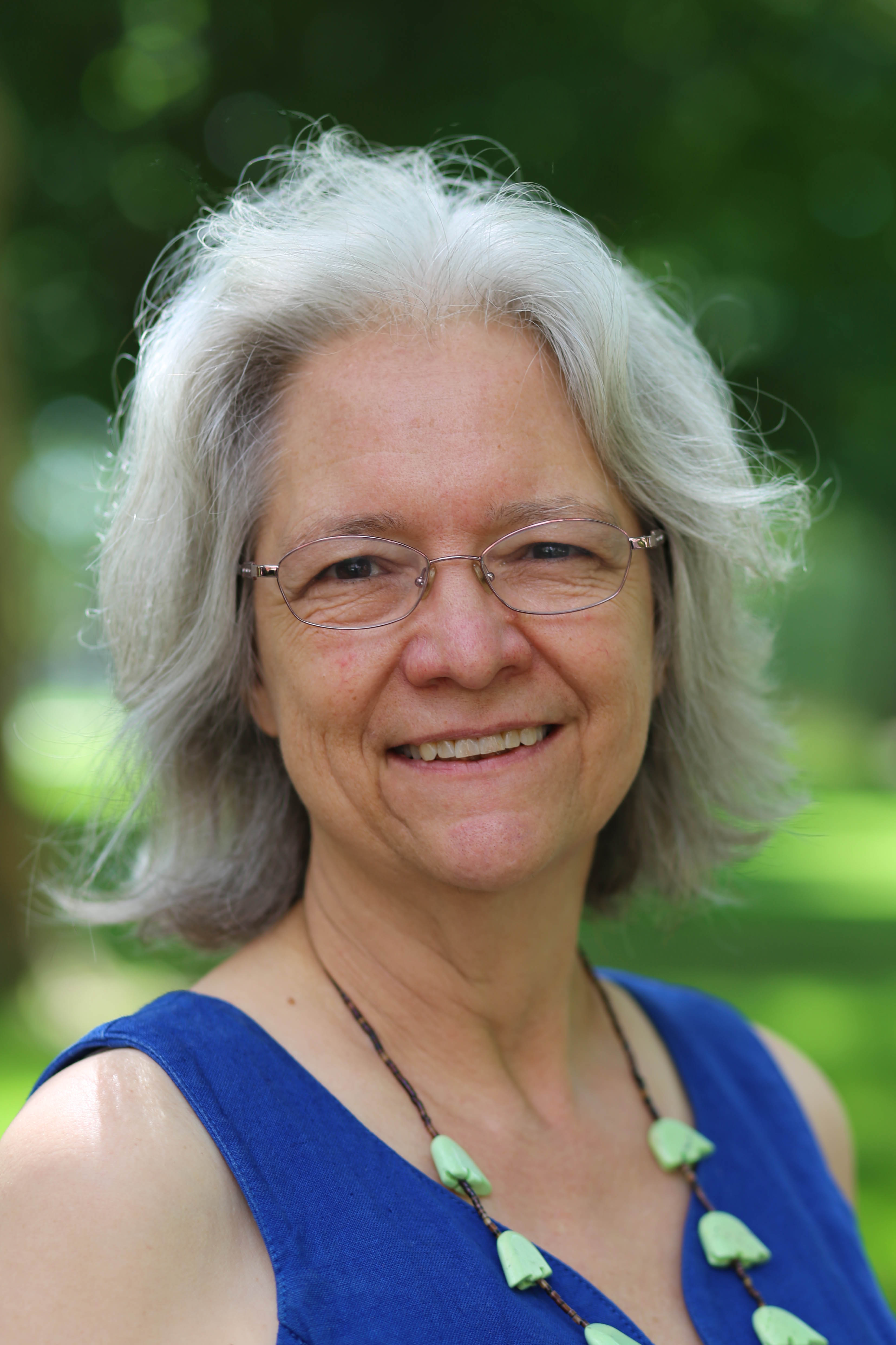
Introduction to Interview Issue Vol. II
by Ann HostetlerIt’s been a joy to edit this interview issue (Volume II) of new (in 2024) books by writers with Mennonite heritage and connections. Our previous interview (Volume I) issue of books published since the 2022 Mennonite/s Writing conference (2022-2023) can be found in our archive here: https://mennonitewriting.org/journal/issues/
Together, these two issues offer a lively snapshot of the variety, talent, and innovation of the current state of Mennonite/s Writing. We hope they will pique interest in the upcoming Mennonite/s Writing Conference to be held in June 2025 at Canadian Mennonite University in Winnipeg.
-
0
read more
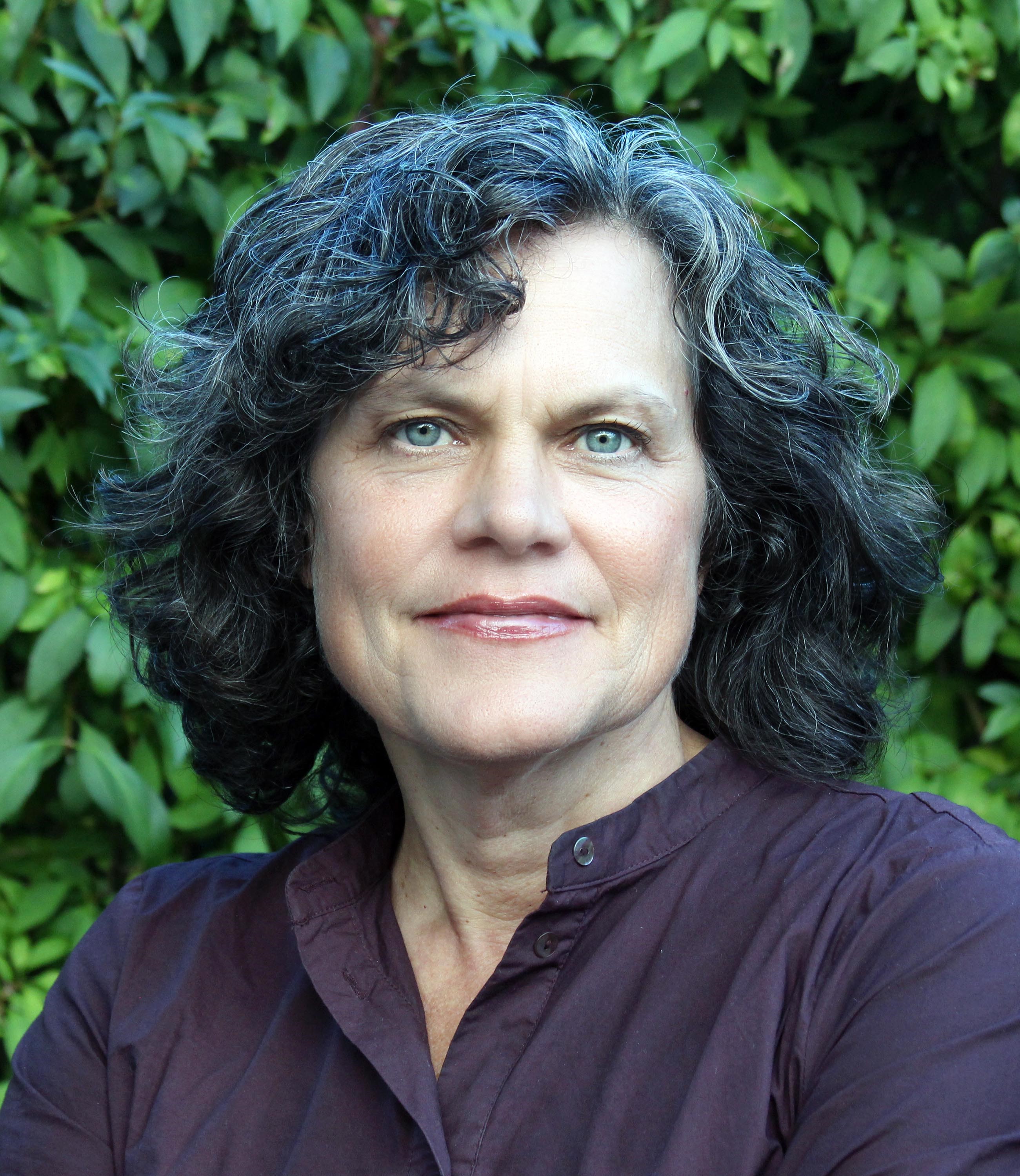
A Parable About Community
by Julia Spicher KasdorfOriginal poem by Julia Spicher Kasdorf
-
0
read more
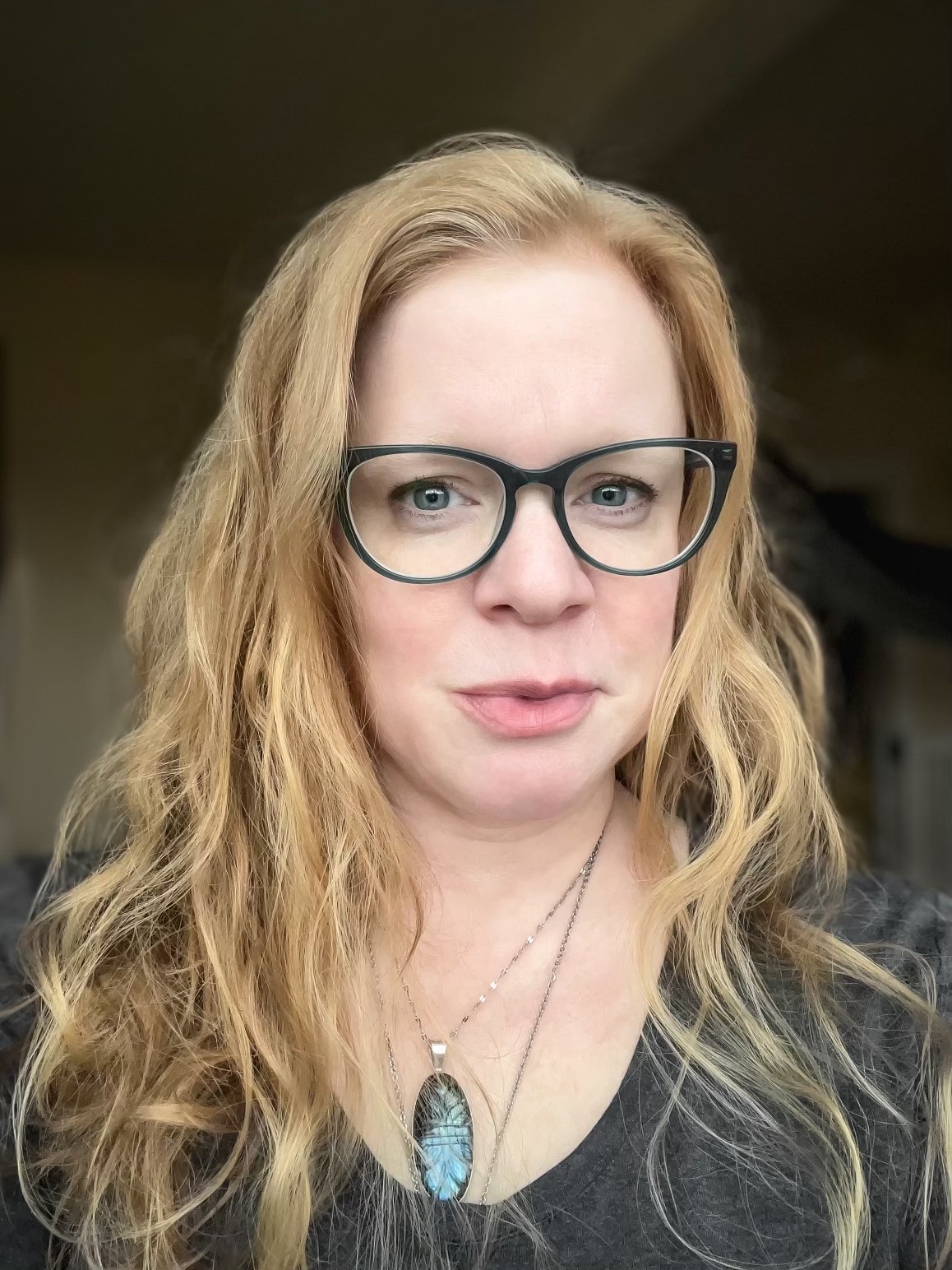
J.L. Conrad: The World in Which
by J. L. ConradAn interview with J. L. Conrad, 2024.
-
0
read more
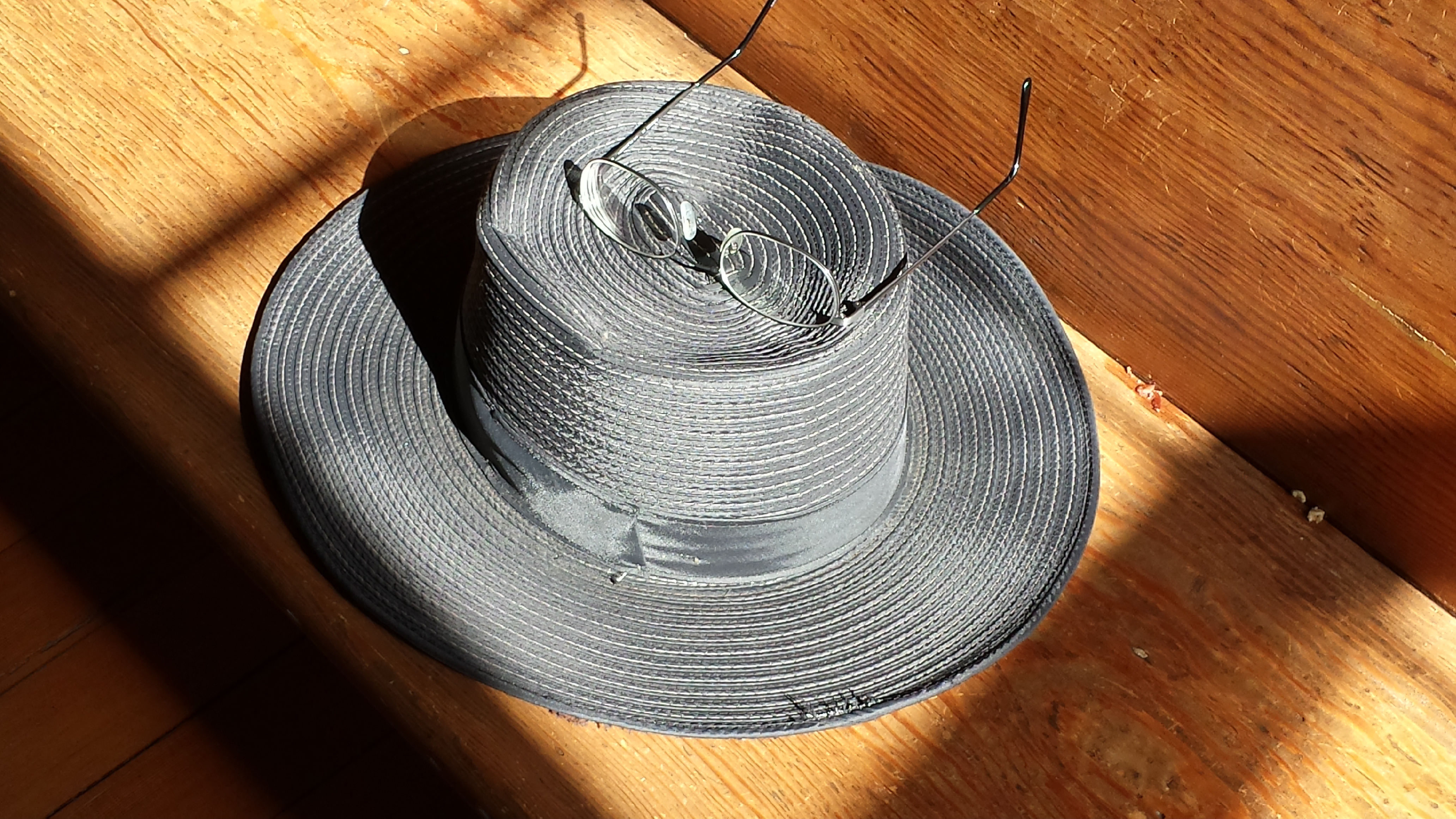
G.C. Waldrep: The Opening Ritual
by G.C. WaldrepInterview with G.C. Waldrep by Ann Hostetler, November 2024
-
0
read more
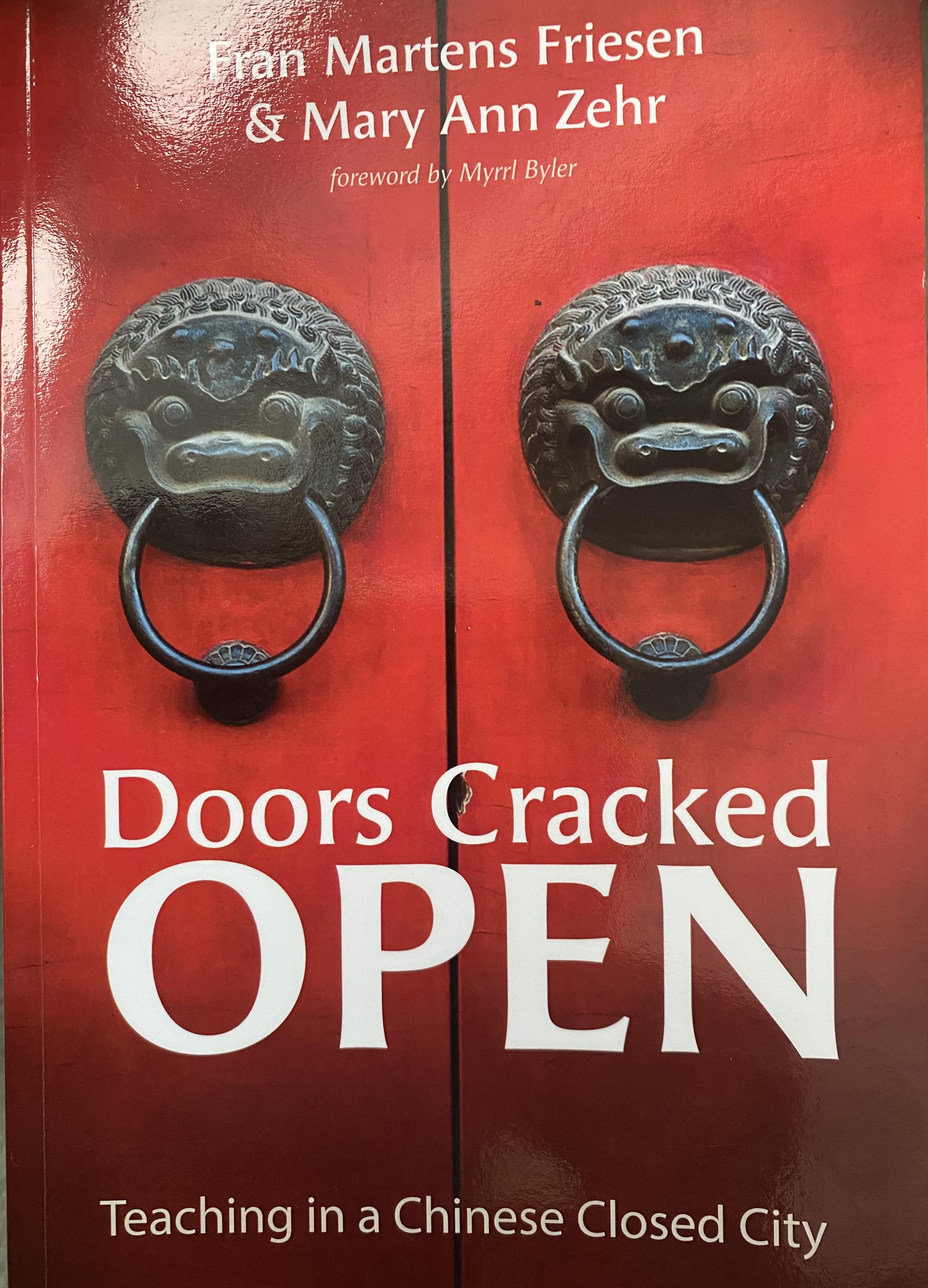
Fran Martens Friesen and Mary Ann Zehr: Doors Cracked Open
by Fran Martens Friesen and Mary Ann ZehrFran Martens Friesen and Mary Ann Zehr, Doors Cracked Open: Teaching in a Chinese Closed City. Wipf and Stock, 2024. 170 pages. $23 paper, $9.99 Kindle.
-
0
read more

Britt Kaufmann: Midlife Calculus
by Britt KaufmannBritt Kaufman, Midlife Calculus. Press 53, 2024. 83 pages. $17.95.
-
0
read more

Todd Davis: Ditch Memory
by Todd DavisTodd Davis, Ditch Memory: New & Selected Poems (Michigan State University Press, 2024)
-
0
read more

Daniel Shank Cruz: Ethics for Apocalyptic Times
by Daniel Shank CruzCruz, Daniel Shank. Ethics for Apocalyptic Times: Theapoetics, Autotheory, and Mennonite Literature. University Park: Pennsylvania State University Press, 2024.
-
0
read more

Sofia Samatar: The Practice, the Horizon, and the Chain and Opacities
by Sofia SamatarSofia Samatar, The Practice, the Horizon, and the Chain. Tordotcom, 2024. 93 pages. $13.95 paper, $4.95 Kindle.
Opacities: On Writing and the Writing Life. SoftSkull, 2024. 192 pages. $15.95 paper, $10.95 Kindle.
-
0
read more

Katie Lehman: Emily Dickinson's Lexicon
by Katie LehmanKatie Lehman, Emily Dickinson’s Lexicon. Dos Madres, 2023. 85 pages. $21.
-
0
read more

Daniel Born: The Essential Dale Suderman Reader
by Daniel BornDaniel Born, editor, The Essential Dale Suderman Reader: Journals, Essays, Letters, Interpretations (Resource Publications, May 2024), 252 pages, $29.00 paperback.
NOTE: This interview begins with a few supplemental questions, asked by Jeff Gundy.
-
0
read more

Carrie Snyder: Francie's Got a Gun
by Carrie SnyderFrancie's Got a Gun by Carrie Snyder. Vintage Canada, 2022.
-
0
read more

Casey Plett: On Community
by Casey PlettCasey Plett, On Community (Field Notes 8) (Biblioasis, 2023).
-
0
read more
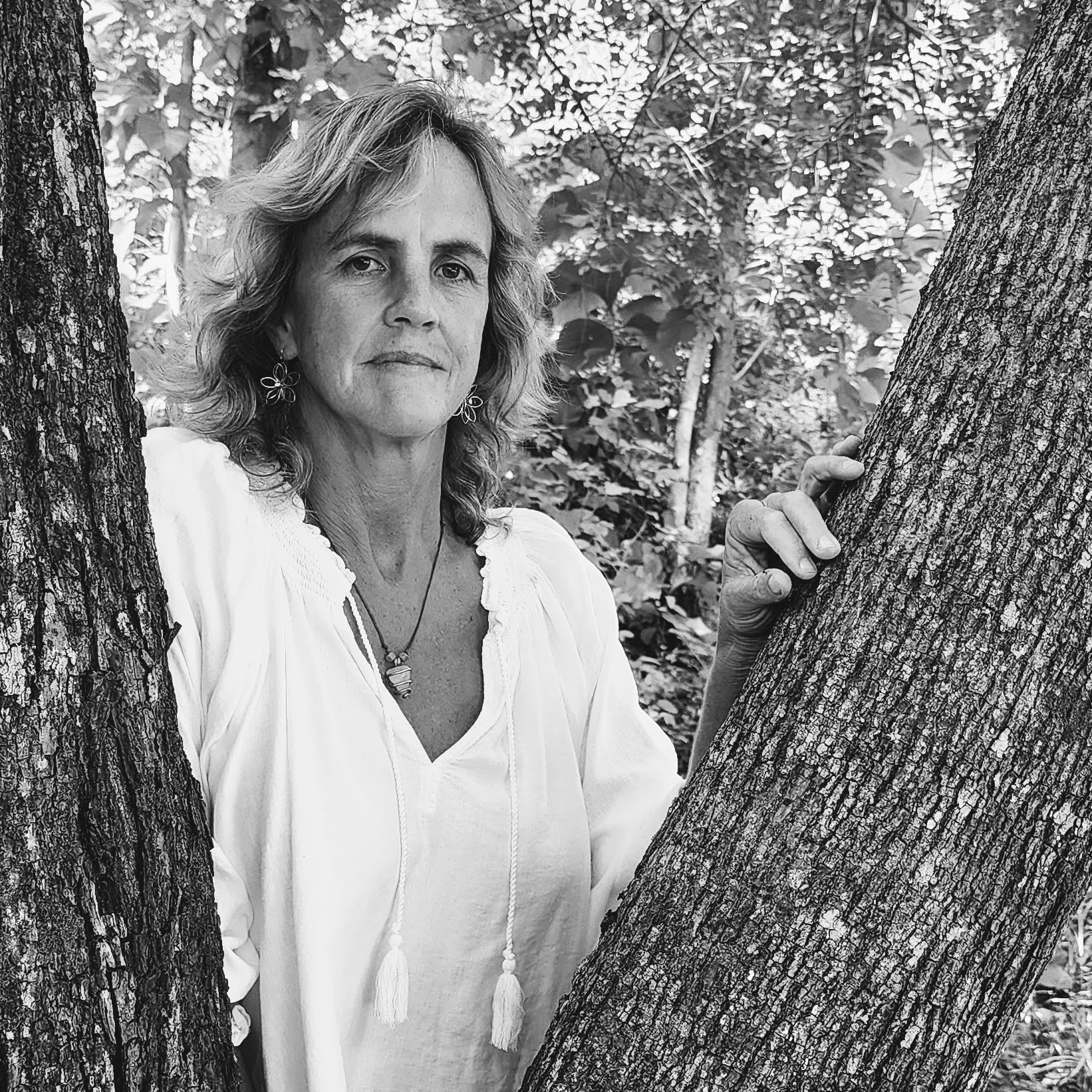
Diana Zimmerman: A Lucky Breath
by Diana ZimmermanDiana Zimmerman, A Lucky Breath, Workplay publishing, 2023.
-
0
read more

Ervin Beck: MennoFolk3
by Ervin BeckErvin Beck. MennoFolk3: Puns, Riddles, Tales, Legends. Goshen, IN: Painted Glass Press, 2022.
-
0
read more

Julia Spicher Kasdorf: As Is
by Julia Spicher KasdorfAs Is by Julia Spicher Kasdorf. University of Pittsburgh Press, Pitt Poetry Series, 2023.
-
0
read more
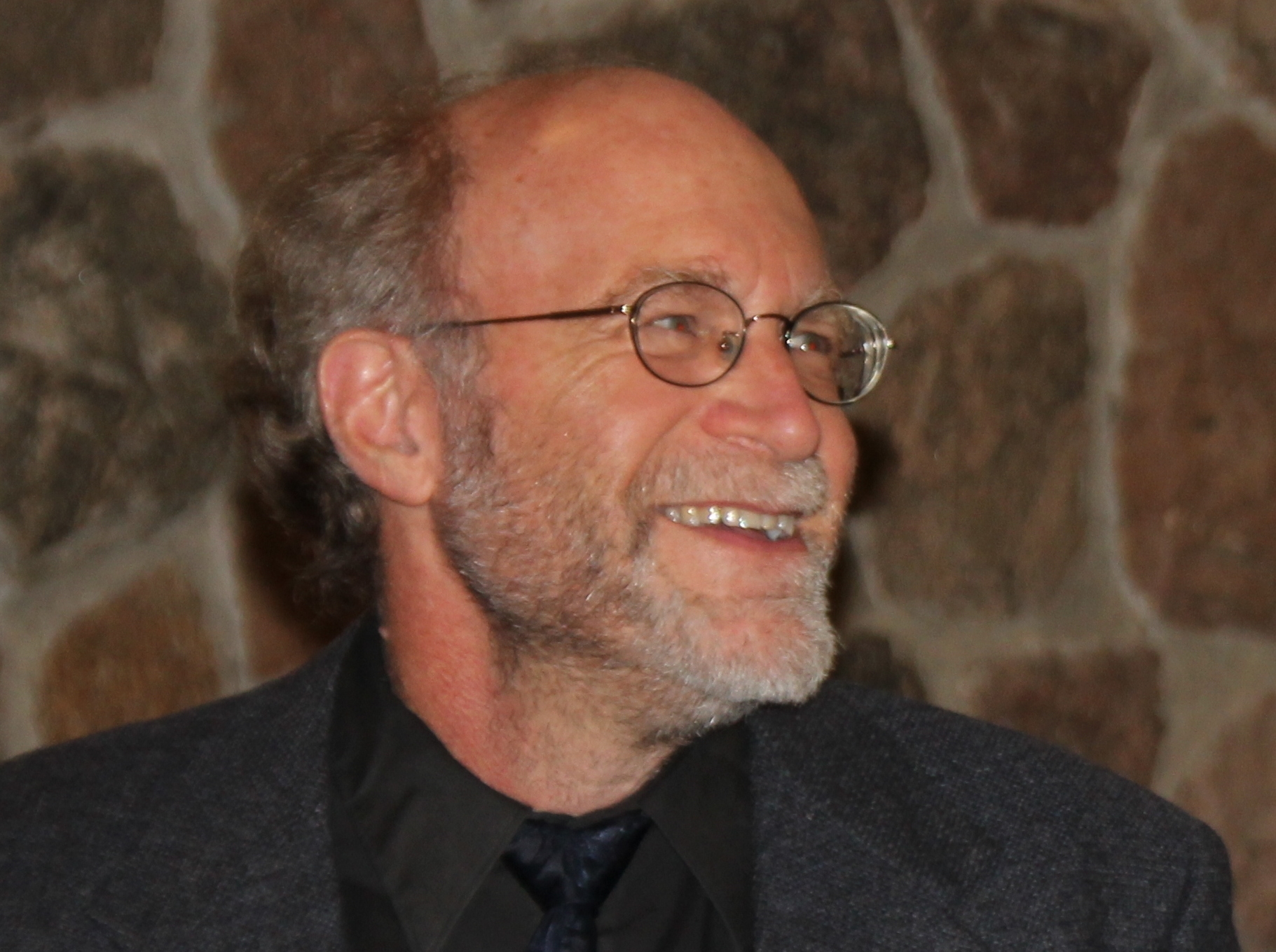
Introduction to the Interview Issues (Vol. 1)
by Jeff GundyFeatured books and authors:
Ervin Beck, MennoFolk3
Julia Kasdorf, As Is
Janet Kauffman, The Book of Nails, All Things Being Equal, Haloes, and Other Ways Light Takes the Body, All Things Fall to Earth
Sarah Klassen, The Russian Daughter
Jesse Nathan, Eggtooth
Casey Plett, On Community
Carrie Snyder, Francie's Got a Gun
Robert Zacharias, Reading Mennonite Writing
Diana R. Zimmerman, A Lucky Breath
-
0
read more

Jesse Nathan: Eggtooth
by Jesse NathanEggtooth by Jesse Nathan. Unbound Edition Press, 2023.
-
0
read more
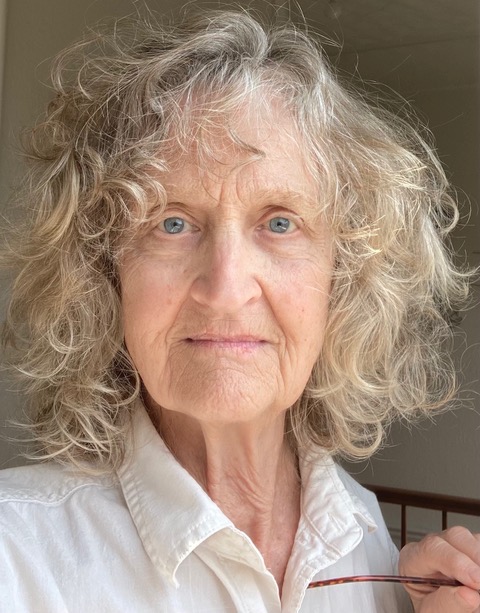
Julia Spicher Kasdorf asks Janet Kauffman a few Questions in Public
by Janet KauffmanReading Daniel Shank Cruz’s provocative new book of critical and autobiographical writing, Ethics for Apocolyptic Times: Theapoetics, Autotheory, and Mennonite Literature, I was reminded of Janet Kauffman, a poet and fiction writer who had once been so important to me that she blurbed my first collection of poems more than 30 years ago. I pulled five of her books from my shelf—one an uncorrected proof purchased at The Strand in the early 1980s, another inscribed as a Christmas present from an NYU undergraduate classmate. Here is an author who had helped me to figure out how to be a Mennonite writer—but that was so long ago, I’d almost forgotten about her.
So, in the exuberantly communal spirit of Cruz’s book, I sent her an e-mail message, and she kindly wrote back. That exchange led to an animated Zoom conversation, where I learned about her work as an environmental activist and joyful, innovative author. And then this written exchange. It feels like a gift to be able to bring Janet Kauffman back into the Mennonite Writing conversation with this interview, which begins with the usual sort of questions, but gets very large in idea and even philosophy! The DIY books, which can be ordered at the end of the interview, are lively works of visual and verbal art, suggestive of more new directions for Mennonite literature.
--Julia Spicher Kasdorf
Click below to see image
-
0
read more

Rob Zacharias: On Reading Mennonite Writing
by Robert ZachariasReading Mennonite Writing: A Study in Minor Transnationalism (Penn State University Press, 2022).
-
0
read more

Sarah Klassen: The Russian Daughter
by Sarah KlassenSarah Klassen, The Russian Daughter, CMU Press, 2022.
(In the USA, available from Wipf and Stock, 2023).
-
0
read more

Introduction to Mennonites Writing 2022 issue
by Jeff Gundy30+ years of Mennonite/s Writing: Looking back, looking forward.
-
0
read more

Plenary Conference Events: Video Links
by Ann HostetlerSee below for embedded YouTube videos of conference plenaries.
-
0
read more

Woman Built of Stones
by Kirsten BeachyA version of this essay was read at Mennonite/s Writing 2022.
-
0
read more

from East of Liberal
by Raylene Hinz-PennerExcerpted from Hinz-Penner's recently published book, East of Liberal (Cascadia 2022), a part of which was read at the conference.
-
0
read more

Excommunication Sequence
by Abigail Carl-KlassenPoems by Abigail Carl-Klassen
-
0
read more
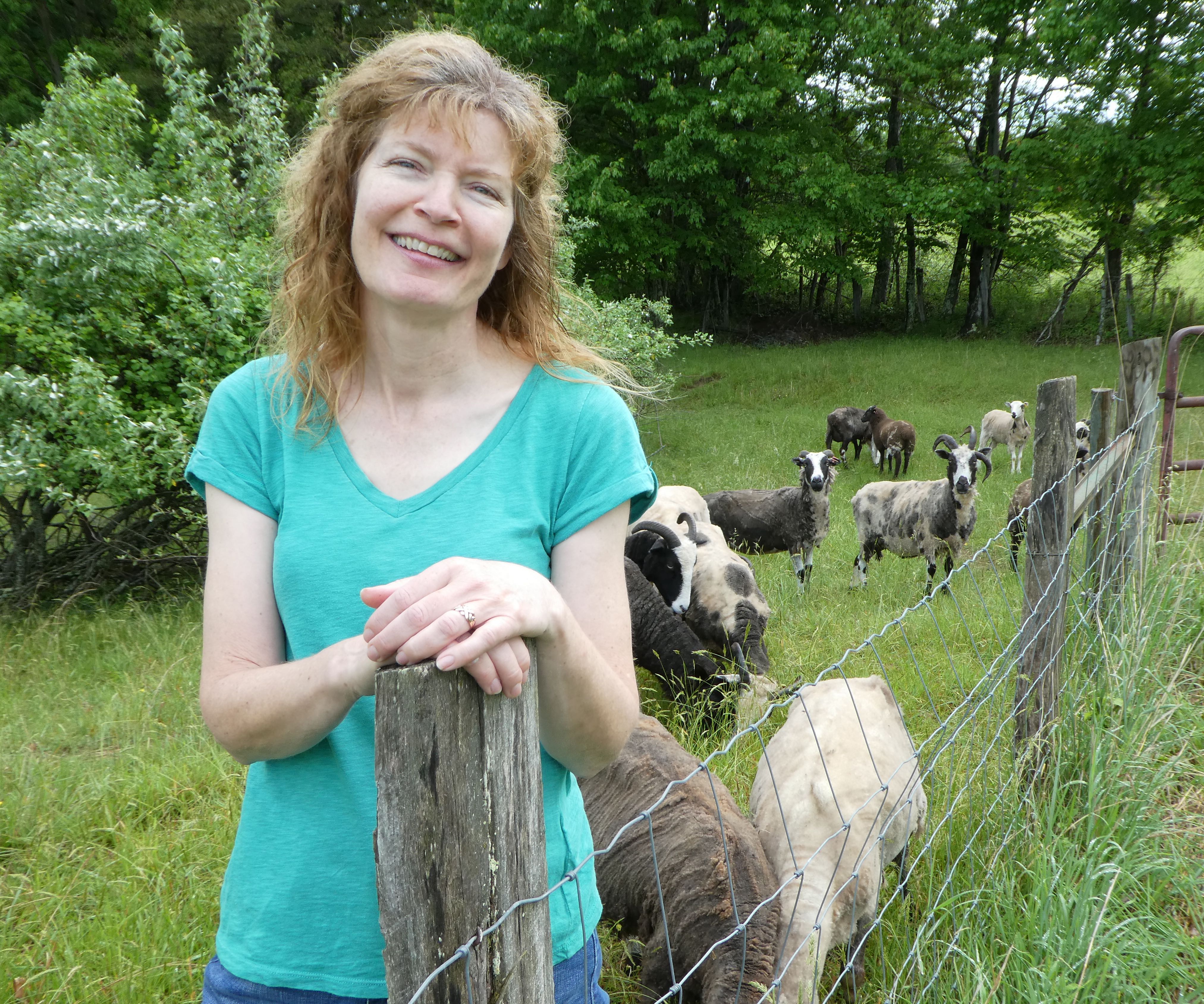
Two Poems from Fences
by Cheryl DeniseWhere I’m From, and Brother Lawrence and the Sheep, are from Cheryl Denise’s new poetry collection, Fences (Cascadia 2022).
-
0
read more

On Creating Poland Parables
by Connie T. BraunPoland Parables, with music by Carol Ann Weaver and texts by Connie Braun, was performed at Mennonite/s Writing 2022.
-
0
read more

Review of Anabaptist Remix
by Daniel BornAnabaptist ReMix: Varieties of Cultural Engagement in North America, ed. Lauren Friesen and
Lauren Friesen and Dennis R. Koehn, editors. 477 pp. Peter Lang, 2022. $109.95 cloth.
-
0
read more

Review of MennoFolk3: Puns, Riddles, Tales, Legends
by Levi MillerMennoFolk3: Puns, Riddles, Tales, Legends by Ervin Beck. 138 pp. Painted Glass Press. $20.00.
-
0
read more
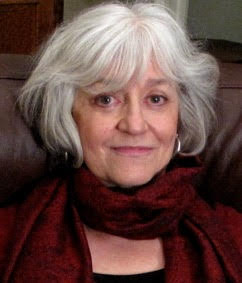
Victor Enns: A Tribute
by Hildi Froese TiessenPresented at the Mennonite/s Writing: IX, October 2022 Conference
-
0
read more

Hildi Froese Tiessen: A Tribute
by Robert ZachariasPresented at Mennonite/s Writing IX, October 2022
-
0
read more

Merle and Phyllis Good: A Tribute
by Ervin BeckPresented at the Mennonite/s Writing IX, October 2022 Conference
-
0
read more
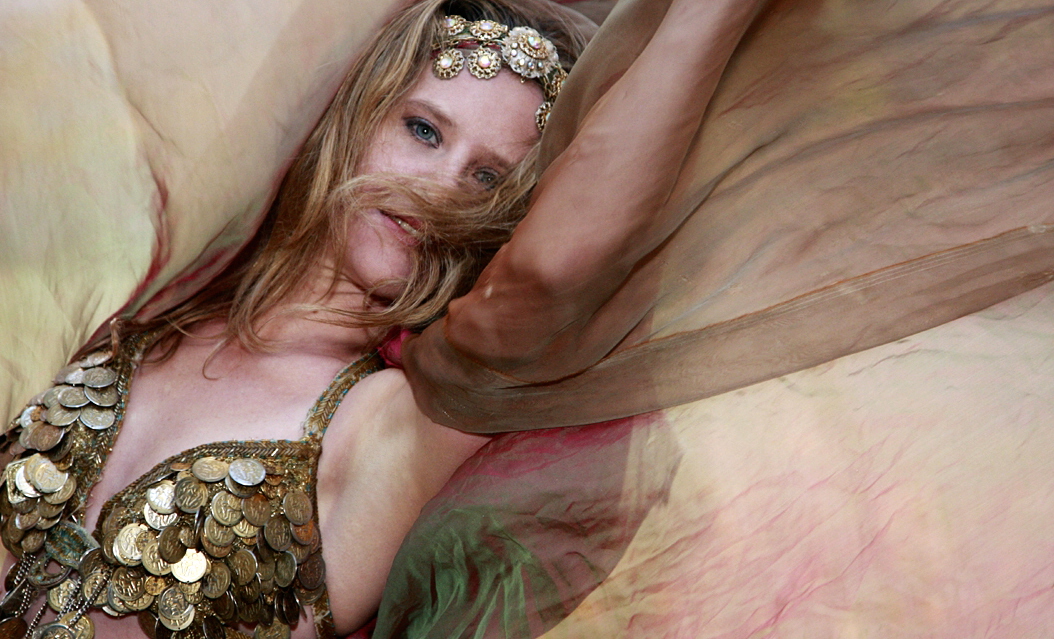
Raylene Hinz-Penner: A Tribute
by Jennifer SearsPresented at the Mennonite/s Writing: IX, October 2022 Conference
-
0
read more

Magdalene Redekop: A Tribute
by Ann HostetlerPresented at the Mennonite/s Writing: IX, October 2022 Conference
-
0
read more

Introduction
by Jeff GundyIntroduction to Vol. 14, No. 1: Disruption - Displacement - Embodiment
-
0
read more

Her Own Self
by Dora DueckA short story by Dora Dueck -
0
read more

Three Poems
by Julie MooreThe Weight of Light, Easter Snow, and Katniss
Three poems by Julie L. Moore -
0
read more
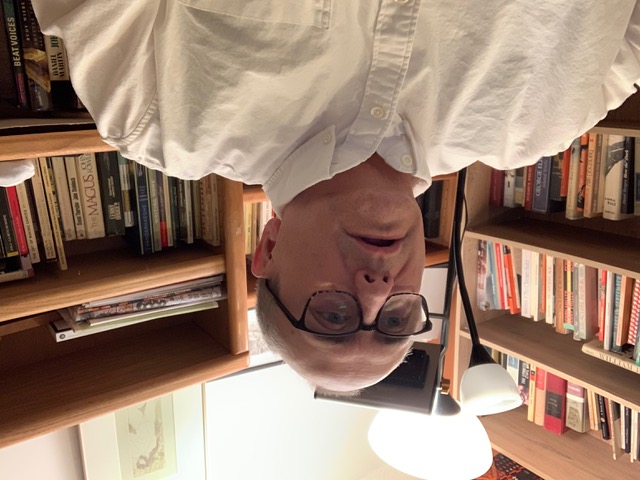
The Red Slide and Other Poems
by Victor EnnsThe Red Slide, Table For Two, If You Came Over, Always Breathe, and I Miss My Flying Dreams
Five poems by Victor Enns -
0
read more

Two Poems
by Raylene Hinz-PennerPentecost, 2020 and Inheritance: Day Lilies
Two poems by Raylene Penner -
0
read more

On Todd Davis, Coffin Honey, and a Dead Beaver
by Jeff GundyOn Todd Davis, Coffin Honey, and a Dead Beaver by Jeff Gundy
-
0
read more
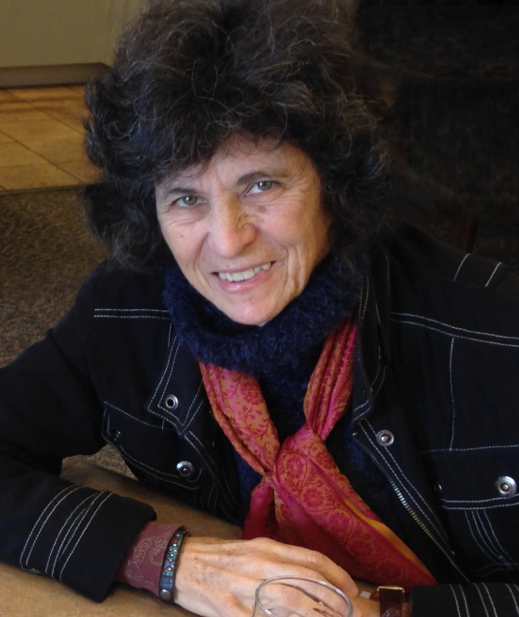
Review of Christine's Turn
by Carol Ann WeaverReview of Christine's Turn by Merle Good
-
0
read more

Past/Present
by Ann HostetlerPast/Present
The global pandemic has changed many of the ways in which we live in the world, as well as our place in it. Along with its many challenges, this period has witnessed new creativity among writers that share a connection to Mennonite heritage. As the world emerges from the pandemic, one of the things we anticipate is the rescheduling of the twice deferred (because of COVID-19) Mennonite/s IX Writing Conference. The conference, which will celebrate 30+ years of “Mennonite/s Writing,” will be held at Goshen College on September 29-October 2, 2022. The conference theme of Past/Present will celebrate the …
-
0
read more

The Professor, Four Quartets, and an Epiphany
by David Walter-ToewsAlbert Camus, reflecting on the Myth of Sisyphus, argued that the fundamental question of philosophy, and perhaps the only question worth asking, is this: is life worth living?
Some teachers achieve fame and influence by performing brilliantly for large classes. Often, they are celebrated by both students and institutions. Such brilliant, polymathic, inspiring, performers have opened my eyes to many of the world's wonders. After the first flush of adrenaline, however, I have sometimes walked away wondering: why should I care?
Other teachers focus their attentions with laser-like intensity on small groups of students, or even one student. These teachers …
-
0
read more

Three Poems by Connie Braun
by Connie T. BraunThese three poems are from a new manuscript in poetry and notebook form, evoking life and childhood in Poland, Ukraine, and Canada, before, during and in the aftermath of catastrophe. The opening epigraph comes from Ecclesiastes 7:4, the heart of the wise is in the house of mourning.
The work’s title, The Stellium in My House is derived from an astrological reading, by a poet friend, of my birth date, and the work is divided in sections according to the stellium—planets, sun, and comet—associated with the time of birth. The sun is in the twelfth house “of sorrow and …
-
0
read more

Review of Nightbitch by Rachel Yoder
by Shea TuttleYoder, Rachel. Nightbitch. New York: Doubleday, 2021. Pp. 238.
The protagonist of Rachel Yoder’s novel Nightbitch—a mother who thinks she is turning into a dog—is mostly unnamed, called only “the mother,” “MM” (as she signs emails), and, of course, “Nightbitch.” Her missing name adds not only to the surreal quality of the read but also to the feeling of something like universality. “Something like” because I know better than to think that everyone, or every mother, or every artist mother would be nodding along with every page. But still: I was wagging my own doggy tail, as it were. …
-
0
read more

Review of Shale Play by Julia Spicher Kasdorf and Steven Rubin
by Ervin BeckJulia Spicher Kasdorf and Steven Rubin. Shale Play: Poems and Photographs from the Fracking Fields. University Park, PA: Pennsylvania State University Press. 2018. 138 pp. $24.95.
This magnificent book looks like a coffee table book, and may be used as one by owners. But it is a deadly serious description and expose of the depredations of fracking in the Marcellus Shale of Pennsylvaina, the home territory of the book’s authors. In 23 poems, 74 photographs and introductory essays, it delivers on its intentions and elicits a thoughtful and emotional response in its readers.
The poems represent the recent development of …
-
0
read more

Review of Unpardonable Sins by David Saul Bergman
by Ervin BeckBergman, David Saul [Daniel Born and Dale Suderman]. Unpardonable Sins. Eugene, OR: Wipf and Stock, 2021. Pp. 200.
A bullet shatters a window in John Reimer’s room and strikes a plaque with Menno Simons on it. The plaque falls on a crouching John, leaving a serious gash in his head. Are we to assume that Our Leader is chastising John for letting his detective—aka counseling--impulses overwhelm his preaching responsibilities in his Lakeview Mennonite Church in Chicago?
Chris (Christ?)—a seminary student member of the church who refuses to take his medications for schizophrenia—sees angels, and questions and rants about the unforgivable …
-
0
read more

Review of After June by Charity Gingrich
by Connie T. BraunGingrich, Charity, After June, Green Writers Press, Brattleboro Vermont (2019),
After June is the debut collection of poems—or are they hymns?—“by one voice, among women," Charity Gingrich, winner of the 2018 Hopper Literary Magazine poetry prize. The slim volume is resonant with striking and gorgeous imagery of choirs and singing, the landscape of Appalachia, the deer and blackberries, and “nature with its own instruments.” Pitch, its highs and lows and the intervals between, is the sustaining metaphor throughout this wide range of poems about beauty and sorrow that forms an ode from a daughter to her mother, to the …
-
0
read more

Issue Introduction: Word and Image - Warren and Jane Rohrer
by Ann HostetlerIt is both a privilege and a joy to publish this issue of the Journal of Mennonite Writing on the words and images of Warren and Jane Rohrer. Both Warren and Jane Rohrer were at the cutting edge of artistic accomplishment among persons from Mennonite contexts. I first met them in the mid-1970s, after I had graduated from college with a major in art and was working in New York City in publishing. Home for the weekend in Philadelphia, I was invited by my parents to join them at a gathering of Mennonite scholars, artists, and thinkers, around supper at …
-
0
read more

Exhibitions of Warren Rohrer's paintings and Jane's Poems
by Kasdorf, Reed, RobinsonIn collaboration with Christopher Reed and Joyce Henri Robinson, Julia Spicher Kasdorf has arranged for two exhibitions, different in focus and content, of the paintings of Warren Rohrer and the poems of Jane Turner Rohrer at the Palmer Museum of Art at The Pennsylvania State University (February 10 - June 6, 2021) and at the Woodmere Art Museum in Chestnut Hill, PA (April 6 - July 10, 2022). See below for details on exhibits and related links.
-
0
read more

Field Language: Digital Companion
by Hannah MatangosThe “digital companion” to the Palmer exhibition, which includes 4 informational videos:
-
0
read more

Poem: Acquiring Land
by Jane RohrerPoem from Acquiring Land by Jane Rohrer. Dreamseeker Poetry Series #17, Cascadia Publishing, 2020.
-
0
read more

Poem: Weatherless Journey
by Jane RohrerPoem from Acquiring Land by Jane Rohrer. Dreamseeker Poetry Series #17, Cascadia Publishing, 2020.
-
0
read more

Use Your Words: A Review of Acquiring Land by Jane Rohrer
by Melanie ZuercherIf you are a Mennonite of a certain age, the product of a Mennonite higher education, and if your first full-time job after graduating from Goshen (Ind.) College was to work for (at the time, and arguably) the best-known Mennonite arts entity on the East Coast or even below the 49th parallel, while living for three years in Lancaster, Pa. – well, if you are all those things, you might be me. But you are not, so I will add: You might see a book “by Jane Rohrer” titled Acquiring Land: Late Poems and, knowing she had been married to …
-
0
read more

Review of Field Language: The Painting and Poetry of Warren and Jane Rohrer
by Ervin BeckNOTE: The book reviewed here is a companion for two exhibits—one at the Palmer Museum of Art at Pennsylvania State University and one at the Woodmere Museum in Philadelphia. Covid protocols forced the postponement of both. The Palmer exhibit is scheduled for Feb. 10-June 6, 2021; the Woodmere, a year later, to April 6, 2022- July 10, 2022.
* * * * * *
Julia Spicher Kasdorf, Christopher Reed, Joyce Henri Robinson, eds. Field Language: The Painting and Poetry of Warren and Jane Rohrer. University Park, PA: Palmer Museum of Art (Penn State U.), 2020. Pp. 225. …
-
0
read more

Hearing the Brush: A Response
by Ann HostetlerJane Rohrer's poetry in Field Language.
-
0
read more

Mennonite Creators' Discussion Group, 1993-2000
by Lois Frey GrayIn the fall of 1992, Lois Snavely Frey (now Gray), heard Warren Rohrer speak about his work as an artist at People’s Place, a center for Mennonite arts and culture, in Intercourse, PA. Frey, a Lancaster, PA social worker interested in creativity, was captivated by Rohrer’s talk and asked him for a copy. He told her that there was no manuscript for his talk, but offered conversation. Thus the idea for the Mennonite creativity discussion group began to form in Frey’s mind.[1]
By 1993, US Mennonites in the arts were beginning to gain traction in the public sphere and …
-
0
read more

Poem: Boustrophedon
by Julia Spicher KasdorfThis poem, from Julia Kasdorf's Eve's Striptease (Univ. of Pittsburgh Press, 1998), was written for Warren Rohrer. In an ironic twist, the poet (Julia) learned this Greek literary term from the visual artist (Warren), who was obsessed with it.
Julia comments: I wrote the poem after learning the word from Warren’s mouth the day when Lois’s creativity group met at Locks Gallery. I wrote it FOR Warren and mailed it to him. He wrote me a letter in return in which he pointed out the sestina structure, literally mapped it out in lists of numbers. He didn’t realize I’d used a standard European form, but wanted me to see that he recognized what I’d done structurally. Now that I see his notebooks, which are in a case at the Penn State exhibition, I realize that he meticulously mapped out plans for his paintings. They might look spontaneous, but they’re highly engineered. Anyway, he also said that they didn’t really “move to the city” [for art] as the poem states because his career flourished on the Christiana farm. (Earlier, of course, he and Jane lived in the Philly suburbs.) That detail was as much about my life as his, and this biographical sketch helped me to make a map for myself, I now realize. When the Allentown Museum hosted an exhibition of Warren’s work in 2016, they asked me to offer a little talk about Jane’s poetry, and I suppose that’s what got me reading her work carefully. When I showed up at the exhibition, there was a chunk of “Boustrophedon" on the wall. It blew me away. That may be what gave me the idea to put Jane’s poems on the wall with Warren’s paintings.
-
0
read more

The Possibility of Positive Marginality: Warren Rohrer’s Mennonite Community of Origin
by Steven M Nolt“There is this beauty which comes out of all these experiences that one has,” Warren Rohrer decided. It was a remarkable assertion, given its context. A number of Mennonite-reared artists and thinkers had come together in spring 1993 to discuss sources of creativity, and in the process shared story after story of misunderstanding and rejection by their childhood church communities. Listening to their accounts, therapist Lois Frey, who had convened the discussion, recognized the obvious pain in these narratives of being relegated to the margins. But she also wondered if there might be some “positive marginality,” some special perspective gained …
-
0
read more
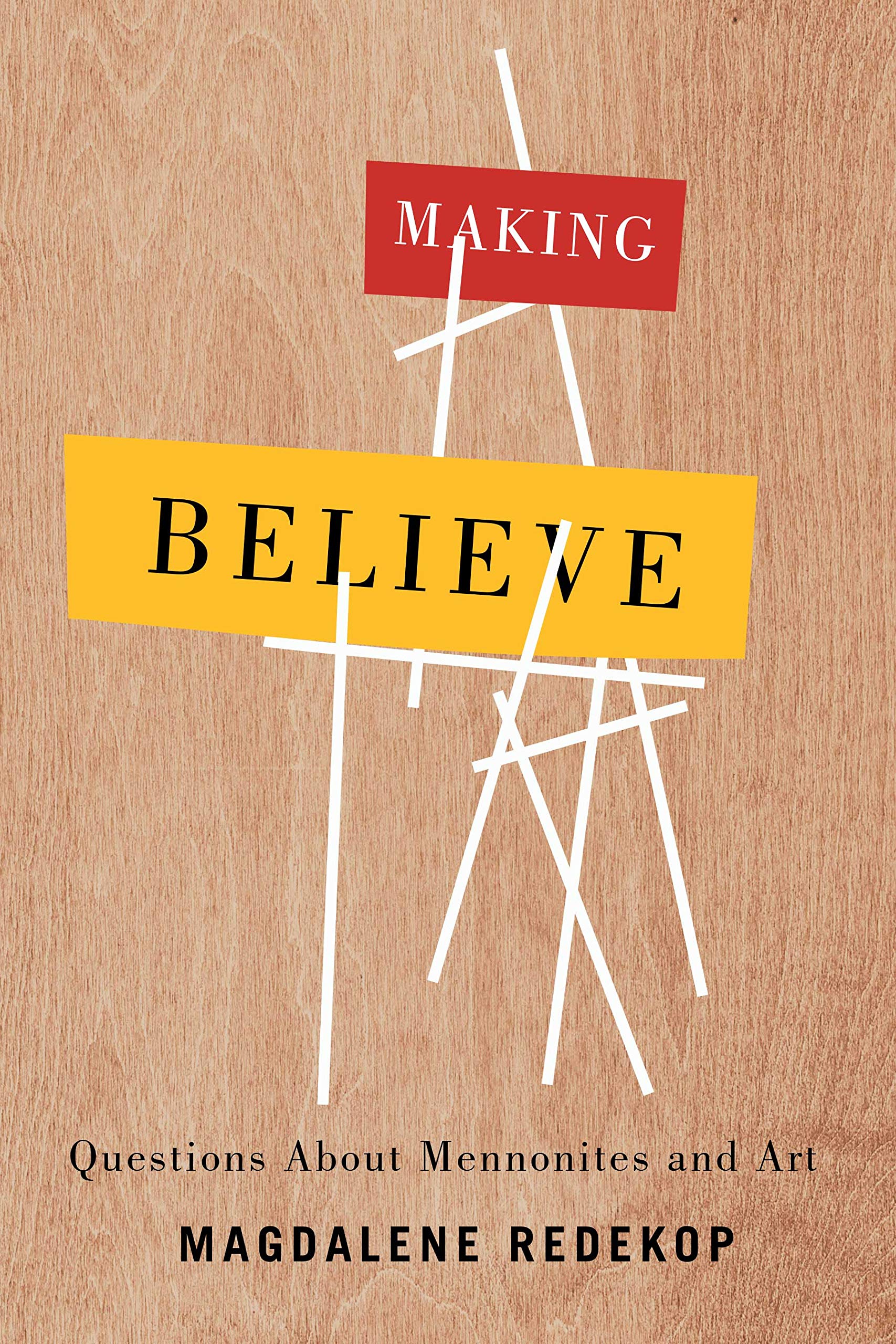
Making Believe: Reflections
by Magdalene RedekopThis seminal new book--part intellectual autobiography, part theoretical exploration--probes issues of representation in Mennonite literture and art.
-
0
read more
Chronology for the Life and Work of Nicholas Lindsay
by Lindsay FamilyThe chronology below was constructed at the request of Ervin Beck for this issue. No chronology of Papa’s life existed prior to this. The nine remaining Lindsay siblings searched for press and correspondence relating to Papa’s work as an artist and historian. His careers in building and the trades were included because his work there was central to his personae as an artist. We used documents to create a factual framework for this chronology We believe this chronology to be largely accurate. Our parents were grateful for the community they found through Goshen College. In the year or two prior …
-
0
read more

A Tribute to Nick Lindsay
by Ervin BeckNick Lindsay arrived at Goshen College in an almost accidental way. In the spring of 1969 the Lecture-Music program found itself with a small surplus and, as was sometimes the custom, decided to sponsor a bonus program late in the spring. Nick Lindsay was the choice. He had been recommended by Helen Clay, a Goshen friend of the college whose son was studying at Indiana University Bloomington, had attended a performance by Nick and thought he would be a good “fit” for Goshen College.
Nick was the son of Vachel Lindsay (1879-1931), prominent American performance poet, and was a performance …
-
0
read more
Letter from DuBose Lindsay (1997) to Ann Hostetler
by DuBose LindsayDuBose’s letter came out of a lively correspondence with Nick that began back in August 1997. I was still living in Wisconsin and in the early stages of researching poetry by Mennonite writers. In preparation for the upcoming Mennonite/s Writing Conference to be held at Goshen College that October, I had asked Nick whether, in addition to sending me some samples of his poetry, he might consider submitting an essay on the topic of what it was like to teach poetry at a Mennonite institution of higher learning. He responded positively to the challenge, but the generous packet of poems …
-
0
read more
Letter from Nick Lindsay (2018) to Ervin Beck
by Nick LindsayFollowing the death of Nick’s wife DuBose in 2018, he and I exchanged a series of about six letters. I had suggested that he write his autobiography, or at least prepare a chronology of his life and work. I expected something linear, but he included in his letters bits and bobs of his life experience, usually in anecdotes with clear moral or spiritual meanings. The letters were always written in his non-cursive handwriting and were sprinkled with drawings, quotations from songs and, always, with upbeat comments.—Ervin Beck
3 Slash Court
Statesboro, GA
30458
Wed., Aug. 1, 2018Dear Ervin, …
-
1
read more
Meditation for Memorial Service
by Nick Lindsay, Jr.The time my father liked to talk about most in recent years has been the time he worked building commercial fishing boats on Edisto Island in the 1970s and 80's. I was a teenager then and I believed I knew him best at that time. He taught me to sail. Working or playing, our lives usually related to the ocean. On the water things are simpler than on land. He was joyful on the water.
As he died, my sister Nancy was reading to him from The Odyssey. On the water he would use the words of Homer to talk …
-
0
read more
Tributes by Students and Colleagues
by Tribute Authors LindsaySkip Barnett, Wilbur Birky, Todd Davis, Julia Friesen, Lauren Friesen, Jeff Gundy, Dennis Huffman, Bob Johnson, Julia Spicher Kasdorf, Harley King, Jessica Lapp, John Leigh, Susan Fisher Miller, Lenae Nofziger, Jeffrey S. Peachey, Sofia Samatar, Mark Sawin, David Waltner-Toews, Shari Miller Wagner, Don Yost, Dawn Zehr. Click on page numbers below, or "show as all" for access.
by Skip Barnett (Faculty 1988-2018)
Emeritus Professor of English and ESL, Goshen College
Goshen, IndianaA Visit from Saint Nick
Quiet snows flutter
Mercury crouches
A slanting sun spares us no hours
The last tinseled trees lie low on the curb . . … -
0
read more

Introduction to "Student Writing"
by Eli ReimerAdults often ask me how college is going. As an introvert and awkward conversationalist, my answers are usually rather short. I mention a class I enjoy, say that I get along with my roommate, and remind them of my majors. I nod politely and smile. In most cases, we switch to another topic quickly. Winter break, which recently ended, is a prime time for such conversations.
Of course, my simple, routine responses do not come close to describing what college is like. College is a mess of stories and experiences. I’ve only been here for three semesters, and already I …
-
0
read more

Home
by Anali MartinI wanna go home. I wanna go home. I wanna go home.
A mantra I say to myself when I feel past the point of dejection. We’ve reached full “hell no” territory. Weight hunches my shoulders and slows my feet down to a plodding walk and keeps my body anchored to my bed. When tears constantly threaten to fall, when even a good hug doesn’t feel like it could fix my frustration, when I can’t hold my head up in class, when I feel empty and cold.
Home for me isn’t necessarily one place. When I say, “I just …
-
0
read more

Eclipsed
by Anali MartinBaptism was an inevitable part of my walk of faith: to be deliberately contemplated, but ultimately sought after. It was the same way with Christianity and being Anabaptist. I was allowed and encouraged to question and think for myself (an Anabaptist founding belief), but there was this assumption that all my questions would lead back to God and the church. It wasn’t ever explicitly stated, and I never felt hemmed in or stifled by that fact, but in the end, the “right” answer was always going to be Jesus.
Baptism was the next step in that questioning process, though it …
-
0
read more

The Forest of Ambiguity
by Emie PetersonBut I looked out the window. The sky was white but the glow from it dark. The trees were caught in between. Some bare and free of everything they carried through last season. Some, still hanging on, holding the weight of what is to pass. In a sense I felt like those trees. But there was more uncertainty in my own eyes. Not terrified or fearful, but uncertain and confused. Yes, I like the mess, and not knowing a kind of high. But movement is to be made and decisions forced upon me. I laugh to myself though. Because really, …
-
0
read more
For Things Left Behind
by Kate SzambeckiDust billows behind the Saturn as my thumb traces the grooves on the gear shift. I glance away from the dirt road and lock eyes with Calla in the rearview mirror for a moment and then refocus ahead. I can’t help it every once in a while—Calla is back from college in New York City; her eyes are gray and wise, and she is the only person I’ve ever met that can pull off that short of a pixie cut. When I am around her I feel reckless.
Eventually we reach our destination: the side of Emma Creek Road, a …
-
0
read more

Wine and Water
by Megan GoodThe day of my sister’s baptism, I cried and cried. My parents did not come to pick me up; apparently they forgot that I didn’t have a car and might like a ride. After chewing my nails and hoping they would show up, I hopped on my bike and pedaled frantically down Virginia Avenue. I slipped into the third row of the middle section, beside my aunt and uncle, just as the first hymns were ending. The tears that had started on the bike ride over refused to be stifled. I sniffled and snuffled, wiping my face with my hands …
-
0
read more
slowing down / ghazal for Jemel Roberson / borderlands (three poems)
by Elizabeth Nislyslowing down
do it quickly
start doing the thing
you sprouted from your mother’s womb
to do. there’s a reason we’re called the human
race, this life is only so long, every minute gone is
one minute less to spend on this earth, todo it quickly
but perhaps the thing
the reason my toes met the earth
my purpose
is to slow down
breathe in
breathe out
notice the way my ankle
meets my foot
with wonder, and the shape
of the clouds and the
color of bread, the bread
from my father’s
sourdough starter
which he got
from … -
0
read more
Incompetent Boys
by Elizabeth Nisly“How old are you?”
This is the charming opening line from a pale-faced hipster who has now prowled past my seat on the train three times. I remember him from the observation car. He saw me staring at him (in fascinated disgust) as he waxed poetic to some old white guy about how to fix the world’s problems.
“I wish we would’ve just stormed the White House. Show them we still mother-fucking run this country,” he had said.
He must have mistaken my eavesdropping for interest.
“I’m 20,” I tell him. I’m cuddling my sister, who could be my girlfriend, …
-
0
read more

Attaché in the Palace Maze / Sundew in the Cemetery (2 poems)
by G.C. WaldrepATTACHÉ IN THE PALACE MAZE
So, pilgrimage, then, which is
the dead blended with distance,
the text’s thread snapped
like a small bone in the wrist.
You are here. The saints’
holy example is there,
& in between
you will build a library
with the small fires of your will.
You will hoard hours
& prepositions, as if
from the catacombs of the flesh
a god might scythe
His cedars from this Lebanon.
On that ancient ground
I answered the call of every
dusk-borne bird.
My breath-shaped galley
capsized amid its centuries,
glass weights set on the white
pages to … -
0
read more

Writing and Information: Where do we go from here?
by Erin Renee WahlAs librarians, Hope and I see the part information plays in all manner of fields and research. We help people make those connections in our daily work in a variety of ways: answering reference questions, providing instruction on researching through the library, teaching courses on information literacy, purchasing books for the library collections, and all sorts of other tasks. When we move into our own writing, we take these experiences with us. It is not lost on us that our relationship with information has altered our own writing. In this issue, we set out to explore the part that information …
-
0
read more

Dr. Spock to Dr. Google: The Internet and the Evolution of Parenting
by Kari SommersInformation in my childhood home, like the cookware, furniture, and most everything else, was high-quality, sturdy, and meant to last. My parents bought the World Book Encyclopedia in 1990, as well as the Year Book supplements to update their investment annually. (Good thing, too, because the entries for Germany and the U.S.S.R. were completely rewritten within two years.) For health information, we had the Physician’s Desk Reference or the library to follow up on what our doctors told us. For cooking, we relied on the Betty Crocker and Better Homes and Gardens cookbooks, as well as a couple of tried-and-true …
-
0
read more
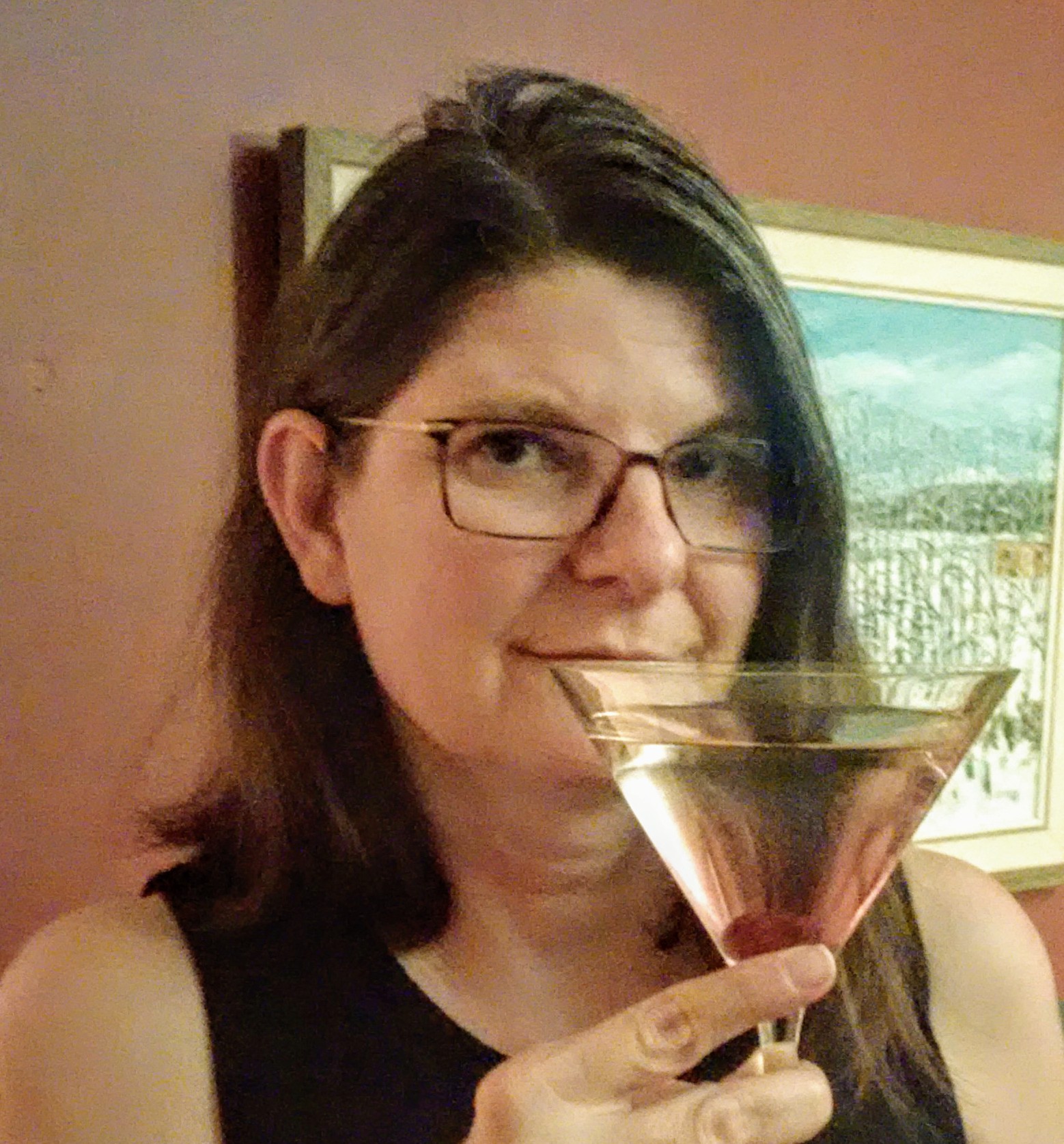
The Drunken Mennonite Opines about Life in the Internet Age. Twice.
by S.L. KlassenEarlier versions of these posts were published on the Drunken Menno Blog at slklassen.com as "Rage Against the Machines. Or Not" and "Check your Privacy Settings."
Rage Against the Machines
Some think it ironic that the region with the largest concentration of Mennonites in Canada east of Winnipeg is also a booming centre of Canada's high tech industry.
Some find it insulting that this is ever considered ironic.
Those who find it ironic think of Mennonites as averse to technology. When they think of Waterloo County Mennonites, in particular, they think of Old Order Mennonites who, it is true, are …
-
0
read more

Funeral Announcements
by Andrew UngerWe’re each supposed to recite a poem after the horseshoes tournament. It will make Oma happy, we’ve been told. Ideally, we’re supposed to do it from memory. This may be why three of my Plett cousins have come down with mysterious summer colds and have texted our grandmother at the last minute saying they can’t make it to the family picnic this year after all. I, however, have a poem all prepared.
It’s one my grandfather wrote about a young man who turns to God after a dangerous encounter with a mother bear and is something of a legend among …
-
1
read more

Gaming and Women
by Jessica HamGrowing up, I never considered myself a gamer. I played Pokemon and Mario every day as a kid but still, I did not think of myself as a gamer. Magazines featured only games that were considered masculine. I loved video games more than anything but because of the generalization that gaming was considered a boys-only club, I never felt like I made the cut.
Several years later, I finally played a popular game called Halo which I found to be worthy of the gamer title. I wore the gamer badge proudly and told everyone I could. It meant so much …
-
0
read more

Isaac Bauman Buys a Phone
by Andrew HarnishIn the months after his breakup with Mary Elizabeth, Isaac told himself that all he had to do was survive. He repeated the injunction whenever he felt like he was in danger of collapsing in fatigue or exhaustion, and whenever he wanted to howl at the congregation's falseness. Sundays and Wednesdays, his hands heated as he sat in the meetinghouse pew beside his father. Weekdays, he squirmed in his carrel, his stomach twisting like the tarps on the roof of a failing farmer. The more his body defied him, the more clearly he understood the only truth he could be …
-
0
read more

Märchen1 / Märchen2 / To Blake / Heaven (4 poems)
by Sarah KortemeierMärchen[1]
1.
The knock was not at the door of his room, but at the door of his heart.
He went into the forest to lie in wait.
He had a fresh and joyous heart.
Before long he was much in love with the young witch.
He carried
delicate food to her.
She was immediately deprived of her human form.
She fell on her knees before him and said,
I will take a vomiting-potion.
So the wedding was celebrated.
2.For days,
she placed a chair,
gave him meals,
scolded him
and gave him his meals,some days
without … -
0
read more

Passive Aggressive
by Chris JanzenPassive Aggressive
by Chris Janzen
This painting explores the unique ways that violence can be inflicted without physical action. Mennonites are traditionally aligned with the Peace position, but this does not mean conflict and aggression are absent from their lives. A passive orange pillow sits at the center of the composition, but a skull lurks at head height between the figures.
Passive/Aggressive, 2016, oil on canvas, 4’ x 5’ -
0
read more

The Pen
by Julia BakerA fingertip red with crushed berry seed,
a stick carving letters in dust,
sharpened stone pressed into clay,
a whittled fox bone on a tablet of hardened wax,
glue, carbon, and bone-black pigment mixed
ink slides down bamboo onto papyrus,
the swan’s flight feather scratches parchment,
a quill becomes metal in our hands,
refill the fountains, words soak
cotton, linen and wood
a ballpoint rolls between thin blue lines,
a plastic stylus, silent on a illumined screen,
fingers clack quickly now through an alphabet of keys.
Fluid extensions of the arm
vessels we make and fill, using what we have, … -
0
read more

Streaming
by Chris JanzenStreaming
by Chris Janzen
This is a drawing of a central protagonist who is forever glued to their screen. There is a constant stream of content to direct our attention to at every second; the skeleton at his left is a reminder of the ultimate ramifications of gluing your eyes to your device(s) at all times.
Streaming, 2018, graphite, charcoal, wax pencil, and acrylic on paper, 8’ x 6' -
0
read more
Television Taught Me Everything I Know
by Melanie Springer MockOne of my earliest happy memories is of watching television on a late-afternoon winter day—Sesame Street to be exact. The show must have been in its infancy then, long before Elmo’s World took over half of each episode, stealing some of Sesame Street’s joy. I remember sitting in the dark living room of our parsonage, wrapped in an afghan, noise from the kitchen a comforting reminder that mom was nearby, making dinner. Our parsonage was next to the Mennonite church, alongside busy Kedzie Avenue in a south suburb of Chicago, so traffic was no doubt zipping by our living …
-
1
read more
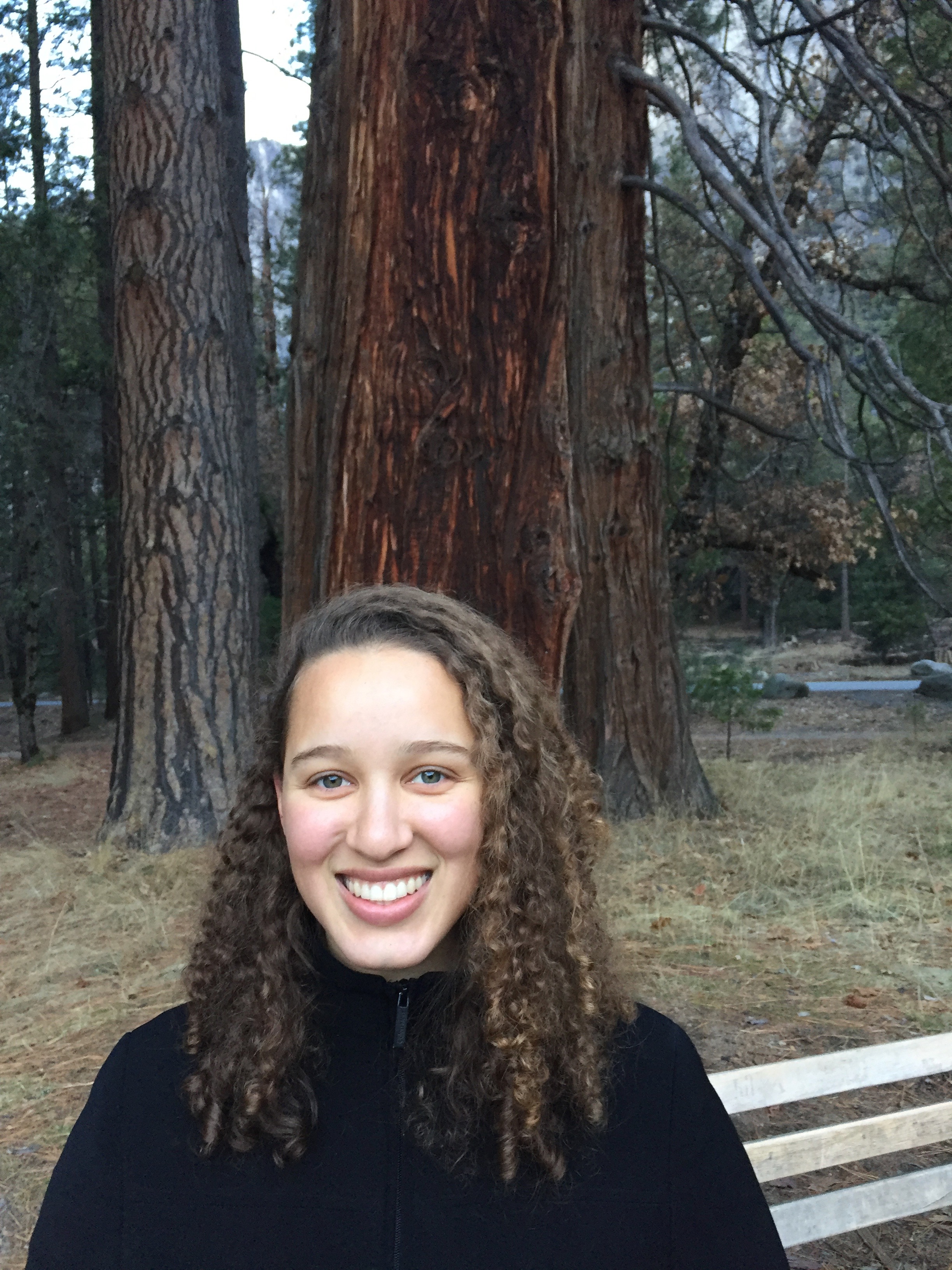
Thoughts Formed for the Modern Technological Social Media Platform We Call Twitter
by Noelle Miller-HaughtonCOLLEGE/POLITICAL
All I wanna know is what Calvin and Hobbes would have to say about our current political climate
I’d have to say the biggest problem with having a million dreams and aspirations is the fact that I’m absolutely the laziest person I’ve ever met
College students are honestly so self-absorbed and think everything is about them it’s so obnoxious... anyway the dining hall didn’t have bananas today and I think they did it to spite me because they know how much I love them
So many people in college are like “yeah, I’m a biochem/physics double major” and I’m …
-
0
read more

Translation
by Chris JanzenTranslation
by Chris Janzen
This painting depicts the curious misunderstandings which occur in the age of text, Twitter, Facebook, etc. between two parties as a result of technological mediation. Challenges of communication are complicated when commercial motivations and instinctual desires (i.e. food) are shuffled into the dialogue between a purple floating head and a masked figure.
Translation, 2013, oil on canvas and wood, 16"x12" -
0
read more
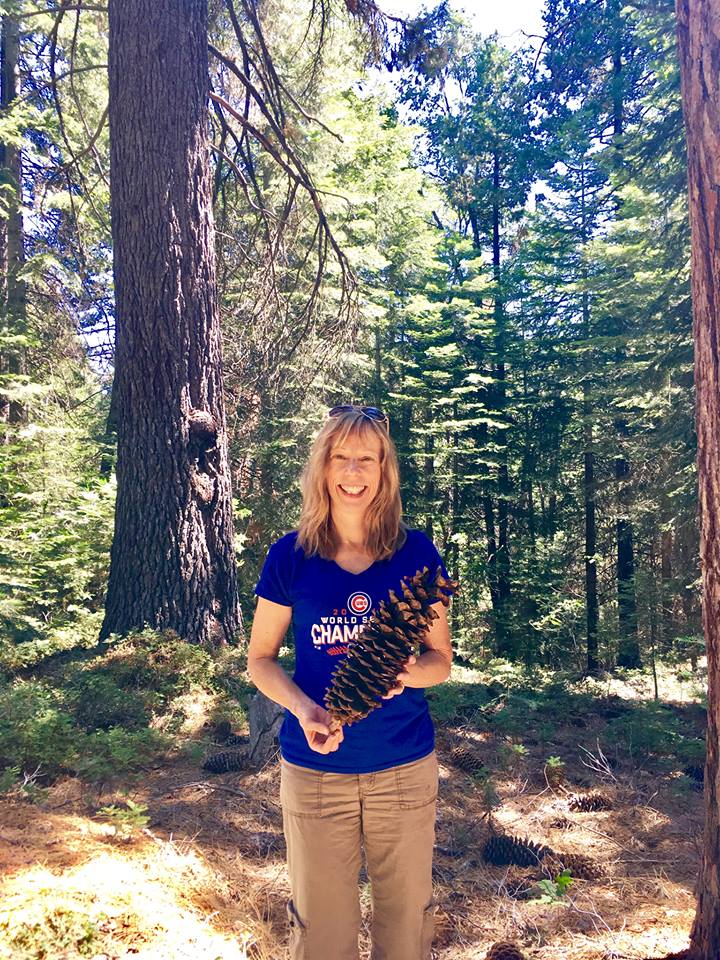
What Things Cost
by Karen McKeever“There is no milk for the babies, and small children have never seen a piece of fruit.”
Alice Fordham, NPR correspondent, on Daraya, Syria, July 12, 2016
IAfter five years of war,
children’s memories are mostly
of hunger. Gardens and orchards
they have not known, though the land
once was famously fertile.
They have not tasted soft
dusky figs or cool musk of melon,
raisins dried beneath a summer sky
or salty strands of white cheese
thickly braided. Small mouths
do not cry for those things—
they cry for whatever will
fill the burning emptiness.
When at daybreak aid … -
0
read more

Introduction to "Writing in the Information Age"
by Hope Nisly"I looked at my phone, it was sitting on the counter in airplane mode. I had been offline for seventy-two hours and can remember feeling that this should be counted among the great examples of personal stoicism and moral endurance of our times." (Zadie Smith, in Swing Time.)
In the winter of 2018, a post popped up on my Facebook feed, a friend's repost of an article by an evangelical pastor, in which the pastor stated that he did not understand progressive Christians who cry about the children in cages at the border, but care nothing for …
-
0
read more

Introduction to "What We're Reading"
by Ann HostetlerThis issue focuses on books and their power to shape our view of the world. Gayatri Patnaik’s essay, “On Finding Meaning and Creating a ‘World House,’ reflects on her journey to becoming the editorial director of Beacon Press. Kimmie and Linda Wendling offer a fresh perspective on race, embedded in their mother-dughter rletionship, in their joint review of We Can’t Breathe—On Black Lives, White Lies, and The Art of Survival, a book of essays by Jabari Asim, journalist and editor for the Washington Post. We plan to make the Wendling reviews of contemporary books on race a quarterly feature of …
-
0
read more
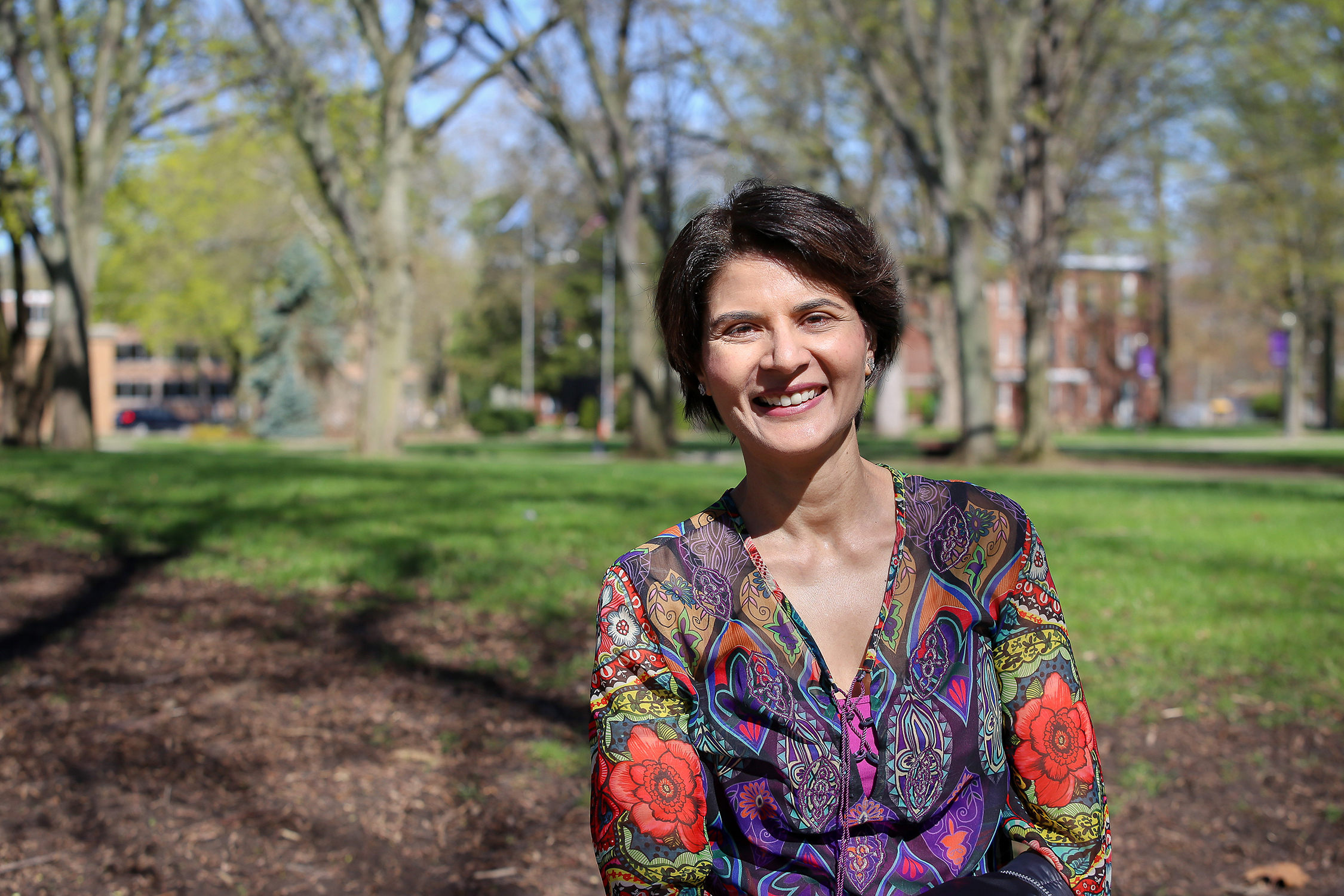
On Finding Meaning & Creating a "World House"
by Gayatri PatnaikThank you! And good afternoon! It is a great joy to be here. Greetings to graduates and families. To distinguished guests and faculty. And to members of the Goshen College community. I’d like to thank President Stoltzfus, and the committee who invited me to speak. I had the experience of being seen and nurtured at Goshen College and am here in gratitude.
When I graduated from GC, I had no idea what my future held. But in hindsight I’ve realized that the values that were instilled here were core to my success. And they’ll be core to your success, too. …
-
0
read more
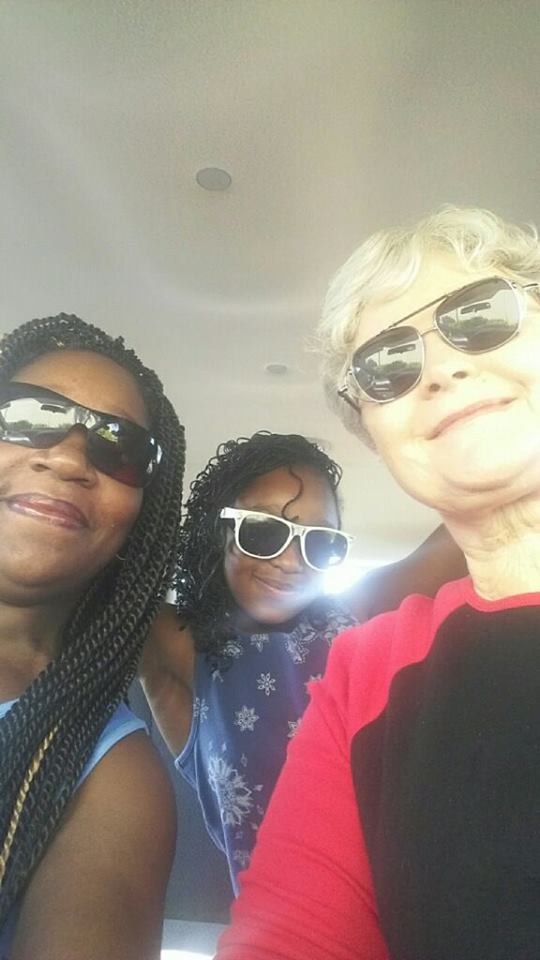
We Can't Breathe
by Kimmie and Linda WendlingThis issue focuses on books and their power to shape our view of the world. Gayatri Patnaik’s essay, “On Finding Meaning and Creating a ‘World House,’ reflects on her journey to becoming the editorial director of Beacon Press. Stephanie Krehbiel and Paul Tiessen each reflect on Miriam Toews’ latest novel, Women Talking, based on a real-life travesty of sexual abuse in a conservative Mennonite community in Bolivia. And the mother-daughter team of Kimmie and Linda Wendling reflect on We Can’t Breathe—On Black Lives, White Lies, and The Art of Survival, a book of essays by Jabari Asim, journalist and editor for the Washington Post. In so doing, they share aspects of their mother/daughter story that shape the perspectives of their conversations on race. We plan to make the Wendling reviews of contemporary books on race a quarterly feature of the Journal, opening much-needed conversation and offering words that shape and sharpen our perceptions of the world we live in.
-
0
read more

Coming to Terms with the Shadows of Pacifism
by Stephanie KrehbielA review of Miriam Toews's Women Talking
240 pages, Knopf Canada, 2018, Bloomsbury Publishing (USA), 2019
-
0
read more
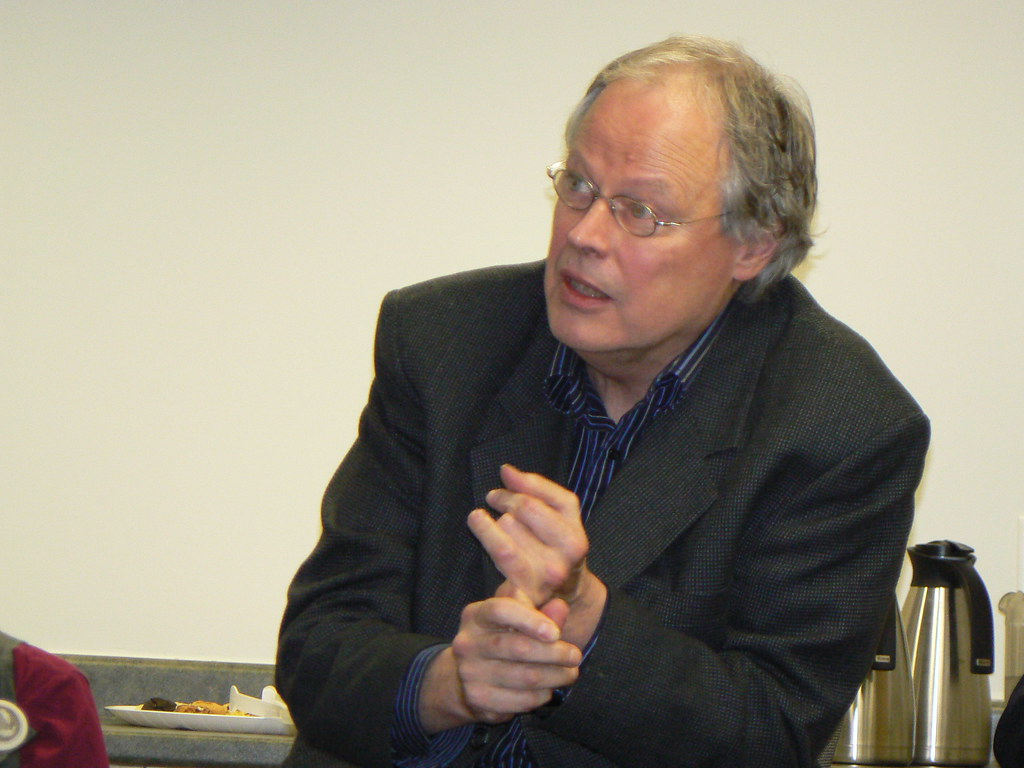
Bridging the Gap: A Man Who Can Speak for Women
by Paul TiessenA review of Miriam Toews's Women Talking
240 pages, Knopf Canada, 2018, Bloomsbury Publishing (USA), 2019
-
0
read more

Women Talking: A Novel
by Daniel Shank CruzReprinted from Mennonite Quarterly Review 93, no. 3 (2019): 428-31.
As its prefatory “Note on the Novel” states, Miriam Toews’s Women Talking is inspired by the rapes that occurred “Between 2005 and 2009” in a Bolivian Mennonite colony and then resumed in 2013 even though the original perpetrators were imprisoned. The book takes place in June 2009 as women from two families who have been chosen as representatives for all of the colony’s women discuss whether or not they should all leave the colony as a response to the violence against them. The decision must be made quickly so that …
-
0
read more

Selected Bibliography of Recent Mennonite Writing, 2015 - mid-2019
by Daniel Shank CruzWe hope to include more reviews in future issues. When you read through this bibliography of recent work by Mennonite writers, you'll see why. If you are interested in reviewing a current book for us, one from this list, or another you think our readers urgently need to know about, please send an inquiry by email to the editor at anneh@goshen.edu.
-
0
read more

Introduction
by Becca J.R. Lachman and Anita Hooley YoderIn the history of the church, translation has always played a starring role in who gets to talk with God, name God, and tell the story of God. Translations are not neutral, and the act of translation is a creative process. The idea for this "Traditions in Translation" issue began at a playful workshop led by poet-translator Matthew Landrum at the 2018 Festival of Faith and Writing.
The idea grew substantially while we were both helping to lead a poetry retreat focused on the poetics of place later that year in Laurelville. Many of the pieces in this issue were …
-
0
read more

Know Your Place: Writing as Identity
by Anita Hooley YoderThe following is an adapted version of the closing sermon from the "Poetics of Place" Mennonite Poets Retreat, held in June 2018.
"I want Jesus to walk with me; I want Jesus to walk with me;
all along my pilgrim journey, Lord, I want Jesus to walk with me." —African American spiritualNow, we've arrived. Over this weekend we have talked about place in terms of location, place in terms of life stage and situation, and now we are thinking about our place in relation to the task of writing and creativity in general.
I think it's true that none …
-
0
read more

Three Poems
by Britt KaufmannThe Heavens Are Falling, The Heavens Are Falling
"He will cover you with his feathers, and under his wings you will find refuge…"
Psalm 91:4Take comfort,
the pastor said, quoting scripture,
He will gather you under His wing.I didn't argue aloud,
but I own chickens, hens
who keep their chicks safely under them
in brave deviance of any ominous rooster.
She separates herself from the flock:
chuck chuck, she soothes: Follow me.
peep peep, they persist: Help us.Be amazed,
the NPR reporter said, citing studies.
Virgin birth is common among cottonmouth snakes,
and mentions, casually, chickens, too, … -
0
read more

Two Poems
by Joseph GaschoIntro from the author: I sometimes wonder if there was more to the Christ-story than was recorded. Maybe stories were told that were left out because they were considered inappropriate. Or maybe some right-brained artisty-type author just never got around to writing them down! And I imagine how much wider open the door would be if we knew all that really happened. John 21:25: "And there are also many other things which Jesus did, which, if they should be written every one…"
A Fifth Gospel
What if Joseph
sat down with Jesus
when he was 15 and told him
you're … -
0
read more
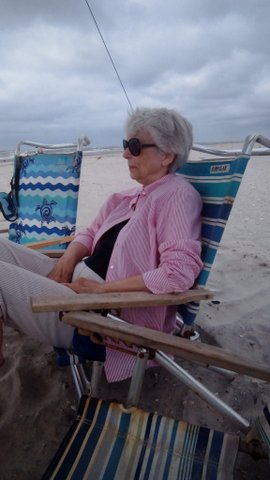
Psalm of Roses, Wrecks, and Coming Up for Air
by Barbara Esch ShislerFor this one cold slip of sun
skimming the anniversary roses and
the yellow dog rumpled in the best chair
that lands in a triangle on the brown rug;for sisters in gray braids and print dresses,
plump and adorable in church,
whose trust in Jesus never fails;
for a repetition of prayers for mercy
when there is none, or good in the vale of evil,
the ride over trembling bridges
and tight turnpikes, the stalls and blown tires,
the moving again through tears after wrecks,
the year left behind like sneakers in the garage;for stuff I'm throwing out, …
-
0
read more

Mamma
by Greta Holt"Honor your father and your mother, as the Lord your God commanded you, so that your days may be long and that it may go well with you in the land that the Lord your God is giving you."
—Deuteronomy 5:16Mamma ate: chicken salad, sweet potatoes, licorice twists, cake. Put anything near that woman and it was sucked into the vortex of her desire to stay alive for one more year.
Not that Mamma was sick; she just wanted to keep influencing things, such as impressing her friends and making her daughter come every week.
Mamma smacked her …
-
0
read more

Reimagined Scripture
by Becca J.R. Lachman*A version of these re-imagined Scriptures was shared in a March 3, 2019 Women Doing Theology service at Columbus Mennonite Church.
Intro from the author: There are over 20 verses in the Bible that mention childfree women, and most of them—especially those we hear most often from a pulpit— resolve in some sort of miraculous pregnancy. I wonder if we re-imagined some of these verses, could we also nudge the boundaries of what it means to be valued in a body that identifies as female, or to widen our definitions of family?
Here are a few possible examples of these …
-
0
read more

Reimagined Scripture: Wives Like Us
by Kirsten BeachyIntro from the author: This poem arrived in response to an invitation from Becca at the Poetics of Place writing retreat last summer to write an inversion of a Psalm. I inverted the celebrated "Good Wife" passage from Proverbs. I must have thought she sounded lonely, because in my (in)version, she has friends. They were named for our retreat leaders in celebration of sisterhoods of writers--and also for laughs.
Wives Like Us
Proverbs 31
10Wives like us, we're a dime a dozen.
11Our men get nervous about our nights out, but don't ask.
12We mostly talk about … -
0
read more

Two Songs
by Addie LiechtyJesus, Teach me to Grieve (song lyrics*)
There once was a man.
Story goes that he died and he rose again.
His followers would be
me and the ones who forgot the minor key.He has risen indeed!
But three days was too short,
I never learned how to grieve.Teach me to grieve.
Jesus, teach me to grieve.I am one of the people
who has choked back their tears
underneath the church steeple.But now I'm shooting mother's sons
forgetting that they all
are chosen ones.And when my daughters weep
I cover their mouths, I give them … -
0
read more

Translating Musical Traditions
by Katie GraberTranslating musical traditions is a dangerous business, complex on so many levels. Musicians know that scores—written music—are incomplete translations of sound to sight. Performers must learn how to bring life to the marks on a page, recognizing that not all the breaths, swells, and emotions can be notated. Crossing cultural boundaries with musical transcription is even more fraught; ethnomusicologists from Western traditions have long agonized over how to visually represent non-Western music for performance and study. How can we write down notes that fall between the lines and spaces of a grand staff? How can we represent timbres, ornaments, and …
-
0
read more

And Zion Was Our Mournful Theme
by Julie Swarstad JohnsonIntro from the author: This poem takes its title from one of my favorite songs in The Sacred Harp, the primary tunebook used by shape note singers. Sacred Harp or shape note singing is itself a "tradition in translation": across the United States and now around the world, singers regularly gather to share in this traditional style of unaccompanied hymn singing dating back to colonial-era singing schools, which is never undertaken as a performance or reenactment, but always thought of as a living, changing, participatory art form. 504 Wood Street, the song referenced in this poem, embodies this …
-
0
read more
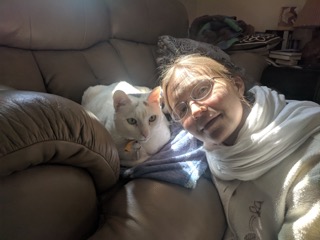
Paradise
by Eileen R. KinchAuthor's note:
The lyric essay, a developing hybrid form of writing, incorporates aspects of poetry and prose. Since this essay-poem focuses on language rather than on a storyline and dwells in theological mystery, the form seems to lend itself well to the content.
- Hebrew: pardes, orchard.
Hebrew: gan, garden.
Old Iranian: paridayda, walled enclosure.
Greek: parideisos, park for animals.
Arabic: firdaws, paradise, referring to the Garden of Eden.
At dusk, I sit on my friend's villa porch in Alexandria, Egypt. In front of me, two small pools glimmer in the porch light. Behind them, two …
- Hebrew: pardes, orchard.
-
0
read more
Translating Rumi in Iran
by Wally ShellenbergerWe were sipping hot tea on our friends' Persian carpets when a friend from Tehran came through the door. He joined us, drinking his tea with a chunk of sugar, and began to joke and laugh. Between sips, Professor Pazouki, a scholar of the poet Rumi, reached into his satchel, withdrew two huge books, and gave them to us. These two volumes contained the six books of the Masnaviof Rumi in Persian script and an accompanying English translation by R.A. Nicholson.
We had been in Iran for about a year, struggling to learn the Persian language with Mr. Nateq, …
-
0
read more

Three Poems
by Julia BakerIntro from author: I wrote the poem "Sighted-Dark" during a restless night. A train whistle called me to put words to the tossing and turning. My night fretting was coming from parts of myself blind to the reality of how Beloved I am, as I follow Jesus on the way.
Being with this the Gospel lesson, Mark 10: 46-52, I was struck with what must have been forming within Bartimaeus as he begged in blindness on the city street. What healing and strengthening was the Spirit doing in the dark to give Bartimeaus the courage to name his need to …
-
0
read more
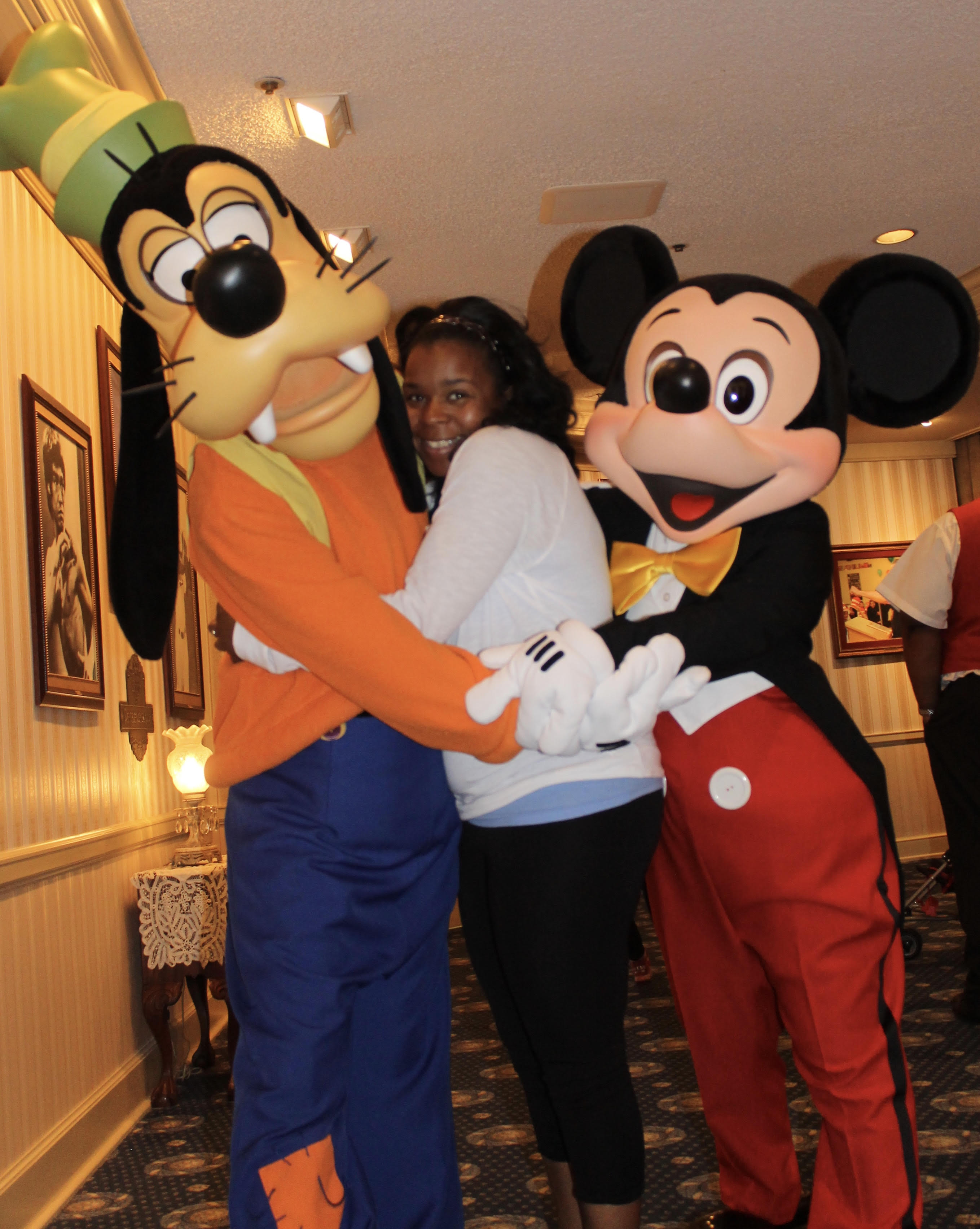
What the Tree Remembers
by Ivanna Johnson-McMurryAs I walked out of the library and into the main foyer that led to Pastor Sadie's[i] office, I was met by Elder Zimmerman, who I had been friendly with in the past. Imposing, he stood nearly six feet and muscular to my five foot frame. He had a glorious gray beard, neatly trimmed, with sideburns to match, and wore black ill-fitting trousers with a white button down shirt. His large hirsute hands rested near his thighs. Simple, rectangular wire-rimmed bifocals nestled atop his hooked nose. I said "hello" as I looked past him to the office door of …
-
0
read more
Sanctuary
by Sandy VranaIntro from the author: Holy Incarnation Church was open at all hours, and going there was an aesthetic as well as a religious experience. The Church was always more than nuns and priests, more than the congregation. The rites of the church connected me to something very ancient, almost timeless. Religious ritual is incipient drama, and that was part of its attraction, too. Yet it was also something more than all of these things…..
SanctuaryAt fourteen I walk to the church
in early autumn dusk. In the dim hush
behind double doors my hand dips
into holy water, cool, … -
0
read more

Introduction: SF Special Issue
by Jeff GundyGrowing up on the Illinois prairie, I read pretty much anything I could find. My little school had small grade school and high school libraries, and the church had an even smaller one, both of which I ransacked. Every once in a while there was a book fair, and Scholastic Books sent around order forms that had me pleading with my parents for this or that paperback. (I found one of those books, titled Beyond Belief, on my shelves as I wrote this introduction).
I read mysteries, sports stories, general novels, all sorts of things, but my favorite reading was …
-
0
read more

Excerpt from "Monster Portraits"
by Del and Sofia SamatarThe Perfect Traveler
There is a perfect traveler. He has been running for millennia, light and tireless. In every joint of his body he wears the sign of the wind.
He is the forward march. Small sleds and stars disappear in his wake. Of those he brushes in passing it is said: "At least she didn't suffer."
Children dream of riding upon his horns, or of stealing his spittle from the museum: those great gouts of metal flung down from the sky.
I am lucky to have a job and friends. Yet I long for the perfect traveler's molten heart, …
-
0
read more

Interview with Tobias Buckell
by Tobias BuckellNOTE: I posed these questions to Tobias Buckell in July 2018 via email, and he answered shortly thereafter. We have known each other well since Toby came to visit Bluffton as a prospective student a good many years ago, so in some cases I knew more or less how he would answer, but sometimes I was surprised, and often I learned things I hadn't known, even after all these years.
Jeff Gundy: How did you find your way to Bluffton? Did you know anything about Mennonites before you arrived? What was your college experience among Mennonites (and others, of course) …
-
0
read more

A Case for Mennonite Horror
by André SwartleyOne day a man named John came up with an idea that he wanted to turn into story. Here it is: a ruling corporate class uses commercial materialism to create a society of perpetually unsatisfied and self-centered consumers, while maintaining entire populations of invisible laborers in perpetual servitude.
Now, as a story, this thing's got problems. There's no main character, no setting, and no real hook. The central conflict is vague, overly grand, and full of clichés (never mind that they're true). Even worse for us as a Mennonite audience, we have heard it all before. Jesus himself told us, …
-
0
read more

Excerpt from "The Wretched Afterlife of Odetta Koop"
by André SwartleyLazarus Beachy dies on the last day of September. The miniature forest of elm trees surrounding his friend Grover Solomon Yoder's house—a three-story monolith that old timers in New Canaan, Iowa still refer to as "the Academy"—succumbed to Dutch elm disease in the preceding summer. Their bare branches writhe at the sky in crooked fans, gray and dead as stone. Lazarus thinks they look like props in an old horror movie, and Grover Solomon has to take his word for it. Horror movies are as forbidden in the Yoder household as Laz's deck of burlesque playing cards. Grover Solomon doesn't …
-
0
read more

Excerpt from "Gonzalo Vega and the Portal Down Below"
by Stephen BeachyGonzalo's encounter with Alex had left him feeling muddled. George was quiet as he drove them deeper into Chula Vista. Lost within himself. It was almost evening by the time they were within walking distance of the border. The data wall shimmered.
You know what you're doing here? asked George.
It's the easiest place to get out, said Gonzalo.
But the hardest place to get into Mexico.
Getting in won't be an issue.
You say so, said George.
You have any tips for getting out? I have a day pass to get into the Liminal Zone.
That should work. Without …
-
0
read more
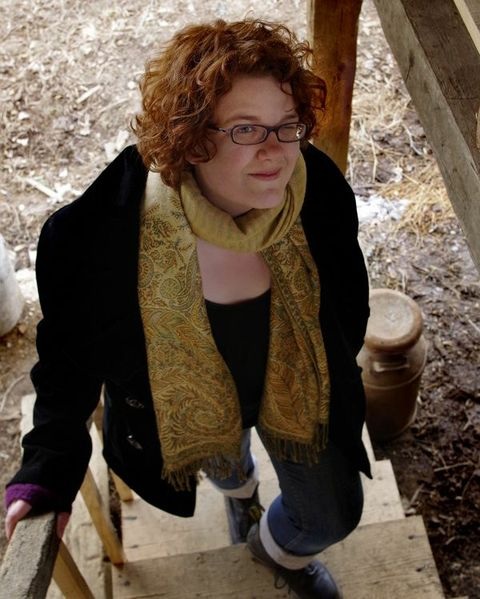
Excerpt from "They Speak of Houses"
by Jessica PennerContext: A winter storm shrouds the county surrounding Ulysses, Kansas with ice. Hywel Groening sees an unfinished mosaic of blue stones in the back pasture just as the sun begins to set. When he and his sister, Sophie, find a letter written in German after their father dies, they ask their Oma Abiah for an explanation. They learn that their great-grandfather, Georg Groening, returned to Ulysses after a twenty-year prison sentence. The following sections of the novel share Georg's discovery of the mosaic and why he was in prison.
October, 1898Georg was well into his eleventh year of prison …
-
0
read more

Wild Geese (Excerpt from "Requiem")
by Chad GuslerThe material substance which governs terrestrial life acts as agent likewise in the celestial.
—Tertullian
I wore my yellow scuba mask when they baptized me in a pond full of cow shit. It was the only way I'd do it. Dad agreed to it, though he laughed at me. Mom told him to knock it off or I'd never get baptized. Was that what he wanted? No, it wasn't.
I was fourteen and had spent the early part of the summer preparing. I read verses from the Bible. I prayed lots of prayers, some rote, most fervent. I examined …
-
0
read more
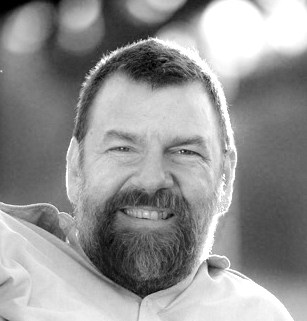
The Last Djinn
by Keith MillerHe wasn't supposed to go down to the end of the alley—the abandoned houses there were unstable, his uncle said. But it was an escape from all the shouting and cigarette smoke. He liked to take a stick and poke through the heaps of tins and papers. Once he found a nest of baby ferrets, once a broken watch, once a half-eaten picture book.
He kept his favorite trinkets in a hole in the wall, sealing it with a brick. He'd take them out and sit on an upturned can and make rows of bottle caps and buttons, arranging them …
-
0
read more

Fiction, Theory, Memoir: Sofia Samatar’s “Request for an Extension on the Clarity”
by Daniel Shank CruzI cannot get Sofia Samatar's short story collection Tender out of my head. I first read it in June 2017 and immediately decided that I would include it in my Fall 2017 African American Literature course and that I would write about it. I have done so in a personal essay and in the Epilogue to my forthcoming book, but I still cannot stop thinking about it.[1]
Samatar and I have become friends over the past few years, and it is enjoyable trying to discover where she puts herself in her fiction. There are autobiographical elements everywhere in Tender. …
-
0
read more

Interview with Emily Hedrick
by Emily HedrickNOTE: This interview emerged from questions I sent to Emily Hedrick in July 2018. Full disclosure: I also edited her True Confessions of a God Killer, a fascinating "allegorical memoir" which is described further below, for the DreamSeeker series of Cascadia Publishing House, whose editor, Michael King, also receives a shout-out from Emily. –Jeff Gundy
JG: For those who may not have read True Confessions of a God Killer, can you describe the book and how you came to write it?
EH: During my first year of college I was caught up in a unique spiritual crisis: my belief …
-
0
read more

Interview with William Squirrell
by William SquirrellThis interview with William Squirrell, author and founder and editor of Big Echo: Critical SF was conducted via email by Jeff Gundy in July 2018. (NB: William Squirrell is a pen name.)
-
0
read more

Review of "Heartseeker" by Melinda Beatty
by Britt KaufmannHeartseeker by Melinda Beatty
Hardcover | $16.99
Published by G.P. Putnam's Sons Books for Young Readers
Jun 05, 2018| 336 Pages| Middle Grade (8-12)| ISBN9781524740009By Britt Kaufmann
Full Disclaimer/Disclosure: I am biased and will be inserting myself into this review entirely too much for it to be a proper academic essay, but I'm no academic. I am foremost a reader, though I am also a poet, teacher, and a mom who read chapter books out loud to her kids when they were little.
I am biased, first of all, because I remember Melinda Spohn (Beatty) from the creaky hardwood …
-
0
read more
![Five or Six Things You Should Know about "Amish Vampires in Space" [Spoilers everywhere]](/media/upload/journal/author/beachyk.jpg)
Five or Six Things You Should Know about "Amish Vampires in Space" [Spoilers everywhere]
by Kirsten BeachyAmish Vampires in Space—the truly inspired title is the best thing about this book. Surely you at least took a peek at it on Amazon when it came out and the cover got passed around on social media in 2014. It is 481 pages long and laboriously crafted, so unless you are a forgiving speed-reader or intend to study Amish Vampires for research purposes, you may wish to content yourself with my takeaways.
- Plotishness: Jebediah and Sarah Miller are members of an isolationist Amish colony planet, but Jebediah uses forbidden technology to summon help when their solar system becomes …
-
0
read more

The Body as Document: Some Thoughts on My Tattoo
by Daniel Shank CruzAs soon as I walked out of the tattoo parlor on 10 July 2018 I posted the above photograph on Facebook (i.e., documenting my documenting, and when this essay goes online I will share the link on Facebook, continuing the documentation spiral) along with the caption "New tattoo! I've been thinking about getting one for a while, and living under a government that wants to silence me as a queer person of color made me decide to get a design that makes both of those parts of myself explicitly visible."[1]
The tattoo resulted from an experience earlier in the …
-
0
read more

Dirk Willems
by Julia Spicher KasdorfErasure is a modernist poetry technique, a playful variation of found poetry that has been around for at least a century. Typically, poets work by erasing or redacting words from a significant text to uncover a new text. An article by Rachel Stone in The New Republic (23 October 2017), available on-line, observes "The Trump Era Boom in Erasure Poetry."
The erasure only makes sense in relation to the original—to celebrate, subvert, efface, complicate, or extend its meaning. Jen Bervin, for instance, has published an entire collection of poems based on sonnets by Shakespeare called Nets. Sometimes the original …
-
0
read more

On Documents, Documentation, Writing and Experience
by Raylene Hinz-PennerHow does that "relationship" work, I wonder—between documentation and experience? Why do these terms feel adversarial to me in 2018? A document is an innocent text, is it not—a neutral source waiting to be used by an imaginative writer? A document is precisely the "prod" or "primer" which has often sent me into story! But documentation has become a kind of dirty, authoritarian word.
I. The Document
(Etymology: "document" as noun; the Latin root word includes such meanings as "to show, teach, or cause to know")
-
A document can serve to recover experience a writer cannot otherwise know; …
-
-
0
read more
Excerpt: Time and Memory
by Joyce MunroAuthor's introduction:
I found her in her husband's estate papers where an "X" indicates she could not write her name in English cursive. Yet she paid off his liens, loans, and doctor bills in the early months of 1871, and had $600 left over to build another life for herself.
A decade earlier her father-in-law deeded a house and subdivision of his land to Sarah M. Moyer, but the tax collector the following year, 1862, drew a line through her name. Perhaps Jacob C. wanted to protect Jacob F. from losing everything should a suit be filed against his son's …
-
0
read more
Grandpa's Day Timers, As We Left They Sang, Plans to Prosper
by Angeline SchellenbergI regard these found pieces from my elegy manuscript, Field of Light/Field of Stone, as a collaboration with my ancestors. In the case of the memoir ("As We Left They Sang") and interview ("Plans to Prosper"), I have set their prose to music, in a sense, by carefully selecting phrases and placing them next to one another. My grandparents' voices are very present in the work.
With the poems using memoir and interview, the objectives of author and subject match: to create something that will make our family history known. In the case of the day timers, by combining …
-
0
read more

Introduction: Documentary Writing and Mennonite/s Writing
by Julia Spicher KasdorfFor about a decade now, I have been interested in documentary poetry, occasionally teaching it in special topics courses and trying to write it myself. It has taken me a long time to recognize how deeply the concerns of this literary practice touch my own reasons for writing—and how clearly they correlate with values I find common among some authors and books associated with the loose enterprise we sometimes call "Mennonite/s writing."
Documentary poetry applies the values of contemporary verse—voice, concision, visual imagery, emotional urgency, inventive form—to topics we expect to encounter in the news, such as issues of social …
-
0
read more

From THE WHITE MOSQUE
by Sofia SamatarOn Working with Documents
In the 1880s, a group of Mennonites migrated from southern Russia, now Ukraine, to the Khanate of Khiva in present-day Uzbekistan. Motivated by a number of factors, including the impending loss of their exemption from Russian military service, the wave of millenarian fervor then sweeping through Europe, and the prophecies of the dynamic preacher, Claas Epp, Jr., this small group of travelers undertook a grueling journey into unfamiliar territory and established a village that lasted for fifty years.
About five years ago, I became fascinated by these events for simple, personal reasons. As an early encounter …
-
0
read more

Writings
by Abigail Carl-KlassenI was raised in the rural, workingclass community of Seminole, Texas. Austere and deeply conservative, yet vulnerable to the boom and bust cycles of the oil field and cash crop agriculture, Seminole negotiates the tenuous space between permanence and transience, tradition and change. A multi-cultural community, where English, Spanish and Low German can be heard in the streets and stores, Seminole is home to a large Mexican-American community and a sizeable Low-German speaking Old Colony Mennonite community who immigrated to the area from northern Mexico beginning in 1977. As a girl attending a strict Independent Fundamentalist Baptist church, I befriended …
-
1
read more

Introduction: Queer Mennonite Literature
by Daniel Shank CruzAny reasonable observer of the field of Mennonite literature must agree that it is currently flourishing. Alongside a still-active first generation of Mennonite writers, a second, prolific generation of writers has emerged.[i] In addition to this creative work, new scholarly collections such as After Identity: Mennonite Writing in North America and 11 Encounters with Mennonite Fiction are evidence of the field's robust discourse.[ii]
Queer Mennonite literature is becoming more and more visible as a movement within this recent activity. Lots of younger Mennonite authors are writing queerly, whether in terms of writing about LGBTQ2IA+[iii] experiences or also …
-
0
read more

A Brief History and Bibliography of Queer Mennonite Literature
by Daniel Shank CruzIn a 2008 personal essay, Jan Guenther Braun explains that she writes as a starting point for the creation of "queer Mennonite academic history."[i] Happily, in the decade since her essay, the body of queer Mennonite writing that Braun calls for has come into being, encompassing both creative writing and literary criticism. The present bibliography reveals this boom, which has led to queer writing becoming an important subfield of Mennonite literature. Perhaps surprisingly, the bibliography also shows that the roots of queer subject matter in Mennonite literature stretch back at least a quarter century before Braun's essay.[ii] This …
-
1
read more

Rejecting Maleness: An Apology to the Revolution
by Miriam SuzanneThanksgiving with friends and strangers. I still wear a beard, but my nails are iridescent. This is how I measure time, before Caitlyn. The conversation turns to a trans woman I've never met. I've never met any trans women, that I know of. My friend says:
—If we eliminate these rigid gender roles, would anyone need to be trans?
Over the years, this question takes many forms:
—What does it mean to "experience" one's gender as this or that?
—What does it mean to "feel like" a woman?
—What does "being a woman" mean to you?
—Can't you just be …
-
0
read more

ARCHIVES AT A TIME
by Kandis FriesenARCHIVES AT A TIME OF WAR
ARCHIVES AT A TIME OF NOT-WAR
ARCHIVES AT A TIME OF ECONOMIC CRISIS
ARCHIVES AT A TIME OF INFLATION
ARCHIVES AT A TIME OF CORRUPTION
ARCHIVES AT A TIME OF NATIONALISM
ARCHIVES AT A TIME OF OCCUPATION
ARCHIVES AT A TIME OF LOSS
ARCHIVES AT A TIME OF NEOLIBERALISM
ARCHIVES AT A TIME OF DISPLACEMENT
ARCHIVES AT A TIME OF DISINVESTMENT
ARCHIVES AT A TIME OF DIASPORA
ARCHIVES AT A TIME OF NOSTALGIA
ARCHIVES AT A TIME OF VIOLENCE
ARCHIVES AT A TIME OF INDIFFERENCE
ARCHIVES AT A TIME OF HOPE
ARCHIVES AT A … -
0
read more

Gravity's End, The Para-Architectural and The Not Not-ruins
by Kandis FriesenThe buttress is an exoskeleton. It is necessary and functional, it shows that support is needed. It exposes the impending collapse if it were not there. Its size and construction imply its objective as a long-term goal, that it must remain for some time, that it must endure a persistent task—a large and persistent task.
It is simple. It is strong in its simplicity, it was thought out, designed, adjusted, then built to fit this specific building, these specific walls, this specific ground, this specific place. It is untreated, it is weathered, it adds itself as a …
-
1
read more

Isaac Bowman's Birthday: An Excerpt from "Plain Love: A Novel"
by Andrew Harnish"But all of us together are but a party of children wandering in from the country, travel-stained, tired, and bewildered with glory."
-Robert Hugh Benson
3.
Like a prince Isaac sat there, like a prince at his table. He swung his legs, glanced over at his closest friend, Luke Sauder, and back at the wooden clock beside the window. The second hand swung triumphantly up toward twelve o'clock. 57 seconds, 58.
'It's time,' Isaac cried, as the clock struck twelve. 'It's time.'
At the stove, his mother kept stirring. Finally, she turned, her blue eyes wide with warning. It was …
-
2
read more
An Excerpt from "Don't Drive Too Fast, Don't Stay Too Late, and Be Good"
by Jan Guenther BraunThe pants had Wayne Gretzky's signature embroidered across the back pocket. I felt powerful, like the Great One's signature stitched across my ass was surely a precursor to all of my dreams eventually coming true. Grandma Klassen used to have us over every Sunday afternoon and, as was her practice, she had bags of used clothing waiting for each of us. I still wonder how on God's green earth she got her hands on that many used clothes; there were six of us.
Henry started digging through his bag without much enthusiasm. He never liked to seem excited, like it …
-
0
read more

An Excerpt from Gonzalo Vega and the Portal Down Below
by Stephen BeachyThe cottage where Gonzalo was recuperating was one of eight identical cottages between an abandoned business and an alley that ran south toward Mexico. Gonzalo's right foot was gone; how exactly, he couldn't remember. Philip, the strange little man who had nursed him back to health, had found him bleeding on the street in downtown San Diego, unconscious. There'd been an explosion, and only Gonzalo's fire retardant properties had saved him from major skin burns, Philip said. Philip was growing him a replacement foot, but it wasn't ready yet, and Gonzalo was still ill.
He was often feverish. He would …
-
0
read more

Two Poems
by Lynnette D'annaposthumous
I dream a rocky coast somewhere in Galapagos a lizard
penetrates me lazily with forever on his mind winking one staid eye
pretending to be wise as though age has anything to do with knowing truth
opus dust rises like a soft slow mist from his ancient smoky bones
and under this duress I reluctantly confess to knowing well before
we started this affair that you were buried long ago
that your spirit is an orchestra of blistered plastic
comes as no surprise since you reside in hell
your open mouth upon my skin the soft and secret whispered …
-
0
read more
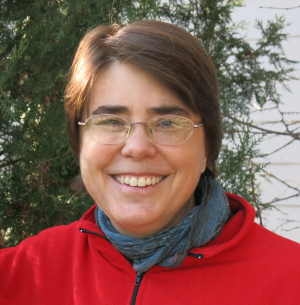
The Finest of Lines
by Kay LorraineI walk the finest of lines. Between unshakable faith and unflagging doubt. Between men and women, rich and poor, the haves and have-nots. Between my queer life and the straight world I inhabit regularly out of necessity. That line bounds my life, placing me in the World, but not of it, situating me in multiple spaces, yet assigning me comfortably to none.
The line between belonging and not belonging is a thin one, but it's tall and wide, like an industrially reinforced bulletproof glass enclosure pieced together from a million little prohibitions and minor denials of indulgence. Like grains of …
-
4
read more

A Birth, a Flag, and My Introduction to Military Erotica
by Becca J.R. Lachman***
From: Rebecca Lachman
Date: November 2, 2012 2:22 PM EDT
To: Mann, Jeff
Subject: Our intertwined books
Greetings, Professor Mann.My name is Becca J.R. Lachman. I'm a poet and composer who teaches writing at Ohio University in Athens, Ohio. I've been meaning to email you for awhile because it seems we share a unique connection. Here's the story in a nutshell:
Last spring, my first collection of poetry The Apple Speaks was published. While visiting my hometown in NE Ohio, I distributed a few author copies among family members. My 83-yr-old Mennonite grandma handed me her copy for …
-
0
read more

By Way Of The Barn
by David Elias"Through the ample open door of the peaceful country barn,
A sun-lit pasture field, with cattle and horses feeding;
And haze, and vista, and the far horizon fading away."
Walt Whitman
Read almost any Mennonite author and sooner or later you will come across a reference to some variation of "the barn" in their work. And we've already had references to barns in some of the presentations at the conference here. The place has a habit of popping up in their poetry and novels, short stories and essays, perhaps only mentioned in passing but just as easily chosen as the … -
0
read more

Oral History
by Connie T. BraunMy memory has captured an image of her; apron clad, in the kitchen, the table-top dusted with flour, her thick hands in dough and, as the table creaked under the weight of her efforts, my plump grandmother vigorously pummeling it so that it would rise again, divine. Yet, as potent as an image is, and more than I might realize, memory is of the tongue.
In my grandmother's kitchen, the food of my childhood was not only delicious to the taste buds, but the foreign names, like zwieback[1], the glide of vowels, diphthongs of dialect, and jumble of …
-
0
read more
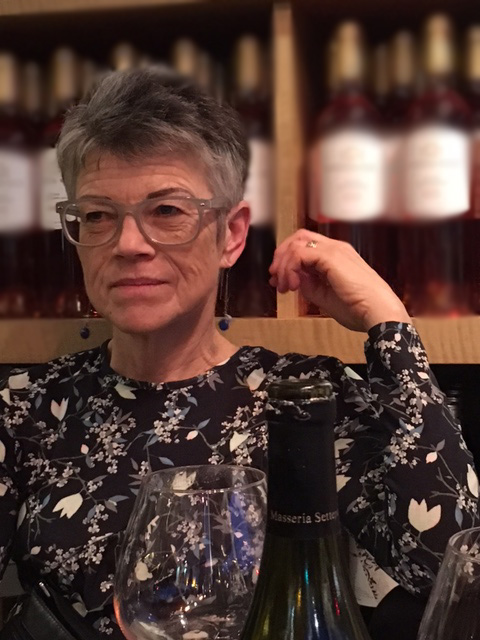
Daughters Speak: What the Father Offers
by Mary Ann LoewenI remember years ago accusing my husband of being easy on our two daughters and hard on our son; I also remember my daughters accusing me of favouring my son over them – in fact, their secret name for him was 'Baby Prince.' And one of my daughters admits that she is kind of a 'daddy's girl.' Two years ago Sons and Mothers was published – a collection of stories that I edited, written by Mennonite men about their mothers. A corollary to that, Mennonite women writing about their fathers, is currently in the hands of the publisher. Working on …
-
0
read more

Family, Nonviolence, and Social Class in Adoption: One Family's Story
by Hope Nisly"You're going to have to face it, Mom," my daughter taunted me. "Me and my friends are just white trash. And we do white trash kinds of things."
She was fifteen and had only lived with us since she was eleven. I was explaining to her why we wouldn't allow her to go with her friend's family to a casino. I had a pretty good idea what went on there. The other parents both drank and played the slots while our two 15-year-old kids did what they wanted – which included drinking, smoking, and sex in the bathroom. My husband …
-
0
read more
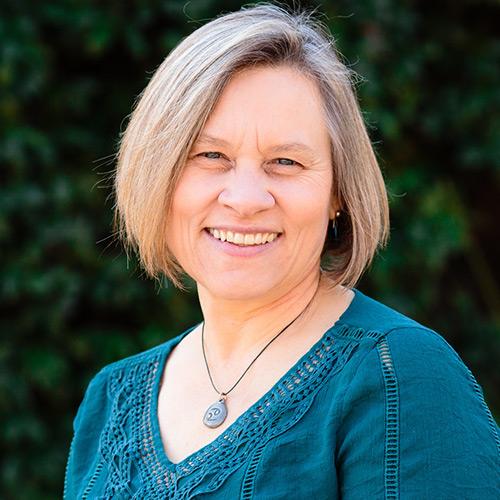
Adoption, Faith, and Belonging
by Fran Martens FriesenI recently interviewed several families living in the Fresno, California area to explore their experiences with adoption. The following five stories, told from the parents' point of view, are limited to the following scope: Mennonite and/or Anabaptist families, Caucasian parents, and transnational adoptions of children from Asia. Here I present several vignettes categorized into the following: Motivation to Adopt, Initial Bonding, and the child's Construction of Identity. In all of these categories, I note the role of religious faith and how it is reflected in various and meaningful ways.
MOTIVATION TO ADOPTAnthropologist Linda Seligmann (2013) examines the role faith …
-
0
read more

Displacement, Mennonite/s Writing, and the Human Barnyard
by Kyle GerberIn her introduction to Acts of Concealment – the volume of published proceedings from what might be retrospectively titled Mennonite/s Writing I – Hildi Froese Tiessen quotes Robert Kroetsch's thoughts on narrative revelation and concealment: "To reveal all is to end the story. To conceal all is to fail to begin the story. Individuals, communities, religions, even nations, narrate themselves into existence by selecting out, by working variations upon, a few of the possible strategies that lie between these two extremes" (qtd. in Tiessen 19). Despite the 27 years between that first Mennonite/s Writing conference in Waterloo and Mennonite/s Writing …
-
0
read more

Art, Migration and (Home)making: Mennonite Women, Mexico and ‘the World’
by Abigail Carl-Klassen50 years after their arrival from Prussia in the 1870s, 7,000 Altkolonier (Old Colony) Mennonites left Manitoba and Saskatchewan to form new, more conservative colonies in northern Mexico, due to conflicts with the Canadian government concerning secularization and compulsory English language instruction mandates for colony schools. The Mexican government promised Old Colony communities educational autonomy and exemptions from military service in exchange for occupying and developing remote, yet contested, territory in the wake of the Mexican Revolution. The first colonies in the states of Chihuahua and Durango were established in 1922 and 1924 respectively and grew quickly as a result …
-
0
read more

Self-Portraits with the Flower Women (Las Mujeres Flores, Yo, and Eunice Adorno)
by Abigail Carl-Klassen1.
One time I watched Willy Zacharias’ mom lift a refrigerator above her shoulders and into the bed of an F150. Engalander teenage boys, friends of her son, stood stupid, slack jawed with a dolly and bungee cords in their fists, as she swatted them back with her neck. Wiping her hands in the pleats of her dress, she tipped her head back pursed her lips and said, well, guess I’ll get supper started.
2.
After supper, the men talked in the living room while Leah and I scraped the last bits of baked potato into the trash. Stacked …
-
0
read more

The Schekbenjel Goes for a Ride: Mennonite Settlements, Chihuahua, Late 1980s
by Abigail Carl-KlassenI had me two girlfriends once. In different Darps but still close enough
to walk. I'd visit one Sunday after church, then I'd visit the other one
Sunday after supper. After I started working, just a Schekbenjel, but still
making some dough, I saved up. Bought me a motorbike. Thought I was
hot stuff cruisin' in and out of the Darps. I could go to a bunch of them
now since I wasn't just walkin'. The bike was small but I was real
fast. Kicking up dust like nobody's business. One Sunday, I'd blown
off both of my girlfriends because …
-
0
read more

Watching Las Reinas: Escuela Secundaria, Cuauhtémoc, Chihuahua, 1990s
by Abigail Carl-KlassenI never got to be in the contest
for the beauty queens even though I was
nominated every year since I started
school with the Mexicans. I bet
I would have won too—everyone here
is in love with rubias. I just got to bake
cupcakes for the fundraiser. I didn't
march in the Independence Day parade
or dance folklórico either. My parents
wrote letters saying it was against
our religion, but I still had to help
decorate during art class. I loved
cutting out hearts and flowers for
the floats and getting to use spray
glitter. No matter how hard …
-
0
read more

Interview with Anna Wall
by Anna Wall________________
1. Tell us a little bit about your background.
I grew up Old Colony Mennonite in Nuevo Ideal, Durango, Mexico. I have seven brothers and four sisters. I am the third oldest. My parents, all four of my sisters and one brother live in Mexico. Two of my sisters do seasonal work in Canada. I travel back to my colony in Mexico about once a year to visit.
2. What was your community's relationship with storytelling, writing, and books?
Storytelling in the forum of gossip was practiced incessantly in my community. Books and writing not so much; in fact, …
-
0
read more

Hopeless Mennonite
by Anna WallSince it was Saturday, and since when I threw the pen across the room, it got all dusty, I decided that it was time to clean my apartment with Pine Sol again. I put the TV on and just left it on a random channel as I began cleaning. That's when I realized that the smell of Pine Sol had an uplifting effect on me. That smell made me feel like I was still part of Mexico and my family.
I thought about it and realized that whenever we had cleaned with Pine-Sol back home, we had had something to …
-
0
read more

Mennonite Girl gets a Sinking Feeling
by Anna WallI got up and wiped the Mexican dust off my clothes from sliding down Izaak's car and went back inside. I was just going to open the box my mom had sent me when my phone rang. I thought, "Man, today went from 'Nothing to do,' to 'I can't catch a break.'"
I answered the phone, and it was Bree. She had heard that a tobacco farm was looking for Mexican Mennonite workers and she thought of me.
She said to be there by seven the next day and explained that it was just a few back roads behind the …
-
0
read more

Interview with Veronica Enns
by Verónica Enns________________
1. Tell us a little bit about your background.
I grew up in the Campos Menonitas of Cuauhtémoc, Chihuahua, Mexico, in the early 80's isolated from the surrounding Mexican communities, amongst strict monopolies of Mennonite denominations who prohibited public education and all media and literature other than the Bible. Amongst a few cousins, I was one of the first to go to public school in a small Rancho were I learned Spanish and another culture. However, after secondary school, I was held home for three years before continuing high school due do religious limitations. Homemaking and helping with the …
-
0
read more

Veronica's Art
by Verónica EnnsVeronica Fusion (bio pic)
Photo taken by Raul Kigra 2016
Adaptación, Three Mennonite Graces, June 2017 Acrylic on canvas, encaustic layer. As in the photograph she is installed with two head coverings used by Mennonite women the white before, the black after marriage.
The little cups representing the innocent and playful childhoods we enjoy before growing up as adults. The colors in the painting are also playful and soft with outlines as in colored books.
Red Suitcase, 2005
Mixed techniques of found objects, …
-
0
read more

Breakfast on Sabinal
by Kerry FastBreakfast on Sabinal I. Papaya and Hot Chocolate
I never actually had papaya and hot chocolate for breakfast on Sabinal. I had it at Restaurant Constantino at the corner of Calle Minerva and Avenida Benito Juarez in the grid of dusty grey streets that makes up the Chihuahuan desert city of Nuevo Casas Grandes. Constantino is not a restaurant I'd highly recommend; a little bit dumpy, tables and chairs sprawled messily throughout the room. Nor would I vouch for the food except for the lime-soured papaya and the frothy hot chocolate.
Sabinal is a small isolated Mennonite …
-
0
read more

Finding Our Place in Nature
by Priscilla Stuckey"It’s as if this project of reconciliation lies at the heart of all the problems of the modern world—because when people forget their ties to Earth, they forget their ties to one another."
-
1
read more

AGES AND AGES HENCE: A Conservative Mennonite Woman's Secret Dreams of Education
by Hope NislyThe Dream
"This I remember. How happy I was to be there."
Edith Swartzendruber Nisly (1919-2017)
The dream came to her soon after she turned ninety and she called to tell me about it. She laughed as she spoke, but it was more tentative than her usual deep-seated laughter.
I was nearly the youngest of a large family and born when my mother1 was close to forty; I had a relaxed relationship with her. She was past the general chaos that came with a profusion of young children in a too-small house, past the point she worried over other …
-
0
read more

Songs for My Mother - Miriam L. Weaver, a Woman who Lived Beyond Boundaries
by Carol Ann WeaverSometimes boundaries need to be understood in a transgressive way, when persons thought of as insiders have actually had to live outside the generally accepted borders containing cultural clout, control, comfort, convention, and community norms. Due to life events, chosen and unchosen, my staunchly Mennonite mother Miriam L. Weaver, 1922-1997, had to live outside many boundaries guarding preferred lifestyle, leadership, opportunity, and pay equity. These areas affected dress, marital status, education, work and leadership. This essay deals not only with factors within my mother's life, but also with manners and stylistic idioms with which I, as a composer, have crafted …
-
0
read more

On Postcolonial Mennonite Writing: Theorizing a Queer Latinx Mennonite Life
by Daniel Shank Cruz1.
In her 2017 essay "The Scope of This Project," one of the most important pieces of Mennonite literary theory ever, Sofia Samatar calls for an investigation of "postcolonial Mennonite writing," which includes work by Mennonite writers from global postcolonial contexts as well as "minority writers in North America."[1] Samatar's advocacy for hybrid Mennonite identities that encompass multiple ethnicities, nationalities, cultures, theologies, geographies, and, implicitly, sexualities—which I view as a necessary addition to Samatar's concept—epitomizes intersectional, anti-oppressive ideals. When I read Samatar's essay, something clicked for me. I felt that finally the theoretical tool existed for me …
-
0
read more

Mennonite Writing of the Post Colony
by Ann HostetlerSofia Samatar, in our spring 2017 issue (vol. 9, 2), offered a vision of a world Mennonite literature in her essay, The Scope of the Project. The writers for such a literature already exist, Samatar writes, but “like any literature, world Mennonite literature has to be created. That is the daunting truth, the vast scope of this project.”
This issue on Writing Across Borders offers a sampling of Mennonite Writing from one of the groups included in Samatar’s world vision, namely “the work of minority writers in North America, of black, Latinx, and indigenous Mennonites, whom I include in …
-
0
read more

My Island, the Mennonites, and Me
by Rafael FalcónMy parents were Catholic, yet they enrolled me in the kindergarten at the Methodist Church alongside the town square. For them, my attendance at this school was more convenient, and there simply were not many other options in our small town in central Puerto Rico. I remember very little from that experience, other than a vague image of taking naps on a blanket in the upstairs loft of the church. I do recall, though, our teacher, an attractive olive-skinned young woman, who treated all of us children very kindly. Even after only one year in her classroom, she would still …
-
0
read more

Documents and Documentation
by Raylene Hinz-PennerExcerpts from a writing collaboration with Elizabet Barrios and Elsa Goossen
-
0
read more

In Search of Women's Histories: Crossing Space, Crossing Communities, Crossing Time
by Sofia SamatarAn address prepared for Crossing the Line: Women of Anabaptist Traditions Encounter Borders and Boundaries. This conference took place at Eastern Mennonite University in July 2017.
-
0
read more

Introduction: Postcolonial Studies (After Identity)
by Ervin BeckA funny thing happened on Ellah Wakatama's way to writing a postcolonial critique of Sofia Samatar's prize-winning fantasy novel, Stranger in Olondria. She became seduced by the act of reading, independent of ideology and literary theory. Her awareness of postcolonial elements in Samatar's work comes through, but her reader's delight in words and thought predominate in her essay, which is in the tradition of reader-response criticism and the much earlier "appreciation" approach to literature. Ellah is indeed a voracious and perceptive reader, as illustrated by her having to read dozens of books for the Dublin and Man Booker prizes in …
-
0
read more
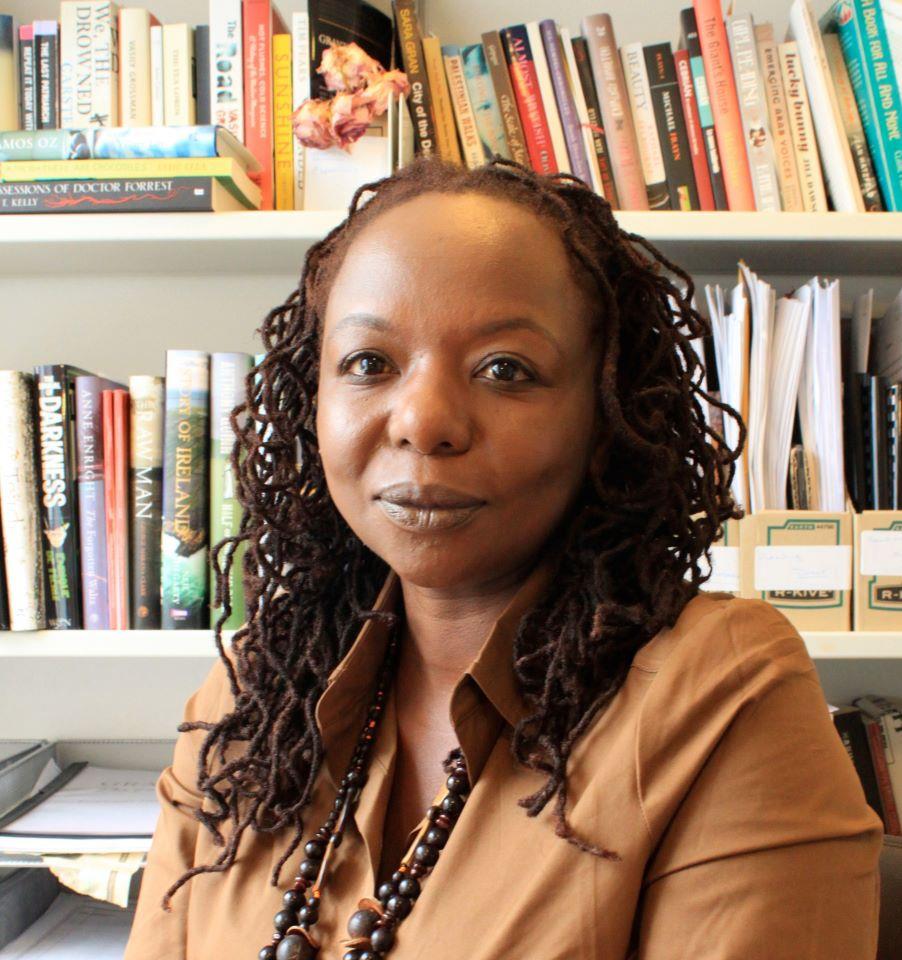
A Chronicle of Ghosts -- Reading Sofia Samatar
by Ellah Wakatama AllfreyThere are many horizons that must be visited, fruit that must be plucked, books read, and white pages in the scrolls of life to be inscribed with vivid sentences in a bold hand. -- Tayeb Salih, Season of Migration to the North
I. The Reader
When the invitation comes I am immediately uneasy about the request for a scholarly article. I am a reader and – perhaps somewhat defiantly – not an academic. While the theories and language of the academy inform and illuminate my understanding of literature, as a publisher, an editor, what I am most interested in …
-
0
read more

The Scope of This Project
by Sofia Samatar1. Notes Toward a Dream
These are notes toward a dream: the dream of a world Mennonite literature.
When I was asked to write an essay on postcolonial Mennonite writing, this dream occurred to me, or rather revived in me, welled up, for it is a dream I have dwelt with for some time.
To me, the phrase "postcolonial Mennonite writing" means work by Mennonite writers of the postcolony. It means work by writers from Asia, Africa, and Latin America. It means the literary production of those regions where the Mennonite church is largest. It means the writing of the …
-
0
read more

Sofia Samatar: Service for Culture
by Ervin BeckI treasure my copy of Sofia Samatar's A Stranger in Olondria, not only because it is a brilliant achievement by a former student, but especially because of her inscription on the title page: "For Ervin, who introduced me to Gabriel Garcia Marquez—a lifelong influence." She alludes to the International Literature class at Goshen College, which exposed her to the magic realism that blossomed into her achievement in fantasy fiction circles. She might also have cited Salman Rushdie's Midnight's Children, from that overstuffed course syllabus, which, as a Muslim successor to A Thousand and One Nights, seems even …
-
0
read more

From International to Postcolonial Literature at Goshen College
by Ervin BeckIn 1973 the English Department at Goshen College inaugurated a new course, International Literature. It may have been the first postcolonial literature course offered in the United States. It certainly was a pre-cursor that, as with the interest in "new literatures" or "emergent literatures," naturally morphed into a study of literature from the postcolonial theoretical and critical point of view.
Evidence for the significance of the course in American literary studies comes from the March 1974 issue of College English, which at that time had as its main mission English pedagogy in higher education. My essay, "International Literature for …
-
0
read more

Review of The Goshen College Guide to Studying and Serving Abroad
by Ann HostetlerThe Goshen College Guide to Studying and Serving Abroad: Essays on Intercultural Learning.Edited by Duane Stoltzfus.
Pinchpenny Press, 2017
$10.00, 128 pp.
ContactEnglish@goshen.eduto order
-
0
read more

Introduction to After Identity: Reflections
by Ann HostetlerIn May of 2013, a dozen scholars[1] of Mennonite literature from the United States and Canada gathered in University Park, Pennsylvania for a three-day symposium on After Identity: Mennonite Writing in North America. The title evokes the paradox of studying literature in an ethnic or cultural context even as it references the series of Mennonite/s Writing conferences held in the US and Canada every few years since 1990. The premise of this gathering was to address a new turn in cultural studies: how to approach literary production by specific cultural groups after the identity-preoccupied discussions of the late …
-
1
read more
Who's a Mennonite?
by Jan SchroederThe late writer David Rakoff once joked about Canadians' tendency to designate Canadian-born celebrities as Canadian. As Montréal-born Rakoff put it, "if you mention a famous Canadian to a Canadian without acknowledging it, there's a vague flicker over their eyes like the shadow of an angel's wing passing." The claim has many functions. It asserts a hidden knowledge of the celebrity's difference (primarily from US American celebrities), one that only other Canadians recognize. What that difference is, no one can precisely say, but the claim reserves the possibility that there just might be something unique about "Canadians" and when we …
-
0
read more

The Noise of Identity: Turning to Attentiveness and the Receptive Ear
by Margaret StefflerBoth Magdalene Redekop and Hildi Froese Tiessen refer to the work of Wai Chee Dimock in their contributions to After Identity: Mennonite Writing in North America. In the case of Redekop, this is to ground her chapter in Dimock's "theory of resonance," which argues that texts "touched" by "readers on different wavelengths" result in "unexpected vibrations in unexpected places" (Dimock, "Resonance" 1061 quoted in Redokop 200). For Tiessen, Dimock is evoked in order to heed warnings against "literary causality" derived from prescribing to "a territorial [or territorialized] jurisdiction" and "analytical domain[s] foreclosed by definition" (Dimock, Through 3 quoted in …
-
0
read more

Crochet
by Connie T. BraunA yarn: a strand of fibre.
In the winter evenings when the sunlight has faded, my mother crochets an afghan. Occasionally, she'll knit one, and as she knits and purls, the yarn flows as a river through a valley. But usually, she'll crochet. Her hands work the yarn, and row by row a mantle of colour and texture grows. From a grey-blue strand, she crochets a blanket of ocean. Then a rolling field in soft shades of sage, or wheat and rye. Night after night, my mother's hands work the fibre, back and forth, the yarn's migration over an expanse, …
-
1
read more

Three Poems from Unspoken: An Inheritance of Words
by Connie T. Braunfrom a memoir in poems dedicated to the author's mother, and to the memory of her grandmother. Reprinted with permission of the author.
-
0
read more

Reflections on Unspoken: An Inheritance of Words by Connie Braun
by Micah ToweryBefore selling her house and moving into assisted living, my grandmother bequeathed a green and white box of papers to my aunt. My aunt passed it to me. The idea was that, as a writer, I could do something meaningful with it.
I was a senior in college, and I sifted through the box. There were a few poignant letters, written to my grandmother after my grandfather’s suicide, but mostly the box contained a few poems my grandmother had written and obsessively recopied, some John Birch society publications, and a number of pocket-sized copies of the US Constitution.
The box …
-
0
read more

Appendix: 2016 Publications
by Ann HostetlerSelected Works from Mennonite Writers, 2016 (and thereabouts)
Roni Baerg,Mit den Wolken Fliegen: Bericht aus einem fernen Leben.Fiction/Memoir. (Zytglogge, 2016)
Stephen Beachy, Zeke Yoder vs. the Singularity. Fiction. (Amazon Create Space, 2017)
Ervin Beck, MennoFolk3. Nonfiction. (Journal of the Center for Mennonite Writing, October 2016)
David Bergen, Stranger. Fiction. (HarperCollins, 2016-Canada; USA – June 2017)
Judy Clemens, Tag, You're Dead. Fiction. (Poisoned Pen Press, 2016. Blackstone Audio, 2016)
Todd Davis, Winterkill. Poetry. (Michigan State UP, 2016)
Drew Hart,Trouble I've Seen: Changing the Way the Church Views Racism. Nonfiction. (Herald
Press, 2016) …
-
0
read more

Preface and Title Page
by Ann HostetlerThis month we proudly publish our first book in a single issue. MennoFolk 3 is the new collection of Mennonite folklore and stories by Ervin Beck, whose two previous volumes have been published by Herald Press. Ervin's readable, succinct style will entertain and provoke you with many Mennonite puns, tales, and riddles you've never heard before, and place others that may seem familiar. Don Swartzentruber's playful pop-Mennonite paintings create a lively conversation with the text. Delve in and enjoy! We hope to eventually make this book available in paper form through our Painted Glass press, which is under construction. - Ann Hostetler, co-editor
-
1
read more

Introduction: The Gordon Factor
by Ervin BeckMy good friend Gordon Yoder always has a new story to tell. Since he knows of my special interest in Mennonite and Amish stories, he takes the initiative in telling me his latest one. Invariably, he begins: "There was this Mennonite woman . . ." or "There was this Amish man . . ."
Sometimes his stories make it into my collection. But, lately, more often they do not because their contents have little or nothing at all to do with recognizably Mennonite or Amish experience. So Gordon has becomes my best critic, since the message he implicitly conveys is …
-
0
read more

Defining Mennonite: Puns and Riddles
by Ervin BeckThe quest for authentic Mennonite narratives will actually begin with names, puns and riddle-jokes. Most riddle jokes do embody highly condensed narratives. But my thesis is that these elementary, gnomic forms of folklore are inherently more fixed—and least subject to alterations, variants and The Gordon Factor—than are other kinds of folklore. Consequently, they constitute more distinctively Mennonite ethnic lore than do most narratives.
By common consent, puns are the lowest form of humor. We groan first, and then laugh. Puns are so easy to create—usually spontaneously—that they enter everyday conversation as interruptive non sequiturs. We are subject to the good …
-
0
read more

Defining Mennonite: Narratives
by Ervin BeckSome narratives serve as explicit or implicit definitions of what is meant by the designation Mennonite, whether in regard to cultural traits or religious commitment.
The most obvious kind of story that does this is the narrative that places a Mennonite, or Mennonites, in the punch line as the final ethnic group in a series of three or four—as with the Polish-Jewish-Black-Mennonite "book titles" riddle that opens Chapter 1. The Gordon Factor is strong in such stories, which usually communicate only a harsh, generic put-down of the final group in the series. Since they are easily transferred, by substitution, to …
-
0
read more

More Trickster Tales
by Ervin BeckThe "more" in the title of this chapter alludes to Chapter 4 in my first MennoFolk book, which studies a tradition of Mennonite trickster tales that reaches all the way back to Menno Simons (1496-1559), after whom the denomination is named. The legend about clever Menno in the stagecoach, eluding authorities by means of deceptive speech, embodies what in Dutch culture is known as "The Mennonite Lie." The trickster allows his opponent to misunderstand a speech or a situation and benefits from that situation without revealing the truth of it. The pursued Mennonite escapes danger without literally telling a lie, …
-
0
read more

Amish Slurs
by Ervin BeckMennonites have an ambivalent attitude toward the Amish, who are the near relatives of Swiss-Alsatian Mennonites through shared history, ethnicity and religious values. On the one hand, Mennonites admire the way the Amish remain steadfast to many Anabaptist principles that Mennonites themselves have compromised over the past decades. On the other hand, Mennonites want to separate themselves from these "backward" people with whom they are too often confused by the rest of the world In that ambivalence, Mennonites resemble American culture at large, as interpreted by David Weaver-Zercher in his book The Amish in the American Imagination (Johns Hopkins 2001), …
-
0
read more

The Amish Joke Back
by Ervin BeckIdeally, in a chapter devoted to stories that show Amish people in a positive light, or gaining the upper hand in a debate, all of the examples should come from the Amish themselves in order to show how they define themselves, positively, through traditional narratives. Unfortunately, that is not the case. As I mentioned before, that would require recording their stories as told in their native language, Pennsylvania German. Although I have Amish friends, I do not speak their German dialect. Consequently, I cannot "pick up" stories from natural conversational flow and it would be awkward, if not impossible, to …
-
0
read more

Dialect Stories
by Ervin BeckThe Alsatian German dialect that developed in the United States as Pennsylvania-Dutch/German remains the native language of Old Order Amish groups in the U.S. and Canada. Children learn to speak it as their first language and it remains the language spoken at home, although a version of High, or Standard, German is used in Amish church services and English is used in public discourse and writing. It is also the native language of Old Order Mennonites, although other Mennonites gave up German for English, beginning around the time of World War 1. Mennonites may have a few verses of German …
-
0
read more

Bawdy Tales
by Ervin BeckYes, Mennonites, being human, are also fascinated by taboo subjects—whether profane, obscene or merely vulgar. Chapter 1 presented a number of bawdy riddle-jokes, including the very popular ones about "two men a night" and intercourse standing up, and a few shady tales also appear in other chapters. I am surprised that there are not more such stories in my collection.
Of course, I was not expecting audiences of Mennonites to contribute bawdy stories in public settings. In fact, on occasion I was corrected by audience members, following the program, for telling a story that was too naughty for the setting. …
-
0
read more

Personal Legends: Formation
by Ervin BeckA personal legend is a story attached to an individual and believed to be true. The more prominent the person, the more stories are likely to be told about him or her. For instance, in the United States, more legends are told about Abraham Lincoln than about anyone else.
Because the person named in the legend is historical, the hearer initially is disposed to believe in the historical truth of the story. But the relationship of personal legend to personal history is a complex, and often dubious one, thanks to the tendencies in oral storytelling by which personal legends are …
-
0
read more

Personal Legends: George Brunk, Sr.
by Ervin BeckGeorge R. Brunk, Sr. (1871-1938) was a charismatic leader of a segment of the Mennonite Church that objected to the corroding influence of "modernism" and rival liberal theologies on traditional Mennonite beliefs and practices. Coming mainly from the conservative Virginia Conference, centered on Eastern Mennonite College (now University) in Harrisonburg, Virginia, they waged a vigorous campaign to restore the church, by presenting public programs throughout American Mennonite communities and by sponsoring the periodical Sword and Trumpet (1927-1938),which was overtly controversialist.
When George R. Brunk, Sr., died in 1938, Ernest G. Gehman (1901-1988) assembled an issue devoted to the memory of …
-
0
read more

More Personal Legends
by Ervin BeckAnabaptist groups, at their best, hold to the equality of all human beings. Like the Quakers, they tip their hats to no one—or to everyone. They are anti-hierarchical, suspicious of those who would lord it over others. In their fellowships of believers, they cultivate congregationalism and honor the voice of all.
In Amish communities, that ideal is expressed through uniform costume, as well as in cemeteries, where the small gravestones are of equal size, with barely enough room for the deceased's name and life dates. In Mennonite churches, the ideal is expressed by decisions arrived at by consensus, by studies …
-
0
read more

Sources
by Ervin BeckBeck, Ervin. MennoFolk: Mennonite & Amish Folk Traditions. Scottdale, PA: Herald Press, 2004.
__________. MennoFolk2: A Sampler of Mennonite & Amish Folklore. Scottdale, PA: Herald Press, 2005.
______.“Menno’s Children: Tricksters All.” Goshen College Bulletin (May 1983): 6-7.
______. “Stories Mennonites Tell.” Gospel Herald (31 Jan. 1984): 68-71.
Braun, Orlando. “That Mennonite Joke.” Docu-Comedy (film). Prairie Boy Productions 2016.
Brednich, Rolf. Mennonite Folklife and Folklore. Ottawa: National Museums of Canada, 1977.
Chornoboy, Eleanor Hildebrand. Faspa with Joy: A Snack of Family Stories Told by Family and Guests. [Canada: The author], 2007.
Gates, Gary. How to Speak Dutchified English. Intercourse, PA: Good …
-
0
read more

Introduction
by Jessica BaldanziComics and graphic novels have long had to battle for respect and legitimacy, at least in the U.S. Whenever the genre pops up in the news, reporters still register surprise in headlines that comics are "not just for kids anymore" and "not just about men in tights."
Yet it was almost twenty-five years ago, in 1992, that Art Spiegelman's Maus became the first graphic novel to win the Pulitzer Prize. While far from the first serious story to be told in this medium, it was the first time that the literary establishment in the U.S. acknowledged what the genre could …
-
0
read more
Holy Comics!
by Sabrina JonesAdapting the gospels for a graphic novel called Radical Jesus was a dream project for me. In doing so, I entered a field where many had gone before, but few of whom I admired.
After a dozen years in a Quaker bible study group, and about twice as long writing and illustrating comics on issues of social justice, I was enchanted at the prospect of merging these previously disparate sides of my life. Editor Paul Buhle, a veteran activist and historian of American radicalism, had led me to create comics on visionaries like John Reed, Big Bill Haywood, Mabel Dodge, …
-
0
read more

A Simple Ordinary Man
by Gary Dumm and Scott MacGregorLet's get something straight right now at the beginning of the story; Benjamin Braxton Beltran was NOT a simple, ordinary man. He was, in fact, a very complex and extraordinary man. It's ironic that the city of Cleveland, Ohio—a town forever flirting with true greatness—had failed so badly to recognize the greatest Clevelander it ever had, when it had him.
The yin-yang of Cleveland centers around water and always will. It's not just the quality of it; it's what living near the lake does to Clevelanders. Water is an omnipresent force. We are mainly made of it and so the …
-
0
read more

A Simple Ordinary Man - Commentary
by Scott MacGregorSeventeen thousand years ago, in what is now southwestern France, a hunter/gatherer (we’ll call him Thak), had run ahead of his hunting partner anxious to be first with good news from the hunt. Thak had many stories to tell, but was unable to put his observations into words since language, as we know it today, had not been invented yet. It was a lucky thing for everyone that Thak was gifted with a talent that set himself apart from the rest of his Paleolithic clan. Thak was able to draw pictures.
By deriving oily pigments from minerals and plants and …
-
0
read more
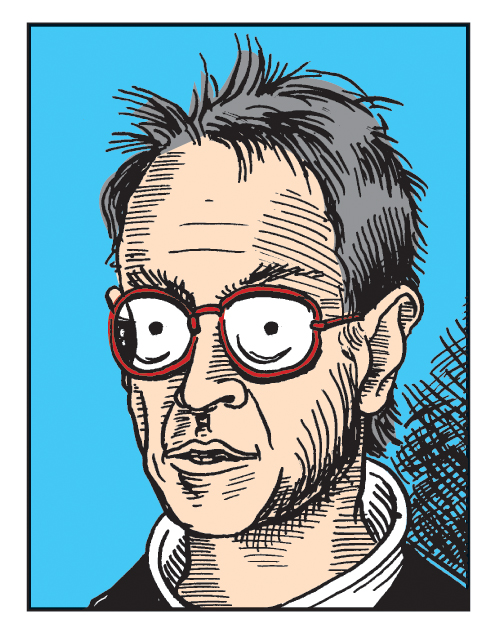
Radical Jesus Commentary
by Paul BuhleWhat makes Nick Thorkelson’s work, the final section of Radical Jesus, so powerful visually as well as narratively?
The unique quality of the final section is its basis in oral history. As a founder of the Oral History of the American Left at New York University in 1975, and as an oral history fieldworker and teacher from labor history to the story of the Hollywood Blacklistees, I learned to trust (and encourage my students to trust) "the story." Interviews with ordinary or extraordinary people possess an "orality" unique to themselves, their own life understanding. This is not …
-
0
read more
Fantastic Theological Anthropology: Milton, Gaiman, and the Anabaptists
by Jeremy Garber"Others apart sat on a hill retired, / In thoughts more elevate, and reasoned high / Of Providence, Foreknowledge, Will and Fate-- / Fixed fate, free will, foreknowledge absolute-- / And found no end, in wandering mazes lost." – Milton,Paradise Lost,2: 557-561
Introduction
Anyone who has attended a theological symposium finds the image of devils in Hell debating arcane points of theology unfortunately resonant. The two texts under consideration in this essay reflect – and in Milton's case, have shaped – Western conceptions of what humans are, how they think, love and create, and whether there is an …
-
0
read more
Cloning Enchantment: Jesuses After Climate Change
by Elizabeth CoodyWhen I found one comic with a Jesus that scientists had cloned from relics, I chuckled at its clever premise. When I found the third Jesus Clone comic, I realized that something had to be going on. As a biblical scholar with professional interests in comics, I had come upon one of those ideas that will not let me go.[1]
I find that Jesus Clone reflects an anxiety about human control and biblical promises in a underexplored corner of U.S. popular culture. There are other thinkers who linger over questions about the worth of popular culture and comics in addressing …
-
0
read more

Martin Luther King and the Montgomery Story
by Anne Berry and Regina Shands Stoltzfus**Transcript has been edited for print**
Link to comic:http://www.crmvet.org/docs/ms_for_comic.pdf
Link to podcast:https://drive.google.com/file/d/0B1ewKUsxqFV5cF9EWmRaWVBuNnM/view?usp=sharing
Jessica
Hello. Welcome. My name is Jessica Baldanzi and I’m here for a special issue on graphic novels and comics for the Journal for the Center of Mennonite Writing. I am an associate professor of English here at Goshen College and I’m here with two awesome guests to talk about the comic book Martin Luther King and the Montgomery Story. Would you like to introduce yourselves?
Regina
Hi, I’m Regina Shands Stoltzfus. I also teach at Goshen College in the Peace Justice Conflict Studies department, …
-
0
read more

When Life Hands You Lemons, Check For Lymes - Commentary
by Phil GerigscottI picked up comic-making in elementary school, beginning with a Calvin and Hobbes-inspired "Mikey" series, Captain Underpants fan fiction, and a graphic novel series based on my pet anole lizards. By high school, I was still drawing comics, but they mostly took the form of inside jokes drawn on the backsides of homework assignments.
While studying art education at Goshen College, however, I began submitting weekly comics under the name "B-fast Gigz" to the school’s paper. In 2014, I self-published my first two comic books, "B-fast Gigz: An Eclectic Collection" and "Dumbsters," for my senior art show. The summer …
-
0
read more

When Life Hands You Lemons, Check For Lymes
by Phil GerigscottThis occurred while camping on North Manitou Island off the coast of Michigan. I later learned that burning ticks causes them to vomit their bacteria into the blood stream. I also learned a little too late that North Manitou has explosive Lyme rates. Hindsight, gotta love it.
As depicted in the book, I actually went to the doctor immediately after I was bitten by the tick. He gave me a precautionary pill and sent me on my way. Because of this blind trust, when my knees started bothering …
-
0
read more
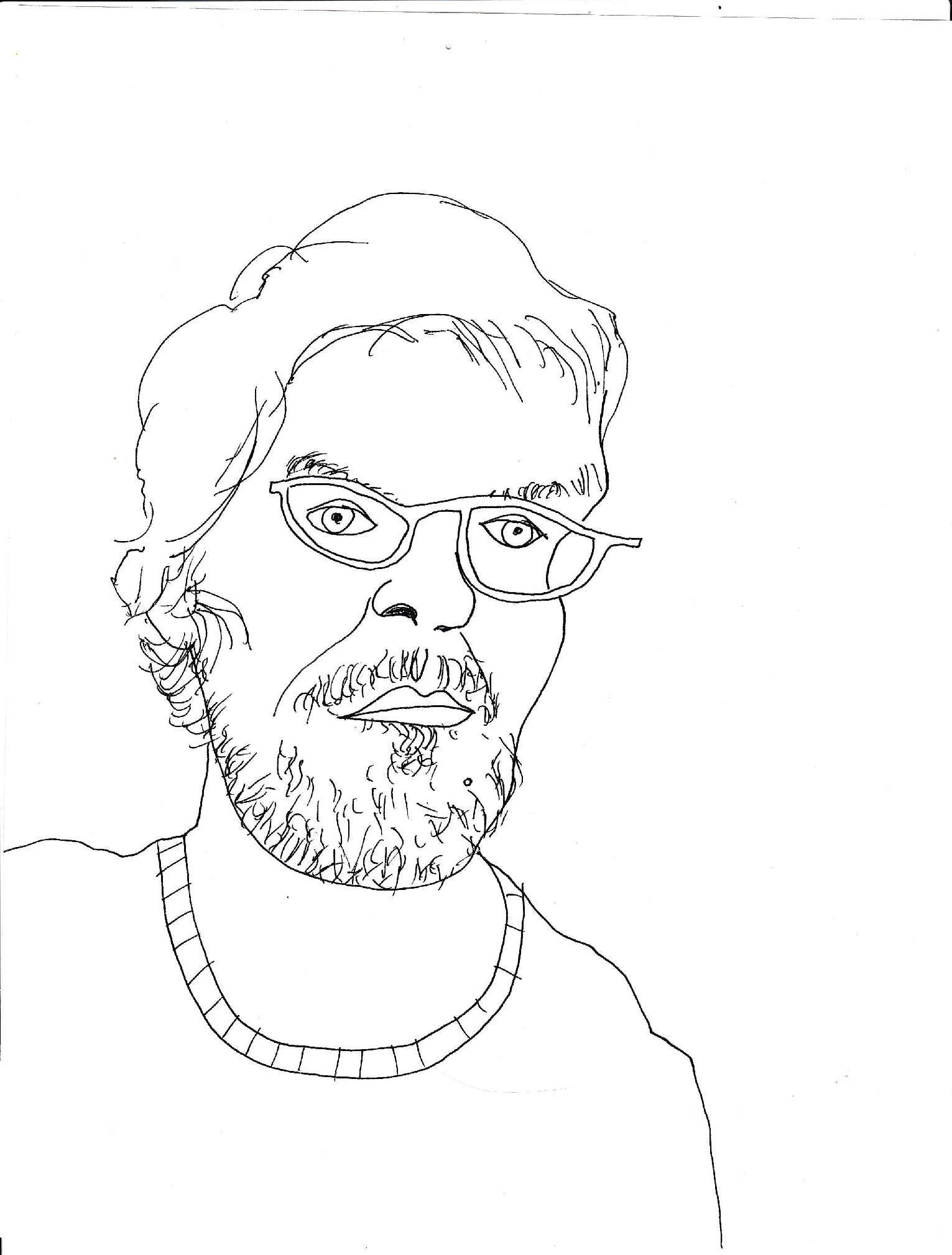
Sketches
by Jim Strouse -
0
read more

A Tribute to Joel Kauffman
by Ann HostetlerA survey of Mennonite cartoonists would not be complete without a tribute to Joel Kauffmann, creator of Pontius’ Puddle. The first cartoonist whose work appeared regularly in Mennonite publications, Kauffmann was a pioneer in introducing humor into religious magazines.
When Kauffmann announced in early 2015 that he would no longer write new cartoons for the series, Pontius’ Puddle had had a more than 30-year run in over 200 periodicals. The cartoons are still available from www.pontius.com, a site run by his son Justin Kauffmann.
Growing up in a Mennonite minister’s family in Hopedale, Illinois, Kauffmann got his start by …
-
0
read more

Introduction to Student and Former Student Works
by Mary RothThe next section profiles the work of four current and former students of English 235: The Graphic Novel, a class taught by Jessica Baldanzi at Goshen College. I also completed the class—six years ago as a shy first-year—and as I worked on this issue with Jessica, I was delighted to revisit some of the concepts and texts that we had covered. I remember the wonder I felt in reading Alison Bechdel's Fun Home for the first time; the important conversations about religious and cultural representation that emerged from Art Spiegelman's Maus; and the delight in creating my own …
-
0
read more

All Things Grow
by Mary Roth -
0
read more
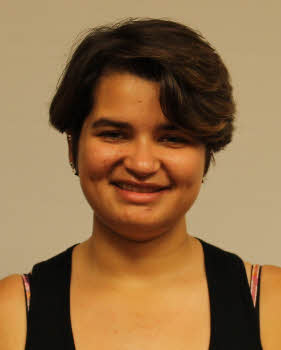
A Little About Me
by Samantha Horsch -
0
read more

A Little About Me - Commentary
by Samantha HorschMy project shows a simple, yet unique style of art that borrows some elements of Japanese comics, or manga. Lack of gutter space, or spaces between panels, is one of the biggest influences I’ve picked up from reading manga. More American-style panels and gutters feel to me like a lot of boxed in scenes.
I also borrowed some iconic symbols from manga. American comics readers might be used to a light bulb over a character’s head, for example, to show a good idea, while manga readers have a whole different set of symbols that might not make sense to …
-
0
read more

Alone
by Amanda Vanderzee -
0
read more

Alone - Commentary
by Amanda VanderzeeAs a kid up I read Archie and Betty & Veronica comics on the floor in my bathroom, as a teenager I sat in the bookstore for hours reading Japanese comic books called manga,and as an adult I have moved onto reading comic books such as Papergirls and The Amazing Spider-Man, as well as graphic novels like Solanin and My Friend Dahmer. I’ve always loved to read, and I’ve been fortunate to have parents who both had the means to provide me with plenty of reading material, and who never tried to dictate what I read, whether …
-
0
read more

The Accident
by Grace Weaver -
0
read more

The Accident - Commentary
by Grace WeaverAlthough comics aren’t just for kids, they’re an excellent way to tell a grown-up story from a child’s perspective. My short graphic memoir, "The Accident," shows and tells the story of how I lost three of my front teeth as a four-year-old—a traumatic event of which I remember very little. I’ve pieced together enough snapshot memories and retellings from my family to create a cohesive narrative, although I have to admit that a few details are invented.
This story, told from the perspective of a child, fits so well into the graphic novel and comics genre because of the very …
-
0
read more
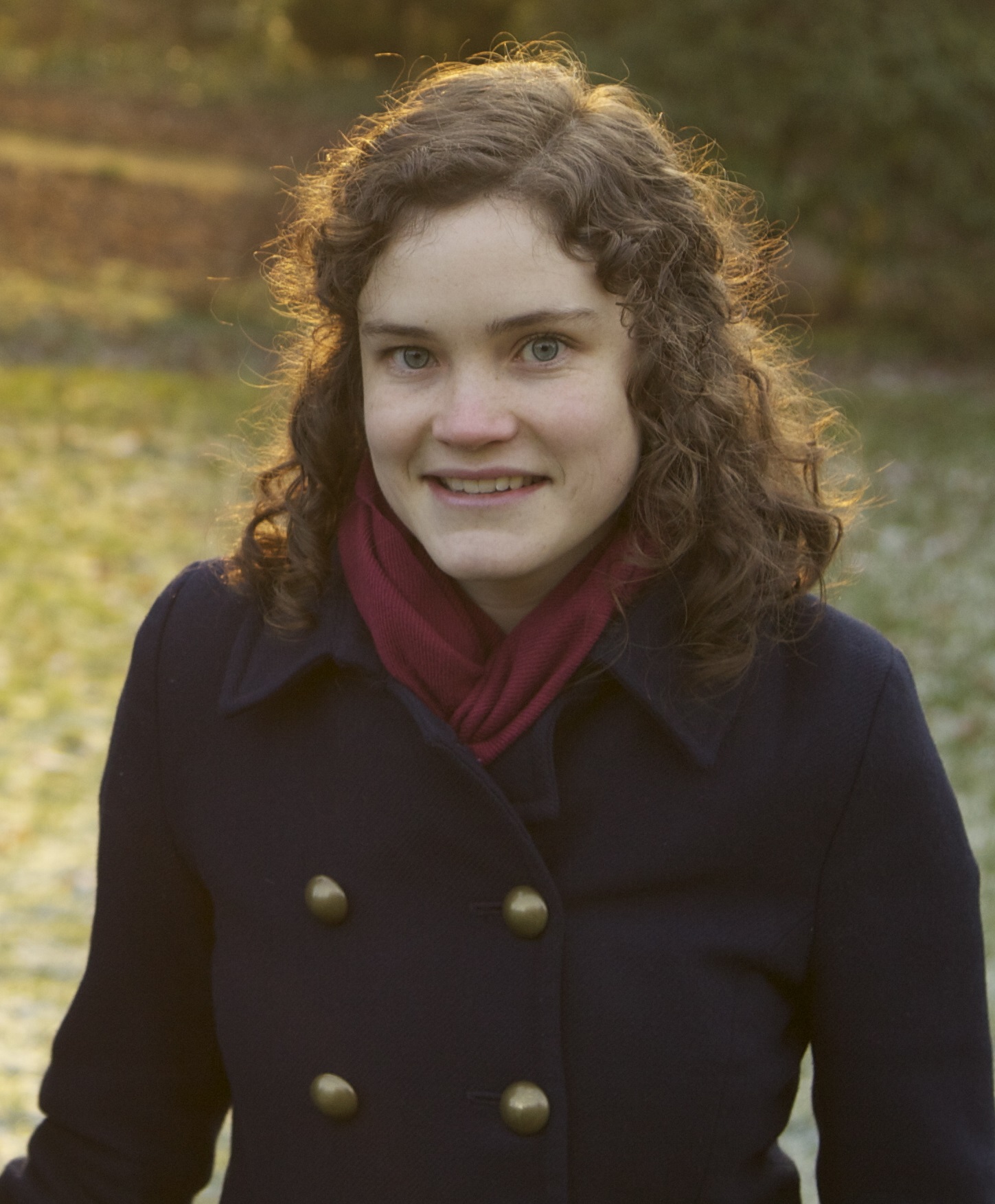
36/19
by Sarah Rich -
0
read more

36/19 - Commentary
by Sarah RichWhether or not they know it, all Americans are characters in the story of July 19, 1979—and of what happened in Nicaragua in the decade that followed.
Unfortunately, in this particular story we feature more as villains than heroes, which is probably why this narrative has managed to stay on the margins of our consciousness. I wasn't even born yet in 1979, and I had never heard this story until I signed up to volunteer as an English teacher in a rural Nicaraguan village for two years. So it was a bit embarrassing when my new Nicaraguan friends had to …
-
0
read more

CrossRoads
by Al SchnuppTHE FAMILY
Tobias, a playwright, thirty-seven years old
Helen, wife of Tobias, thirty-three
Demetri, son of Tobias and Helen, fifteen
Melina, daughter of Tobias and Helen, thirteen
(The family grows older throughout the play)
THE WORLD
Alpha, male actor who plays multiple roles
Psi, male actor, who plays multiple roles
Omega, female actor, who plays multiple roles
(Alpha Psi Omega is the National Honorary Theatre Society)
SCENE ONE – THE ROAD FROM ATHENS – GREECE - CIRCA 458 BC
(ALPHA is Thespis, the Father of Drama. PSI is a Judge at the Theatre Festival of Dionysus. OMEGA is …
-
0
read more

Old Nettie and Little Bern
by Vern ThiessenACTOR 2: Do you remember?
ACTOR 1: Do I remember?
ACTOR 3: Do you remember a time – when there were no phones?
ACTOR 1: No phones?
ACTOR 2: No cars.
ACTOR 1: No cars?
ACTOR 3: No light bulbs?
ACTOR 1: No light bulbs?
ACTOR 2: When people called each other like this:
They show:
ACTOR 3: Hello!
ACTOR 2: Hello!
ACTOR 1: Hello!
ACTOR 2: And got around the town like this:
They show:
ACTOR 3: Hello!
ACTOR 2: Hello!
ACTOR 1: Hello!
ACTOR 2: And at night…
ACTOR 3: When it was dark…
ACTOR 2: So dark, …
-
0
read more

Paradise Café
by Diana ZimmermanThe Place
Paradise is a beach town in Costa Rica. The country is not specifically mentioned, but the Spanish is Costa Rican Spanish.The Paradise Café, owned and run by an American couple, caters to tourists, serving American breakfasts, fruit beverages and coffee. It has become a gathering place where Paradise’s residents congregate.The Time
In the outside world, the year is 1999 but in Paradise technology is still being born. Paradise has electricity and running water, but very few telephones (due to the lack of infrastructure) and no cell service. There is internet access available in cities, but none … -
0
read more

Living Creatively
by James C. Juhnke(The Setting is the home office of Dr. E. G. Kaufman, with desk, swivel chair, file cabinet, bookcase, and hall tree. Books, files, and papers are strewn everywhere. Telephone and typewriter on the desk.
(The telephone rings four or five times. Kaufman comes in hurriedly, wearing hat and sweater. He answers the telephone, reaching across to put his hat on the rack.]
Hello! . . . Yes, this is Grandpa. . . . No I haven't forgotten. Four o'clock. (Looks at wrist watch.) Two hours from now. Do you have a tape recorder or do you want to use mine? …
-
0
read more

The Blowing and the Bending, 1975
by James C. JuhnkeMy father taught me drama performance as a means of celebrating family and community history. In 1949 Dad was the teacher of the rural one-room Pleasant Ridge Grade School in southern McPherson County, Kansas. I was eleven years old, the only pupil in fifth grade. For the Christmas PTA program that year, Dad wrote and produced a ten-scene drama, “From Katazufka to Kansas.” It was the story of the migration of our Mennonite people from Volhynia to Kansas in 1874, seventy-five years earlier. Dad assigned pupils to play the roles of their ancestors. The final scene featured a Christmas crèche …
-
0
read more

This Magic Moment
by Lauren Friesen[Elsa and Julia are in sixth grade, coming home from school. Resting under the large oak tree in their front yard. Both have backpacks.]
Elsa: I’m so hungry…starved…
Julia: I’ve got half a sandwich—
Elsa: Let me have it!
Julia: I’ll trade you.
Elsa: For what?
Julia: What do you have?
Julia: The ruby ring.
Elsa: Not that. My toy car collection?
Julia: No, no, don’t want that.
Elsa: My baseball pictures?
Julia: You have baseball pictures?
Elsa: Shhhh. I know, I know, I’m a girl—
Julia: You are going to get jammed about that.
Elsa: It’s a secret, so …
-
1
read more

Mennonite Literature at Goshen College
by Ervin BeckIn the fall semester of 1995, the first course in the U.S. devoted to the college level study of Mennonite Literature was taught at Elizabethtown College in Pennsylvania by Anna Kreider Juhnke, professor of English at Bethel College, North Newton, Kansas, while she and her husband James were fellows at the Young Center for Anabaptist and Pietist Studies.
Anna's course, emerging during the late 20th century production of excellent literature by North American Mennonite writers, included these major works in the syllabus: Merle Good's film Hazel's People, Julia Kasdorf's Sleeping Preacher, Sara Stambaugh's I Hear the Reaper's Song, …
-
0
read more

Thirty Years of Mennonite Literature: How a Modest Course Became Something Else
by Hildi Froese TiessenYou never know, someone told me once upon a time, with urgency, what sorts of things might spin off from almost anything you do, anyone you know. Well, my experience with Mennonite writing and Mennonite writers might be a case in point. Mind you, I’m not sure my earliest encounters with Rudy Wiebe in 1962, when he was a Young People’s sponsor in a Winnipeg Mennonite Brethren Church and I was, briefly, one of his teenage charges, led to anything in particular. Nevertheless, I recognize in retrospect that our meeting then might have been a kind of starting point to …
-
0
read more
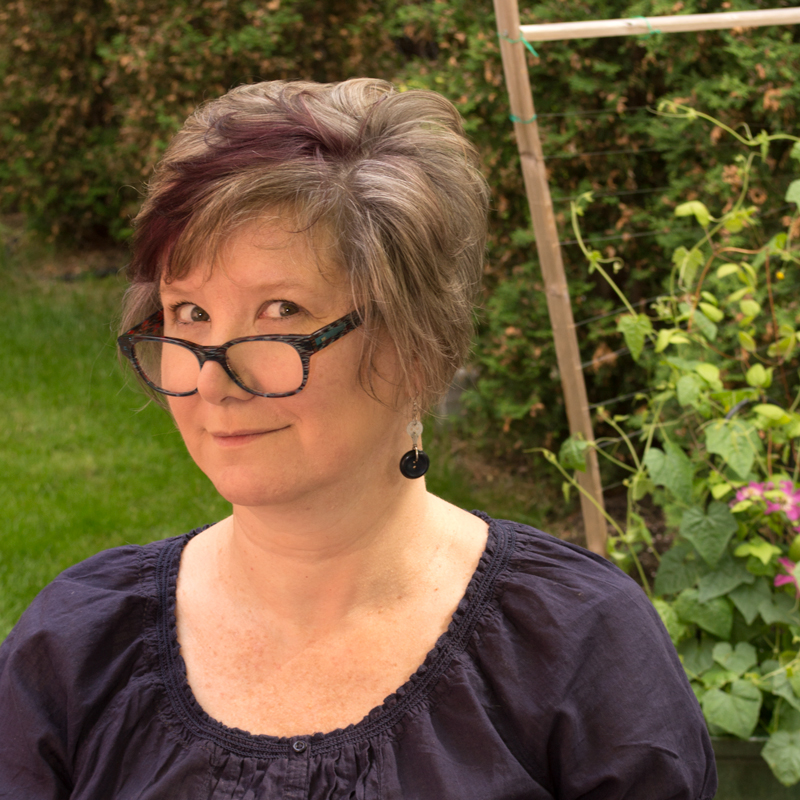
What are you doing here?: Mennonite Literature and de Englische Professor
by Tanis MacDonaldWhenever I teach Canadian literature, my first task is to find out what students expect Canadian literature to be, and my experience suggests that the students tend to be fairly conservative in their expectations, partly because their previous educational experiences have led them in that direction. By "conservative" in this case, I mean that students generally expect to read "books that define the nation" circa 1975: realist novels from which I will magically draw out a definition of "Canadian identity" for them. Like many Canadian literature specialists, I'm not interested in doing that, mostly because I think students are going …
-
0
read more

Teaching Mennonite Literature as Witness
by Grace Kehler"The greatest benefit we owe to the artist, whether painter, poet, or novelist, is the extension of our sympathies. Appeals founded on generalizations and statistics require a sympathy ready-made, a moral sentiment already in activity; but a picture of human life such as a great artist can give, surprises even the trivial and the selfish into that attention to what is apart from themselves, which may be called the raw material of moral sentiment." (George Eliot, "The Natural History of German Life" 263)
"Stories animate human life; that is their work. Stories work with people, for people, and always stories …
-
0
read more

American Literary Regionalism and the Authenticity of Place:
by Joshua R. BrownNestled in the ridge and valley landscape of northern Appalachia is the tiny Central Pennsylvania town of Belleville. Heading west out of Belleville on Main Street, just before the brick Locust Grove Mennonite Church, Wills Road meanders to the left, and, rounding a corner alongside the Kishacoquillas Creek, a cemetery comes into view. The weathered stones record the history of the Kishacoquillas “Big” Valley–Bylers, Hartzlers, Hostetlers, Kanagys, and Yoders are among the dead. One of those weathered stones records the final resting place of Rosana, Wife of Christian Z. Yoder, 1837 - 1895. She is a celebrity, known throughout the …
-
2
read more

Catholics, Mennonites, and Women: Julia Spicher Kasdorf and the Dreaded Humanities Survey
by Robert J. Meyer-LeeA funny thing happened on the way to the delivery of a large (65-student) interdisciplinary general education humanities survey. Everything was perhaps as expected when the two faculty members assigned to co-teach the course—one from music, one from English—determined that the unifying theme (for a course that covered centuries of artistic expression in both disciplines) would be the relation of literature and music to the sacred. They were, after all, teaching at Goshen College. And, not surprisingly, these two white male academics (or, more precisely, one white male Catholic pianist and one mixed-race-but-passes-for-white-male ex-Mennonite Quaker medievalist) decided to include a …
-
0
read more

Teaching Mennonite Literature in Conversation with Theology
by Paul DoerksenFor the last number of years, I have offered an annual course relating to the intersection of theology and literature at Canadian Mennonite University. The course is offered at the third year undergraduate level, and can be taken as either theology or English credit. We read both formal theological material and literature, including some poetry, but mostly novels. The relationship between literature and theology is broadly conceived: the impetus is not to use literature to illustratetheology, or to use theology to 'discipline' literature, but rather to bring these kinds of sources intoconversation with each other.[1] Put another way, what …
-
2
read more

Learning, Teaching and Creating Mennonite Literature
by Ann HostetlerShortly after I discovered that poetry by Mennonite writers actually existed, and had begun work on creating the anthology of those I couldn’t find, I was fortunate enough to be hired at Goshen College in the English Department. I came to Mennonite literature as a scholar of African American and other multicultural American literatures as well as a closet poet; it was Ervin Beck, the chair of Goshen College’s English Department, who first brought me into the fold of Mennonite literary studies through trial by fire—inviting me to share the stage with Jeff Gundy and Hildi Froese Tiessen at a …
-
0
read more
Four Poems inspired by Mennonite lives
by Karen YoderKaren Yoder is a teacher and a poet. Her poems have appeared previously in the Journal of the Center for Mennonite Writing.
-
0
read more

Introduction
by Ervin BeckA sea change in Mennonite self-definition occurred early in the 1980s.
Without abandoning their commitment to nonviolence and service, The Mennonite Church, meeting in general assembly at Bethlehem, Pennsylvania, adopted the statement “Justice and the Christian Witness,” which was refined and printed following the general assembly at Ames, Iowa, in 1985.
The statement expanded on H. S. Bender’s emphasis on peace in his “The Anabaptist Vision,” which had held sway in the church since 1943. Implementation of the statement led to the current mantra of “peace and justice” as the essential commitment of Mennonite Church USA today.
This issue of …
-
0
read more

1942 - Journal from Occupied France
by Mary Jean GundenIn 2013 Lois Gunden Clemens (1915-2005) was recognized posthumously as “Righteous among the Nations” by Yad Vashem in Israel. She becomes one of only four Americans, among 24,800 people worldwide, to be so honored. Her niece, Mary Jean Gunden, will accept the honor on her aunt’s behalf at a ceremony in Washington, D.C., in the coming months.
In 1942, as a volunteer worker at the children’s convalescent home Villa St. Christophe in Canet-en-Roussillon, France, Lois managed to save an unknown number of Jewish children from deportation to Auschwitz. Six of them are named in the journal entries …
-
0
read more
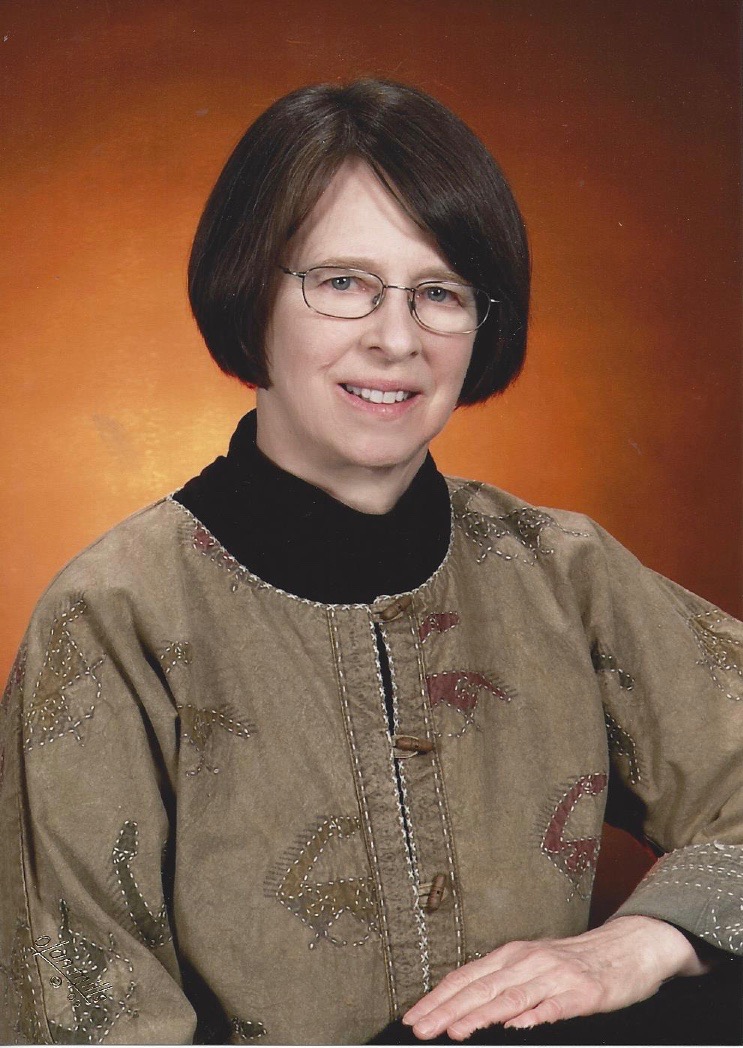
1964 - Letter from St. Augustine Jail
by Myrna BurkholderJ. Lawrence Burkholder was on the faculty at Harvard Divinity School when in 1964 he joined Mary (Mrs. Malcolm) Peabody in an attempt to integrate the diner at the Ponce De Leon Motel in St. Augustine, Florida. Mrs. Peabody was the wife of a retired Episcopalian bishop and mother of Endicott Peabody, governor of Massachusetts. Mennonites became aware of this act of civil disobedience because Burkholder’s photo was on the front page of many newspapers, including the Philadelphia Inquirer. The photo captured him and Mrs. Peabody seated in a county-owned limousine on their way …
-
0
read more
1965 - Memoir From Selma
by Vic StoltzfusMarch 7, 1965, was the Bloody Sunday march in Selma, Alabama.
March 9 was the march that stopped short of the bridge.
March 21 was the 21-mile march from Selma to Montgomery, the state capital.
I joined the march to Montgomery
Fifty years ago I was 31, a part-time Mennonite pastor and a full-time instructor at Youngstown State University in Ohio.
Mennonites in 1965 did not have a tradition of protesting and marching. My congregation respected my conscience and did not oppose my unexpected behavior in going to Selma. The Sunday morning I was gone, no one said anything to …
-
0
read more

Reading to the Children of Camden
by Beth JohnsonThe city of Camden, New Jersey, is a tragedy, one I’d managed not to think about for the first 55 of my 58 years. Living in a comfortable suburb west of Philadelphia, I knew Camden only as a place to be avoided. When drivers cross the Ben Franklin Bridge into Camden they don’t pay a toll, but they pay $5 to reverse the trip. It’s an apt metaphor. Camden is a place you’re willing to pay to leave.
Once the home of Campbell’s Soups and RCA Victor, it employed more than 36,000 workers in its shipyards during World War II. …
-
0
read more

For Her Daughter, a Different World
by Beth JohnsonIn October 2014, a friend in California noticed an article in the Los Angeles Times she thought I’d be interested in. Titled “Boyle Heights Girl Aims For More, With Help of Soccer,” it focused on a talented young athlete who commutes almost five hours from her gritty Mexican-American neighborhood in order to play with an elite team in Pasadena.
I was looking for subjects for an upcoming Townsend Press book to be titled The Power of Determination, and young Luisa sounded like a good candidate. Luisa’s soccer coach was easily found online, so I …
-
0
read more

Joe Davis: A Redemption Story
by Beth JohnsonIn 1994, I came across an article in a Philadelphia newspaper about Joe Davis, a recovering drug addict, petty criminal, and paraplegic who was pursuing an associate’s degree at a local community college. The story mentioned that Joe occasionally visited schools to talk to at-risk young people about his experience. As I was pulling together profiles for the Townsend Press book Everyday Heroes, I thought Joe might make an interesting story. I arranged to attend one of his presentations, meeting him at a very scary, end-of-the-road disciplinary school in a bad part of town.
It is not …
-
1
read more

A Good Friday Reflection on Texas Hold'Em as Lenten Practice
by Tim NafzigerA poem in response to Ann of Goshen, years later.
Hear the instruction of your mother: hate everything that is loved
by the world and your sensuality.
-- Maeyken Wens, Mennonite martyr, in her last letter to her son before being
burned at the stake in Antwerp on October 6, 1573.Ann of Goshen, you warned me about the flames, internalized.
You saw I was one of Those Who Would Save the World.
“Tim,” you said, “you worry about losing it,
but you don't realize you will spend your whole life trying to shake it.”I.
For Dale, Bob and … -
0
read more

For Those Who Would Save the World
by Ann HostetlerA poem for Tim and other activist Goshen College students.
Give up perfection for just one day.
Feel yourself a creature of flesh and bone,
walk around in the cold, wind chafing
your face, joints jarring as your worn
soles pound concrete.Keep walking till you face
your deepest failure—not
with clenched fists, not blinded
by shame, but with a detached
curiosity that opens to
compassion. Fingerthe glazed wound tenderly
as you would caress the gash
in Christ’s side. You see
one doesn’t have to travel farto know suffering, though you
may carry it to the ends of … -
0
read more

Introduction
by Ann HostetlerThe work in this issue represents a sampling of work from creative writers present at the Mennonite/s Writing VII conference in Fresno, California, held March 12-15, 2015 at Fresno Pacific University.
-
0
read more

Tribute to Jean Janzen and Rudy Wiebe
by Julia Spicher KasdorfJean Janzen and Rudy Wiebe each read from recently published books at the conference. Julia Spicher Kasdorf's introduction to their plenary reading honors their productivity and demonstrates the power of a literary legacy.
-
1
read more

Interview with Greg Bechtel
by Sofia SamatarSofia Samatar, who read from a memoir in progress at the Fresno Conference, raises the question, "What is a Mennonite Writer?" with Canadian fiction writer Greg Bechtel.
-
1
read more

Two Poems
by Abigail Carl-KlassenReflections on Old Colony Mennonites in Mexico.
-
0
read more

Tarred
by Jessica PennerExcerpt from Shaken in the Water, a novel
-
0
read more

Ada
by Kathleen Weaver KurtzA Reflection on My Mother-In-Law
-
0
read more

Poems with Sonograms
by Joseph GaschoWord and image from a medical perspective
-
1
read more
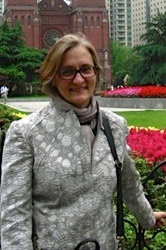
Monkey Business
by Laura HostetlerExcerpt from a Memoir in Progress, Bridging Worlds
-
0
read more

Flock
by Diana ZimmermanAfter the Mennonite/s Writing Conference
-
0
read more

Introduction
by Ervin Beck___________________________
-
0
read more
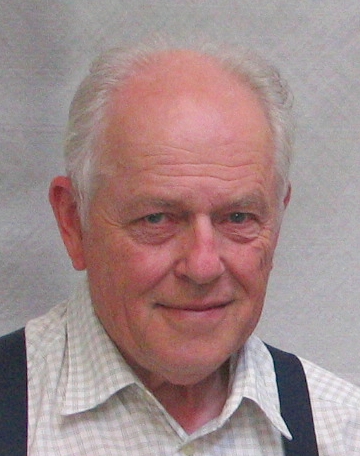
Singing the Journey
by John L. Ruth___________________________
-
0
read more
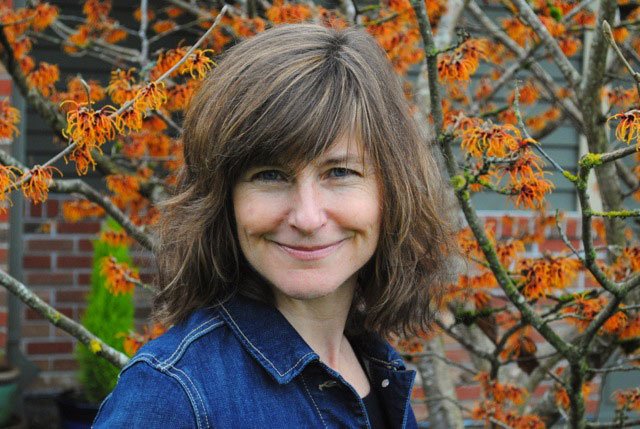
Postcard From Bonaire
by Barbara Nickel___________________________
-
0
read more

On the Pilgrimage Road of Hospitality With Abraham, Jesus and Saint James
by Anna Dintaman___________________________
-
1
read more

Three Poems
by Mary Roth___________________________
-
0
read more

Dad at the Wheel
by John Liechty___________________________
-
0
read more

Introduction
by Adam M. L. Tice___________________________
-
2
read more

J. D. Brunk and S. F. Coffman
by Adam M. L. Tice___________________________
-
0
read more

Inspiration
by Jill Schroeder-Dorn___________________________
-
0
read more
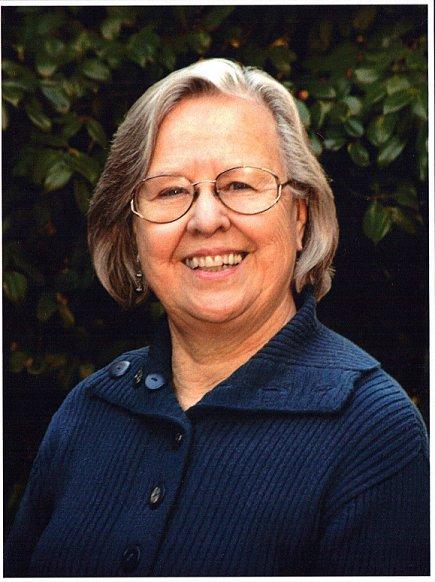
The Birth of a Hymn
by Jean Janzen and Larry Warkentin___________________________
-
0
read more

Creator God, Your Word Brought Forth the Fire
by Jean Janzen and Larry Warkentin___________________________
-
0
read more

An Interview with Composer James E. Clemens
by James E. Clemens___________________________
-
0
read more

The Church of Christ Cannot Be Bound
by Adam M. L. Tice___________________________
-
0
read more

Bibliography
by Adam M. L. TiceA bibliography of texts and tunes written by Mennonites that are included in non-Mennonite hymnals
-
0
read more

Writing About Sports: Some Thoughts on David Wright
by Daniel Shank CruzWhen readers of the Journal of the Center for Mennonite Writing hear the name “David Wright,” they probably think of the Mennonite poet, well-known for his piece “A New Mennonite Replies to Julia Kasdorf” (Lines 17-18), which wryly responds to some of the tropes of Mennonite literature listed in Jeff Gundy’s “How to Write the New Mennonite Poem.” But most sports fans probably think of the New York Mets’ all-star third baseman, who has been one of the best players in baseball over the past decade.
When I was asked to edit this issue of JCMW on sports, I …
-
0
read more

Lessons
by Todd DavisBy the end of July, the practice field is burned a fragile yellow. A month from now, as cleats bite the earth, great clouds of dust will rise around us, turning our skin a beautiful shade of brown and leaving our airways coated, our snot a viscous black that shoots from our noses as we try to catch our breath between sprints.
-
0
read more

Growing Up Mennonite, Growing Up Hawkeye
by Charles R. "Chip" Frederick, Jr.Among my earliest memories are those of two strains: memories of growing up in the Mennonite Church and memories of athletic contests either as a participant or spectator.
On occasion the two strains converge and the result is particularly evocative of my own experiences as a sports-crazed Mennonite. I remember foot races with packs of elementary-aged kids running around the outside of Pigeon (Michigan) Mennonite Church, and playing church league basketball on bitterly cold winter nights in the Iowa Mennonite School (IMS) gymnasium before IMS became the strong interscholastic athletics force that it is today. Some local wags even half-joke …
-
0
read more

Sports, Me, Title IX and the World Cup
by Melanie ZuercherWhat did I know about Richard Nixon when he was President? I may or may not have been aware he was the President before he resigned in the summer of 1974, almost exactly 40 years ago. I just recently found out that Nixon signed a set of amendments to the Higher Education Act of 1965. One of those amendments was Title IX. Nixon signed the Education Amendments on June 23, 1972. Six days earlier, on June 17, five men had broken into the Democratic National Committee headquarters in the Watergate Building, the point at which the dominos of Nixon’s political …
-
0
read more

Three Poems by Jesse Nathan
by Jesse Nathan___________________________
-
0
read more

Poems by Carl Haarer
by Carl Haarer___________________________
-
1
read more

Introduction
by Ann HostetlerA number of years ago I got into a lively discussion with a student, Emily Rodgers, over whether song lyrics could be viewed as poems. To prove her point, she wrote a paper for my American Lit class at Goshen College on the connections between Allen Ginsberg and Ani DiFranco. She later became a successful singer-songwriter and used a version of the paper to get into a graduate program in English. Now she is both a singer-songwriter and a college-level English instructor in Pittsburgh, Pennsylvania. Ever since, I’ve noticed the prolific number of excellent singer-songwriters coming out of the Mennonite …
-
0
read more

Lobsang
by Carol Ann Weaver___________________________
-
0
read more

Looking for Spiders
by Jessica Smucker___________________________
-
0
read more
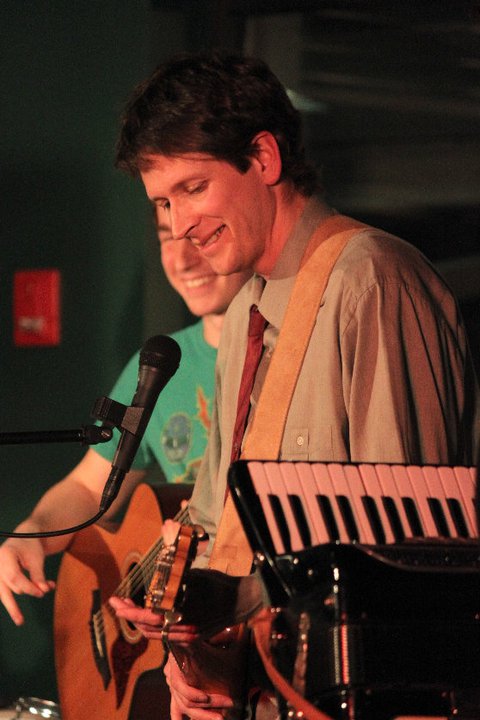
Colony Collapse Disorder
by Trevor Bechtel___________________________
-
0
read more
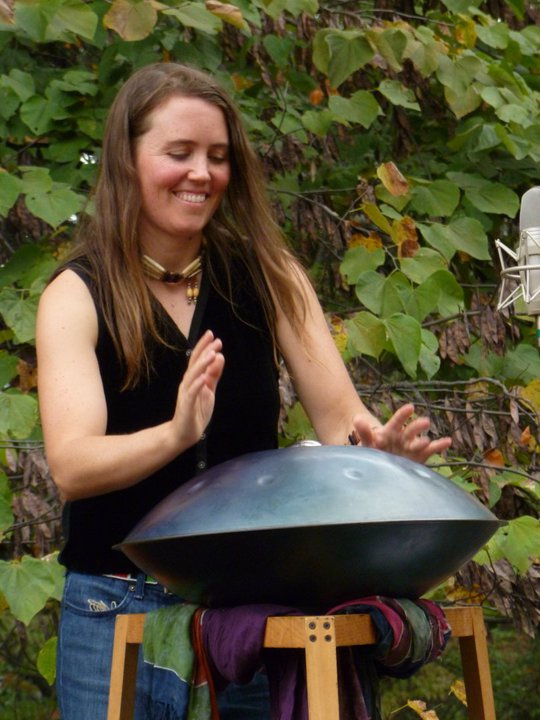
This is My Home
by Frances Crowhill Miller____________________________
-
0
read more

31
by Andrew Gerber___________________________
-
0
read more
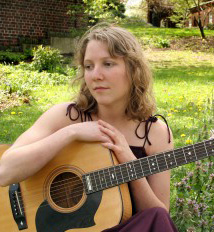
Hurricane
by Emily Rodgers___________________________
-
0
read more

Little Pine
by Moral Circus___________________________
-
0
read more

Somewhere Near Defiance
by Jeff Gundy___________________________
-
0
read more
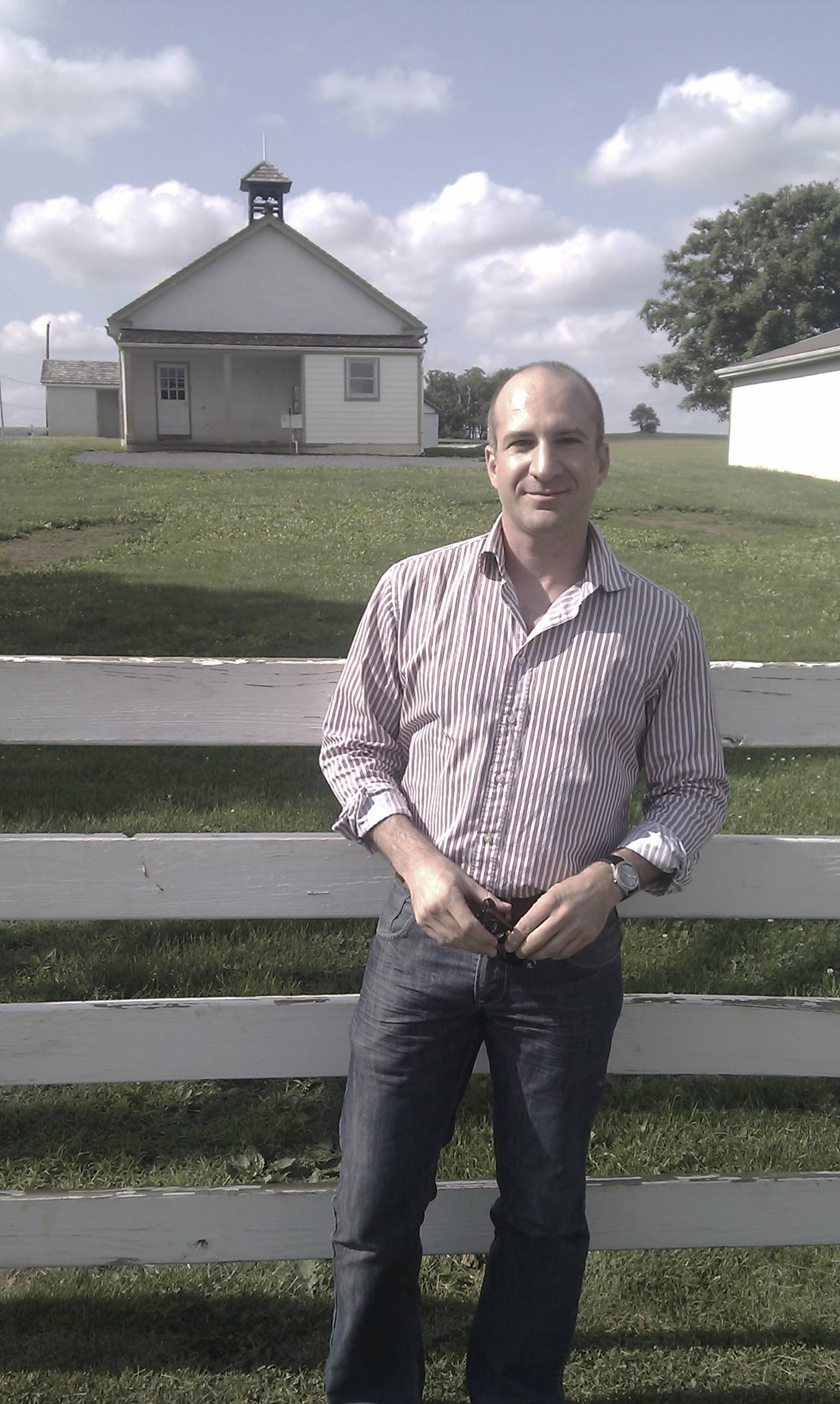
Big American Man
by David George___________________________
-
0
read more

New Voices: In This Issue
by Ann HostetlerIn this issue six writers of poetry and memoir take on the theme of Mennonite memory as they reinterpret, express, and critique Mennonite values and stories through their creative work.
-
5
read more

When the Roll is Called a Pyonder
by Diana ZimmermanA Preview of the forthcoming memoir
-
0
read more
Me & The Martyrs
by Kate YoderA graphic reflection on discovering the Martyr's Mirror.
-
0
read more

Poems by Joseph Gascho
by Joseph GaschoThree poems set in Nebraska farm country.
-
1
read more

Poems by Anna Ruth
by Anna RuthTwo poems written in South Korea.
-
0
read more
Poems by Heather Derr-Smith
by Heather Derr-SmithThree poems on nature, violence, and beauty.
-
0
read more
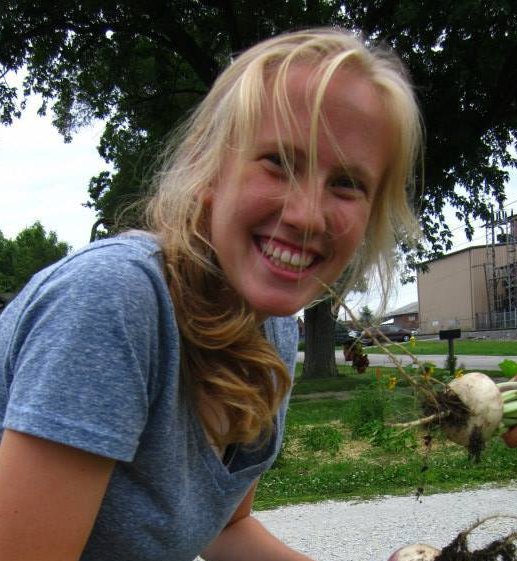
Birdsong
by Kate FriesenWith thanks to Jan Beatty
-
0
read more

New Resources
by Ann HostetlerInterviews with Mennonite writers and more by the students of the Mennonite Literature class at Goshen College, Fall 2013
-
0
read more

Contemporary Plays by Mennonite Writers
by Lauren FriesenThe Quest for Common Ground in Recent Mennonite Plays
-
1
read more

Bird Brain
by Vern ThiessenBased on the story by Albert Wendt.
-
0
read more

How the War Started
by Doug ReedWar's like a fog you can't keep out. It gets in everywhere. And it withers whatever it touches.
-
0
read more

Censored
by Al SchnuppA play based on the art and life of artist Käthe Kollwitz.
-
0
read more

Cry After Midnight
by Talia PuraThree women, three perspectives, one war.
-
0
read more

Passion
by Robert HostetterScenes adapted from dialogues with peacemakers in Israel-Palestine
-
1
read more

Interview with Stephen Shank
by Ervin BeckStephen Shank speaks about his beginnings in theater as the child of Mennonite church workers in Belgium, and his return to Belgium for a 30-year career in the theater.
-
1
read more

Humor: In This Issue
by Ervin BeckI grew up in a Mennonite congregation where our pastor-bishop once said from the pulpit, “People ask me why I never smile. The Bible never says that Jesus smiled. It says that ‘Jesus wept.’”
-
0
read more
Mennonite Girls
by Bob JohnsonI was raised a Lutheran boy in Middlebury, Indiana, in the 50s and 60s. In those days there were four denominations in town: Lutheran, Methodist, Church of the Brethren and Mennonite. As far as I knew, those were the sum total of Christian denominations in the world, besides the Amish of course.
-
1
read more

Farm Animals' Desertion: In Which Puss in Boots Learns That the Kota Is Full
by Magdalene RedekopIt’s a way of life that is vanishing, people say—in a mournful tone of voice that makes me want to kick something.
-
0
read more
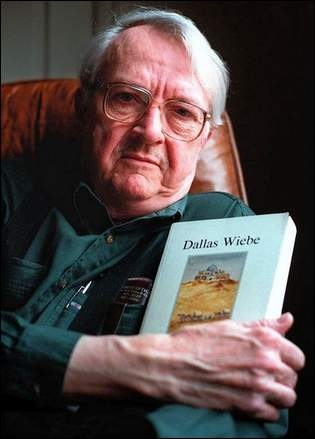
Poems by Dallas Wiebe
by Dallas WiebeThree poems from Monument: Poems on Aging and Dying.
-
0
read more

Current Events
by Rhoda JanzenMILEY CYRUS RAUNCHY DANCE!
-
0
read more

Fifty Billion Planets
by Jeff GundyThe galaxy is crawling with life. What’s for dinner? - Anonymous
-
0
read more

Jonah v. The Admiral
by Paul Enns WiebeA selection from Wiebe's novel, The Church of the Comic Spirit.
-
1
read more
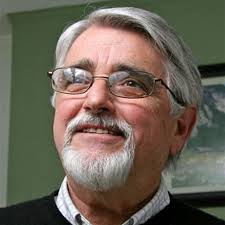
A Funny Thing Happened to Me on the Way to the Monastery
by Jep HostetlerLines from an Old Testament Sabbath Day song, “In old age [the righteous] still produce fruit, still green, still full of sap”(Psalm 92:14), inspired Father Kilian McDonnell, CSB, to write the poem “Retirement Home Chapel.
-
0
read more
Poetry Feature: Andrew Kreider
by Andrew KreiderThree poems by Andrew Kreider
-
2
read more

Food & Writing: In this Issue
by Ann Hostetler“I’m going to need some lunch before I can finish the introduction,” I say to my intern, Kate.
-
0
read more

Lunch Box Social
by Shirley H. ShowalterA preview from Blush: A Mennonite Girl Meets a Glittering World, Showalter's forthcoming memoir.
-
2
read more

A Mosaic of Broken Dishes
by Julia Spicher KasdorfA summer reading special! Jessica Penner talks about her new novel, Shaken in the Water, history, imagination, and church.
-
0
read more
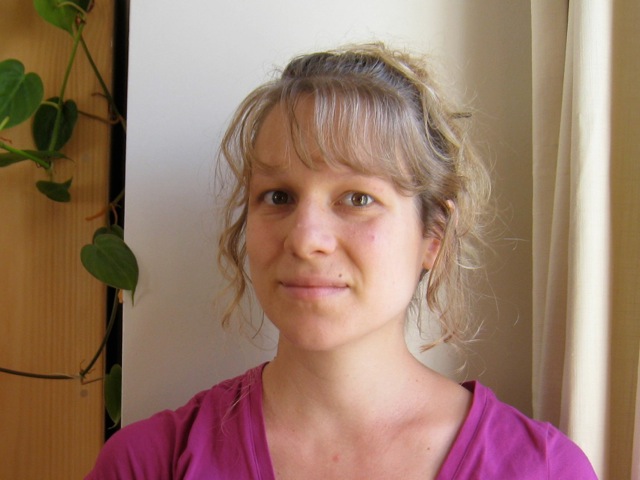
The Drudgery of Cherry Pie
by Rosanna Nafziger HendersonA reflection on what food means to us by the co-author of The Lost Art of Real Cooking and The Lost Arts of Hearth and Home.
-
0
read more
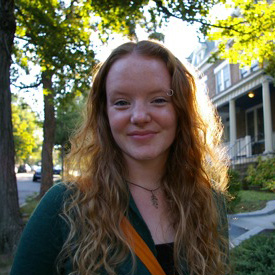
The Sow and Other Poems
by Elise Hofer DerstinePoems from the farming life.
-
0
read more
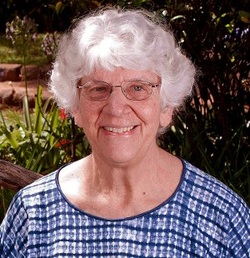
Proverbs, Recipes, and Poems
by Annetta MillerInspired by her life in Tanzania, Annetta Miller shares African perspectives on food and hospitality.
-
0
read more
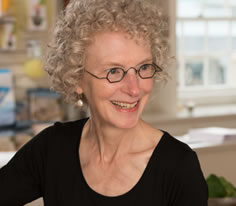
Food Times
by Phyllis Pellman GoodA reflection on food by the best-selling author of the Fix It and Forget It cookbook series.
-
0
read more

Furlough
by Keith MillerA short story by Keith Miller, author of The Book on Fire and The Book of Flying.
-
0
read more
Two Poems About Family
by Karen YoderTwo poems from a legacy of Mennonite family frugality and careful living.
-
2
read more
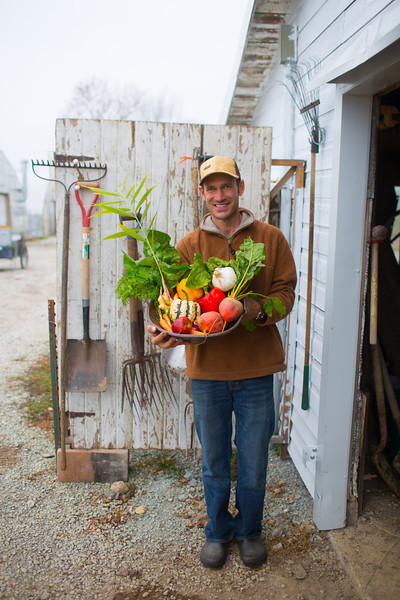
Eight Years to Farmer
by Ben HartmanReflections on choosing to farm sustainably and cultivate a culture of local food in Goshen, Indiana.
-
0
read more
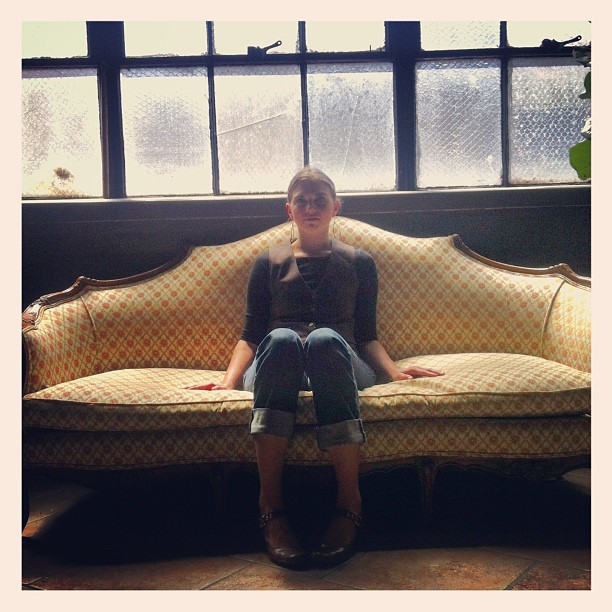
Keturah's Cards and Lemons
by Katie BoytsReflections on recipe cards that create a relationship between generations.
-
1
read more

Oracle
by Kate Stoltzfus"Oracle" won first prize in the best free verse poem category from the Indiana Collegiate Press Association's Literary Magazine Competition in April 2013. The poem was published in Red Cents, 2012, the award-winning creative arts journal of the Goshen College English Department.
-
1
read more

Elder Song
by Mary Roth"Elder Song" won second prize in the best free verse poem category from the Indiana Collegiate Press Association's Literary Magazine Competition in April 2013. The poem was published in Red Cents, 2012, the award-winning creative arts journal of the Goshen College English Department.
-
1
read more

Five Poems on Travel
by Sarah KortemeierFrom Ground Zero to Hiroshima, these poems create a network of perceptions, gently holding the globe as a whole while honoring silent spaces.
-
0
read more

Two Poems on the Past
by Jennifer Jantz EstesThese two poems draw on the author's recognition of her heritage within the farming and Mennonite communities of central Kansas.
-
0
read more

Three Poems on Place
by Julie Swarstad JohnsonThe first two poems below come from Pennsylvania Furnace, a manuscript which explores the history of the iron industry in central Pennsylvania.
-
2
read more

The Club
by Lucy Bryan GreenCally studies the rack of free weights and notes that someone has swapped the twenty and twenty-five pound dumbbells. She rearranges them, then picks up the forty-pounders sitting beneath the weight bench and returns them to the rack. On her way back to the counter, she sees a gold thread coiled on the floor. The necklace—a small cross on a cable chain—belongs to Janet Woodard. Cally examines it in her palm, tapping each of the pendant’s bulbous arms. Mrs. Woodard never takes off the anniversary gift—at least, she’s fond of saying so—and she has a habit of pressing the cross …
-
3
read more

Surviving
by Greta HoltAfter Leslie was killed, I walked the streets of Gaborone until the Botswana Bandanna caught my eye. Having nothing better to do, I went in to have my hair ‘tonged, frozen, wrapped, pineappled, ponied, braided or cockscrewed’ as the sign outside advertised. I asked the proprietress, a large woman wrapped in three prints, if that meant ‘corkscrewed.’ She blew puffs on each of her speckled orange acrylics and said she’d really no idea.
The proprietress waved me over to a swivel chair, called for an operator and sailed away. A blurry white woman with yesterday’s hair stared back from the …
-
2
read more
Up in the Air, Junior Birdmen
by Nathan MalenkeBuck’s biggest disappointment in his son’s ninth birthday wasn’t Jimmy’s lackluster response to his gift, but instead Jimmy’s decision to name his new hamster Armstrong.
“Buzz. Buzz is a good name,” Buck had insisted until he had felt the pressure of Mary’s hand on the small of his back. “I suppose Armstrong works, too.”
For months now, Buck has known that he will give Jimmy a model rocket set for his tenth birthday. The only books his son has read for the past year are about shuttles, space, the moon. Taped to the ceiling above Jimmy’s narrow bed is the …
-
0
read more

Morning in America
by Hope NislyWe opened the doors of St. Joseph’s Emergency Winter Shelter for Women and Children on a drizzly, dreary Saturday evening in January. Walking from the BART station to the shelter, I stumbled over the sad remains of New Years Eve celebrations, the streamers and confetti begging for a better year in 1986. By the time I arrived for my first night on the job, there was a line of women waiting impatiently. The first family in line was a hefty black woman and her two daughters anticipating a hot meal, beds, and protection from the rain.
Sandra pushed her way …
-
0
read more

Who Can Play the "Other"?
by Pat LehmanIn 2000 Linda Christophel and I began interviewing Mennonite women of color about their experiences with racism and how God had worked in their lives. The result was a film, Living Water Living Faith, which premiered in 2005 at the Mennonite Church Convention in Charlotte, North Carolina. The stories of these women were so powerful that I decided to present the stories of additional women we had interviewed in a play, Heavenly Voices, written in part for the completion of my doctorate in 2010. Part of the dissertation project involved cross-racial casting of women in the roles in order to …
-
0
read more

The Other Mexico through the Cinematic Eyes of Carlos Reygadas
by Samuel ManickamAmong the crop of contemporary Mexican film directors, perhaps Carlos Reygadas (b. 1971) is deservedly referred to as enfant terrible. Doing away with traditional plot lines and character development, Reygadas conscientiously turns cinematographic conventions on their heads. He uses long, slow shots to depict tortured characters of few words living out existential dilemmas in his three internationally acclaimed films to date: Japón (2002) [Japan], Batalla en el cielo (2005) [Battle in Heaven] and Luz silenciosa (2007) [Silent Light].[1]
By attempting to do away with the conventional artifices of film-making – after all, …
-
0
read more

Narrative Ethics in Miriam Toew's Summer of My Amazing Luck
by Daniel Shank CruzIn an interview with Natasha G. Wiebe, Miriam Toews recalls when Rudy Wiebe’s 1962 novel about violence in a Canadian Mennonite village, Peace Shall Destroy Many, was banned in her church, and laments that this official reaction was “so sad, because the Mennonites have so much to offer” (119-20, emphasis in the original). Despite her rejection of Mennonite theology,[i] Toews recognizes that the Mennonite community has much to teach the outside world.
Toews repeatedly calls herself a “secular Mennonite” (“Novelist,” Brandt “Complicated,” N. Wiebe 122), a term which, aside from acknowledging the impossibility of escaping her Mennonite …
-
0
read more

The Heretic and Other Poems
by Cynthia YoderThe Heretic
During the Reformation in Europe, Menno Simons left his work as a Catholic priest to become a leader of the Anabaptist movement, which was distinguished by a belief in adult baptism. Many Anabaptists -- now known as Mennonites, Amish and Brethren -- were martyred for their practice.
On the foothills of Sangre de Christo, my brother rinses his low-
floating beard in spring water and stones. I don't know
how far he goes when he leaves his home near Grape Creek,
but I can see his bones more clearly through his face each
time.
My philosophy has been, …
-
1
read more

In This Issue
by Ervin BeckThis issue was inspired by Gulliver’s Travels, Jonathan Swift’s classic travel narrative and social and philosophical critique. Gulliver visits the exotic lands of the Lilliputians, the Brobdignangians, the Laputans and the Houhynyms. His is an early version of the “cross-cultural” experience earnestly sought today by academics, serious tourists and culture critics.
Since World War II, thanks to Mennonite Central Committee, various Mennonite mission agencies, and academic study-abroad requirements, Mennonites have travelled throughout the world and embraced a more diverse understanding of culture, to the extent that Mennonite worship services and social occasions borrow ideas and practices from international and …
-
4
read more

David Foster Wallace Among the Mennonites
by Ervin BeckThe Reading at Goshen College
It was a dark and stormy night on December 5, 1996. The roads between Bloomington, Illinois, and Goshen, Indiana, were covered with snow, ice and sleet. David Foster Wallace was late for his 9:30 p.m. reading at Goshen College, but we knew he was on his way so we hunkered down in the Koinonia Room of the Church-Chapel building, which was overflowing with students, some of whom had to sit on the floor. Among the students were ardent followers of Wallace, acclaimed author of Infinite Jest, and many more who had come to see what …
-
2
read more

Literally, Not Quite A Mennonite
by Ellah Wakatama AllfreyI came to Goshen, Indiana, in the winter of 1987. My flight from Harare had landed in Chicago. From there, I made my way to Wheaton, Illinois, where my late brother Richard was then living. After a couple of days visiting him I took a connecting flight to Indiana.
This was my great big adventure. I was nineteen years old, and just five weeks before had been at an all-girls’ boarding school in Harare – Arundel – nicknamed the “Pink Prison.”
I’d seen all the movies but, for me, New York, New Jersey, Goshen . . . it was all …
-
1
read more
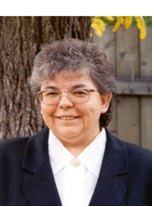
Me and Mennonites: The Way We Were "The Other"
by Emma LaRocqueMy connection with Mennonites goes back to my early teen years--back to Anzac Dorm in northeastern Alberta and then across the border to major Mennonite educational institutions and, finally, to familial connections here in Manitoba, which is now my home. My “sojourn” with Mennonites is a story of deep and lifelong human attachments; it is also one of some pain and alienation that comes with crossing cultures, borders, languages and socio-economic locations.
I will highlight a number of very special Mennonite people who made such a difference in my life and who will always remain close to my heart. So …
-
0
read more

Still In The Land and Other Poems
by Abigail Carl-KlassenThe following poems are based on my experience and observations drawn from living among the Mennonite communities of Seminole Texas in the 1990s and early 2000s and on oral histories I collected from some of my closest friends and their parents, as well as from people who would later become family members through marriage. While we ate Faspa around the kitchen table and knocked zoot on the back porch, they shared childhood memories and coming of age stories from the years they spent living in Old Colony communities near Cuauhtémoc, Mexico. I am thankful for my opportunity to be a witness to the past and present among friends and family in Seminole and Mexico, and these poems spring from that gratitude.
-
1
read more

In This Issue
by Ervin BeckDocumentary film is the creative nonfiction genre in the cinematic arts. Since its early form as newsreel, it has morphed into a ubiquitous expressive and artistic medium, with examples abounding in television networks, classrooms, popular movie theaters and art film houses. Documentary films have earned their inclusion in the Academy Awards.
Yet, except for such stars as Michael Moore and Ken Burns, the makers of documentary films tend to be invisible, partly because of the seemingly functional nature of the films and partly because of the collaboration required to produce them. If a film is made by a team of …
-
1
read more
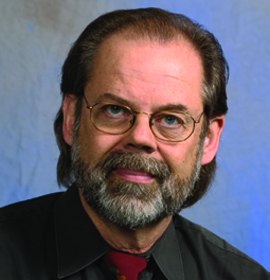
Salvation for a Skeptic's Soul
by Burton Buller“The movie is the rival of schools and churches, the feeder of lust, the perverter of morals, the tool of greed, the school of crime, the betrayer of innocence…They debauch the minds of children, inflame the lusts of youth, harden the hearts of sinners. They are a trap for souls, a mocker of God, a curse to America!” – John R Rice in What’s Wrong with the Movies? (1938, 1964).
I Want To Be a Filmmaker!
I grew up in a Mennonite Brethren community. One of the key markers that distinguished us from those around us was that we didn’t …
-
0
read more
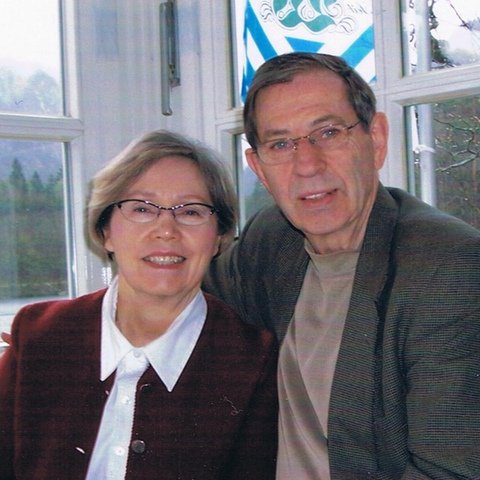
A Passion for Film: My Life as a Filmmaker
by David DueckLike the rest of my Mennonite Brethren Church congregation in Boissevain, Manitoba, I sat with growing anticipation as the lights went down and the first flickering images lit up the screen. It was my first experience seeing and hearing an actual film presentation. It was 1954 and, as a fourteen year old who had grown up on a mixed farm in rural southern Manitoba, this was a moment that would alter the course of my life!
The group that was presenting the film was The Shantyman Organization, whose mission was to visit the logging camps throughout the province and present …
-
0
read more

Dedicated Observers
by Paul HuntI had just returned from filming a family of seven for a fundraising video for the Centre for Autistic and Developmental Disabilities (CADD) and wondered why I had such an enjoyable time. There were no interviews, no prompting, just me capturing their everyday lives, honestly, in real time.
Back in my days of illustrating children's books, much like a photographer, I had to be content with the drawn and painted image of a book cover on a single, two-dimensional plane. But I always wanted to move inside the picture and see what the image would look like from different angles. …
-
0
read more
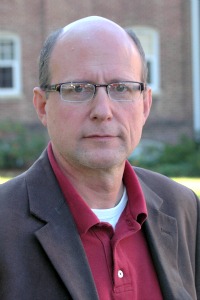
There's No Money in Documentary Filmmaking
by Dirk EitzenI might as well say that right up front, for anybody who might suppose otherwise. This is not a complaint; it’s just an observation. But I am guessing that, in one way or another, it is a subtext of much of what appears in this special issue on documentary.
I don’t make documentaries for a living. I’ve made a bunch, but my bread and butter come from teaching. I’m a professor. I’m occasionally envious of filmmaker friends who travel the globe working on fascinating documentary projects, but when the conversation turns to health insurance and job security and the challenges …
-
0
read more

Branch Valley Productions
by Jay RuthI have worked at video production since 1985, almost all my adult life. A “selected” list of my work includes 82 titles ranging from 4 to 120 minutes, about 35 hours worth, plus many more I haven’t kept a record of other than through old invoices. Much of my work has been of a “documentary” nature, with a focus on history, church, community, identity, and storytelling. It’s not hard to see why, as I look back at the way I began.
I never studied, anticipated, or really even thought about film or video before taking it up. I got a …
-
0
read more

Burton Buller Filmography
by Burton BullerFrom 1970 to 2011
-
0
read more

David Dueck Filmography
by David DueckFrom 1973 to 2012
-
0
read more

Paul Hunt Filmography
by Paul HuntFilm Links
-
0
read more

Dirk Eitzen Filmography
by Dirk EitzenFrom 1985 to 2007
-
0
read more

Jay Ruth Filmography
by Jay RuthFrom 1985 to 2012
-
0
read more

In This Issue
by Ann HostetlerIn this issue is a sample of original creative writing from Mennonite/s Writing VI: Solos and Harmonies, held at Eastern Mennonite University (EMU) from March 29-April 1, 2012. The writers here represented suggest some of the variety, passion, and talent that contributed to the success and texture of the conference. The works I have chosen for this issue were either read at the conference or written in response to it. All of the writers are younger--from the under forty set--and suggest the vitality of the new generation of writers that has emerged since the first Mennonite/s Writing Conference held at …
-
0
read more

An Inescapable Embrace
by Anita Hooley YoderI was introduced to Sleeping Preacher as a first-year student at Goshen College in a class called “Introduction to Literary Interpretation.” I do not think I had ever seen a poem about or by a Mennonite before, and I was thrilled to discover, in that semester of Shakespeare and Toni Morrison, that my people (or people sort of like mine) were also worthy of creative exploration and critical study. Just last semester (fall 2011), I took a seminary class through the Earlham School of Religion called “Writing as Christian Ministry.” I was uncertain about what sort of definition of “writing” …
-
0
read more

Thinking of Certain Teenage Mothers and other poems
by Anita Hooley YoderFour poems Anita read at the conference, two of them inspired by Mennonite writers Julia Spicher Kasdof and Jeff Gundy.
-
0
read more

Permission and Other Poems
by Jesse Nathan"Permission" was inspired by Jesse's experience at Mennonite/s Writing VI; he read the other three poems at the conference. "Report of Heavens" first appeared under the title "Heavens," in a different form in The Mennonite for May 5, 2009.
-
0
read more

Silence, Memories, and Elegies
by Connie T. BraunAuthor's note: In these poems the speaker is generationally, linguistically and culturally removed from her family’s experiences of trauma and displacement. In acting as witness to her grandparents' lives, these poems privilege “words, unspoken”; that is, silence and memory to compose, for the next generation of acculturated (Canadian) children and grandchildren, authentically interpreted experience of ethnic/religious Mennonite heritage. —Connie Braun
-
0
read more

Latest Letter and other Poems
by Becca J.R. LachmanThese new poems read by Becca at the conference grow out of her ongoing dialogue with her Ohio Mennonite community.
-
0
read more

Mungu Ni Pendo
by Maria LahmanAuthor's Note: I formed this research poem from in-depth interviews with my nieces, Mica and Noa Yoder. The interviews were about Sept. 11, 2001 and occurred a year after the tragedy. My nieces were 4 and 7 years-old at the time and were walking to school with their mother, my sister, Katrina, in Manhattan, when the planes were directed into the Trade Towers. At the outset of the interview Noa sang a song that is symbolic of our extended family, J. Clyde Shenk, Alta Barge Shenk, and Miriam Wenger Shenks’, Anna Kathryn Shenk Eby's, and Omar Eby’s connection to East Africa as Mennonite missionaries. I have woven these lyrics throughout the poem. My regret is the reader cannot hear Noa’s child voice in song. The Swahili text Mungu ni Pendo translates to the song, "For God So Loved Us."
Research poetry, a blending of aesthetic and scientific representation, exists between the boundaries of art and science. Research poets are interested in blurring scientific writing principles as a way of allowing people to see and understand research findings in new ways. Some have even claimed that the poetic form may be more accessible. This position while arguable (Lahman, et. al 2011) underscores the poetic form possibly causing research to be understood differently from the scientific paper.
Research poetry of the nature seen in this poem is commonly referred to as transcription poetry (Glesne, 1997; eg. Lahman, 2011; Teman, 2010), where the poem lines are derived directly from an interview transcript. This type of poetry has seen more recent acceptance in progressive science areas most likely due to the erroneous feel that the lines are objective facts. Readers will wish to consider the deeply interpretive nature of, first, the act of transcription (eg. How does one choose where to punctuate speech?), second, the poet’s choice of which text to use in the poem, and third, how to form the text within the poem. For further reading please see Lahman et. al (2010) for discussion of research poetry including autoethnographic and formed representations.
-
0
read more
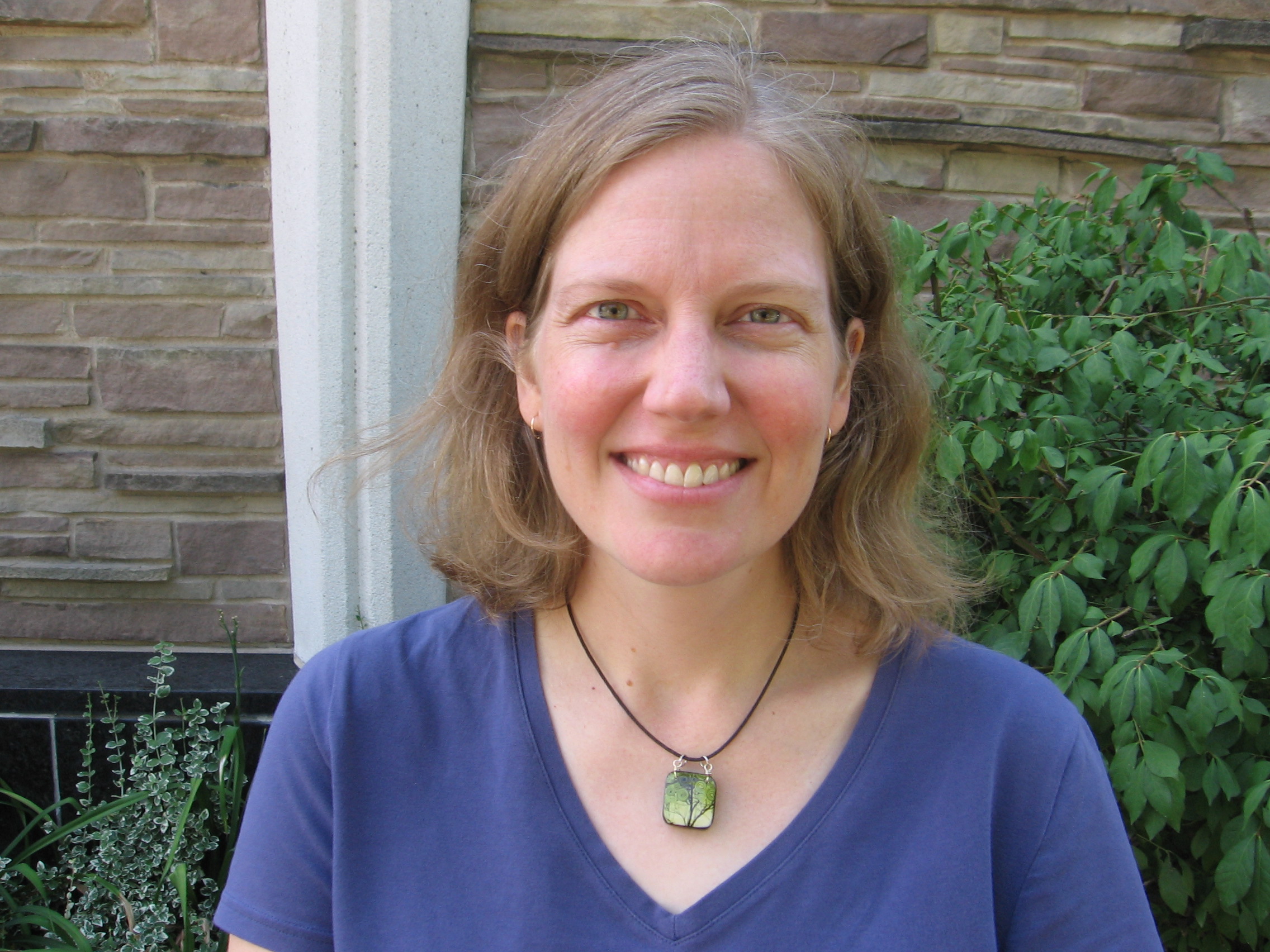
People Who Understand
by Kristen MathiesThis short story, read at the conference, was inspired by the author's childhood in Swaziland.
-
0
read more

Lavish Banquets
by Kirsten BeachyIf I had grown in some generous place—
If my hours had opened in ease—
I would make you a lavish banquet.
~Ranier Maria Rilke, trans. Barrows and Macy
-
0
read more
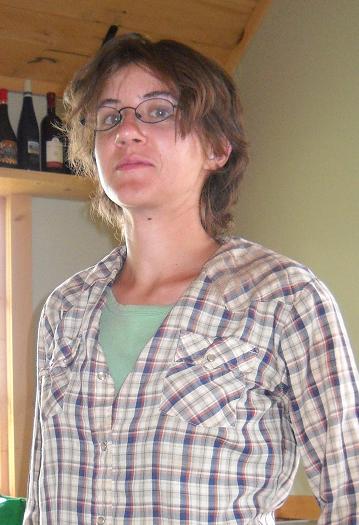
Give Us Good
by Pam MandigoThe Characters
TOM… a man with a monster
AMELIA… his love
Nebuchadnezzar, or NEZZAR… a grave digger
Second Chronicles, or RONNI… his sister, or so she says
Samantha Basil, or SAMBAI… the Monster Eater
JEBEDIAH… a young wood cutter
The Setting
A Dark Swamp, once upon a time. Specifically, the Cemetery of the Ascendant Dead, and a clearing somewhere else.
Punctuation
/
indicates overlapping speech.
…
indicates the scoring of silence.
SCENE 1
The Cemetery of the Ascendant Dead.
A gravedigger, NEZZAR, and his sister, RONNI, have just finished digging a grave. He is everything you have ever secretly hoped …
-
0
read more

Hymn Sing
by Jessica PennerThe scent of a pre-op is unmistakable: rubbing alcohol, plastic, blood, and breaths of anesthesia. Such places are like Limbo. You are waiting for Something to Happen, and the only way you know that Something is About to Happen is the swish of scrubs meant only for you—the casual tone of voices that stride toward you long before the words become clear.
I’m sitting on a gurney in Mount Sinai Hospital’s pre-op in New York City, waiting to have two of my tumor-laden fingers amputated. It is, admittedly, the least traumatic of the numerous surgeries I have had in the …
-
0
read more
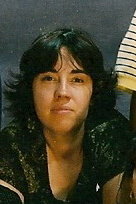
The Gospel According to Juan
by Tonya OsinkoskyIn this excerpt, Jesus (from Guatemala and who came to the U.S. when he was a pre-adolescent) remembers one of the stories about Quetzalcoatl that he told in sign language (italics) to his eight-year-old deaf nephew Juan (born and raised in the U.S.). While the Popol Vu, the religious manuscript of the Mayans, relates stories of “the feathered serpent,” in this narration Jesus fuses the legend with his own imagination of how Quetzalcoatl was created.
I climb the next crest to a sweeping view of the Pacific. The land cuts a deep ravine and the trail winds around it. Sharp …
-
0
read more

A Brief Personal History of Dancing
by Anna Maria JohnsonA story circulates throughout my extended family about the time that the wife of my father’s cousin, Gil, bellydanced at a family reunion, shocking and offending my Grandma Davis. Cousin Gil and his wife are no longer married—I can’t say whether the bellydancing incident had anything to do with that—but the story persists, casting a shadow on dancing of any kind.
As a young girl in rural Iowa in the 1980s, during one of the brief intervals when our family owned a television, I watched the Christmas special of the Nutcracker Ballet, and wished to learn to dance. My mom …
-
0
read more
Vital Signs
by Andrew JennerSince you ask so intently, I’ll be frank. I do not eat meat because I think that doing so is wrong. Unnecessary. Unhealthy. Destructive to our world and disruptive to our society. And then there is the matter of slaughter, of ending the life of another creature, one possessed of emotion and intelligence, of the will to survive, and of the desire to act in its own self-interest –which we defeat with our barbed wires and bolt guns, those ones that punch steel rods down through the brain tissue, ostensibly sparing its victim the pain and indignity of bleeding out …
-
2
read more

Spanish Moss
by Chad GuslerLenore was happy to sever her friendships. It’s for a higher cause, she wrote in her journal the day before they left. And though she feigned sadness when many of them showed up to help load the U-Haul, her heart lifted when her father finally turned the truck onto the interstate and began the six hundred mile journey to South Carolina, leaving her old relationships behind. She had always wanted to be a writer, a real one and not a dabbler like the rest of them, but the timing never seemed right. Now is the time, she wrote. …
-
0
read more

The Holy Book
by Alisha HuberSome orthodox Jews kiss every book before they open it. Every book—not just the Torah, but rabbinical commentary, the Mishnah, The Joy of Cooking. This reverence for the bookness of books is something I understand, and I can picture them, men who surround their temples with curly brackets, gently turning the pages of Rashi or Cosmopolitan. Jews, Christians, and Muslims call themselves “people of the Book” but perhaps this small group of yeshiva boys treasures books in ways the others have forgotten.
I thought of this tradition when my coworker introduced me to his young son, Evan. Evan …
-
0
read more
Q & A with the Shenandoah Valley Inkslingers
by Andrew JennerHow did you come to join the group?
KB: Chad and I, along with a few other writers, got a group together around the end of 2005. Eventually Andrew joined us. For various reasons, the group fizzled out after a year or so. In 2008, we rose, phoenix-like, from the ashes. Over the years, four became eight. By last spring, we had to cap the size of the group and actually sponsored a local meet-and-greet matchmaking session so that more of our writing friends could form their own groups.
JP: When I moved back to the 'burg, Kirsten and I …
-
1
read more

His Wife
by Kirsten BeachyOn the counter is the new toy that Donald accidentally delivered with the Slim Jims and bobble-head dogs. The words Your Friend Samantha are printed in red on the yellow cardboard. Behind the cellophane window stands a doll with plastic skin molded into a round face and chubby arms and legs. Her eyes are large, flat, and pale blue, her lashes painted on in a fan that almost reaches her eyebrows, her pink mouth parted on tiny, separate teeth. Brown curls cascade down on either side of a rosette of bangs, but Tariq can’t stop looking at her left arm. …
-
1
read more

The Mennonite Novel-in-Stories: A Survey
by Ervin BeckIn the production of Mennonite literature in North America since 1962, some of the earliest and best fiction represents the genre that is becoming known as the novel-in-stories. The term refers to a collection of short stories that are unified in ways that create a reading experience commonly expected from a conventional novel. That is, the stories offer an extended, if interrupted, prose narrative focusing on a central character who interacts with others in a complex, realistically depicted society and culture. The main character is gradually revealed to the reader, and/or undergoes personal development that sometimes even leads to self-understanding. …
-
0
read more

The Nighthawk
by Chad GuslerBefore I tell you that I know all about Maria and offer you my sincerest congrats on your new-found role in life, I have a little confession to make: I quit praying for you yesterday. I know you’re probably surprised to read this, but I realized that I was being selfish, that my prayers were mumbled only to alleviate my guilt in leaving you. Please forgive me, dear man, and don’t think me heartless, but I know you’ll get along fine without my prayers—I’m sure the whole congregation is praying for you anyway.
As for me, I’ve lost confidence in …
-
0
read more
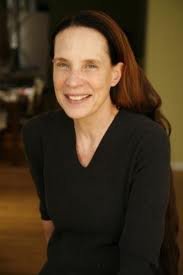
Sewer
by Katherine ArnoldiFirst I heard the meow. Loud. Frantic.
I walked around and around each tree, looking up, trying to check every branch, behind every leaf. I circled all the houses, lifting up piles of wood, searching under porches, crawling under steps, overturning buckets, opening trash can lids, squinting at rooftops. Where could a kitten be so trapped? I checked the trees again. Then, when I stepped off the curb, I realized the sound was below me.
Not down there, I hoped, but when I put my face next to the sewer grate, I knew I had found the kitten. I cupped …
-
0
read more

Susannna’s Bicycle
by Beth LehmanAs soon as the last ripple made its way to the weedy bank on the other side of the canal she knew it had not been the right thing to do. The experiment had been idle sport anyway, since Susanna, at age eight and four days, knew the results before the tests. Two marble sized rocks, dropped from the bridge, sank. Four marshmallow-roasting sized sticks floated. One big fat rock splashed her in the face and sank. One big fat chunk of a stump splashed her in the face, sank, and then bobbed back to the surface like the mallards …
-
0
read more
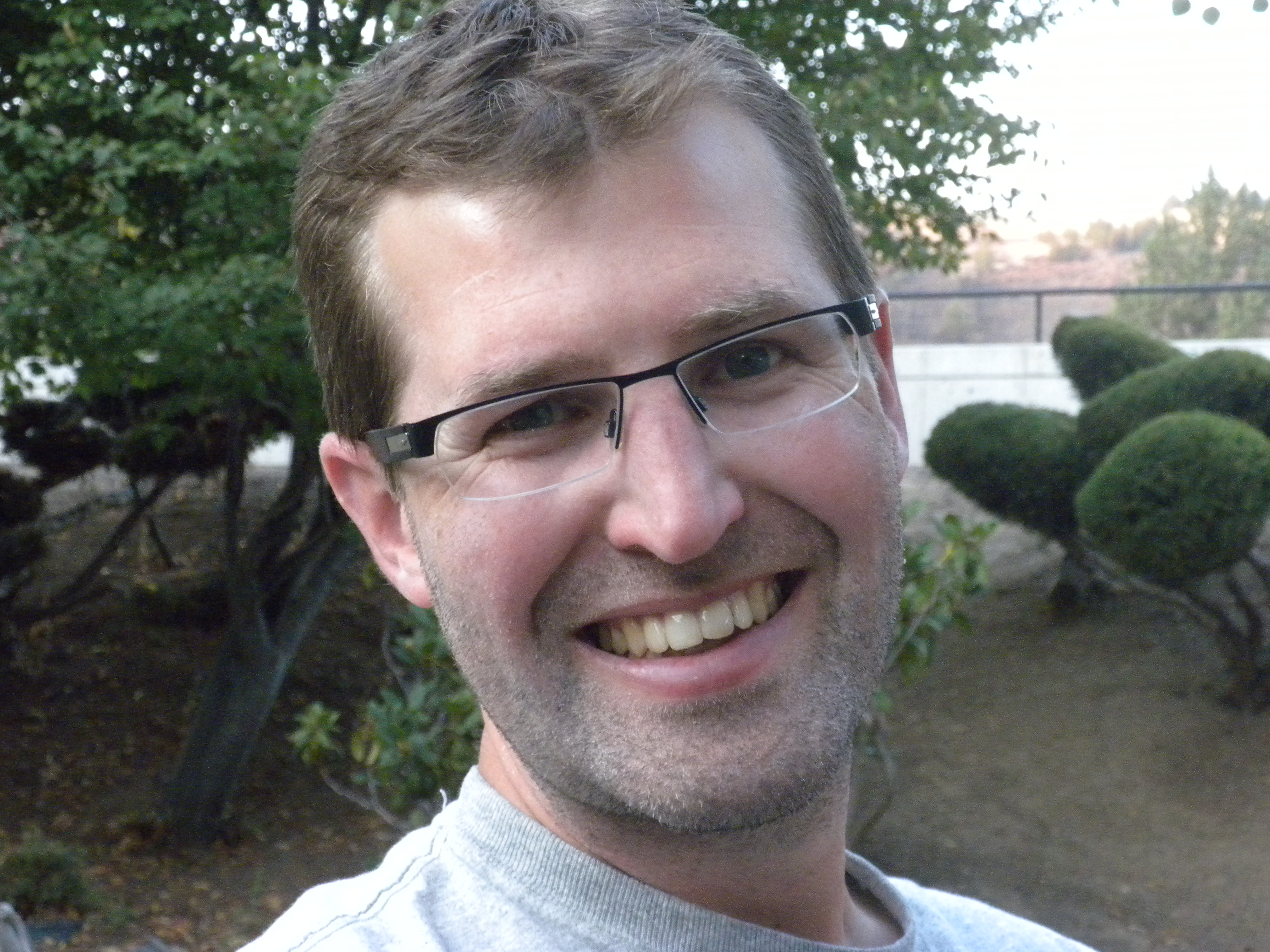
Winnie Weaver Takes a Stand (and sits down)
by Matthew Kauffman SmithWinnie Weaver reached for a hymnal and looked over at Mary Nussbaum. They grabbed their hymnals and slid them out simultaneously.
Coooouuuhhhsshhh.
The collective, clean, crisp scrape of the hymnals gliding over the wooden hymnal racks served as Winnie’s rooster call to worship.
Cooouuuhhhsshhh.
Many years ago, Winnie suggested to her friends that they sit in the center of the second row so that the four-part harmonies would cascade down the pews and converge upon their ears. The group varied in size, but Winnie, Mary, Elizabeth and Constance were weekly mainstays in the second pew of Third Mennonite …
-
1
read more

In This Issue
by Ann HostetlerMemoir has come of age in Mennonite literature. Family history, genealogy, and oral history have traditionally been rich areas in Mennonite writing, but the literary memoir is more recent territory. Those hesitating to use the personal voice and to name a portion of individual truth for a wider audience, however, have been nudged toward publication by Rhoda Janzen’s recent bestseller, Mennonite in a Little Black Dress (Henry Holt 2009).i While widely praised as a witty memoir with undertones of healing and reconciliation, Janzen’s book has been highly controversial in Mennonite settings, where strong networks of community make the subjects …
-
0
read more

Friendly Confines
by Matthew Kauffman SmithOn the first day of school in 1984, I planned to wear my usual summer clothes: red shorts and a T-shirt that clashed. I hadn’t yet learned that maroon, orange and purple didn’t complement red. The day before school, however, I started to have second thoughts on the whole shorts-wearing business. I always worried about breaking the rules.
“Do you think I can wear shorts to school?” I asked my parents.
“Oh, I would think,” Mom said, accenting “think.”
“Matthew, it’s 98 degrees outside,” Dad said. “They have to.”
I had asked a silly question. My family had moved from …
-
3
read more

Cain’s Legacy: Marked By Plain Sorrow
by Eileen R. KinchAll around me was a familiar sea of Plain people. I stood in a hotel ballroom, waiting in line to register for a natural foods conference. A German dialect called Pennsylvaanisch Deitsch flowed in and out of my ears. Most of it I didn’t understand, but every now and then, I caught a word or phrase before it rushed out of the realm of my understanding. Gooten Mariye. Good morning. Holde mei Sitz. Save my seat. The Amish were everywhere, and the colors swirled in front of my eyes: burgundy, green, deep blue, lots of black. There were a …
-
2
read more

Are You a Little Dutchman?
by James C. JuhnkeIn the spring of 1942, not long after my fourth birthday, I saw my grandpa sitting on the weathered board base of the old Woodmanse steel windmill on the Juhnke farmyard.
I went over and sat beside Grandpa, resting my elbows on my knees like he did. He was chewing on a stem of green grass. We sat silent, facing southward, looking across the yard toward the flowering mulberry tree that stood between the farm house and the chicken shed. The windmill wheel with its curved galvanized blades was barely creaking some twenty-five feet above us. The stock tank was …
-
1
read more

Jacob and Agnes
by Loretta WillemsI had just left the ranch that Stanley and I had leased. I am thinking it was 80 acres of a vineyard. I sold it back to the owner. My brother Henry had just died, so I went to San Francisco to meet Stanley. He was singing taverns for a living, so I joined him. Making a living that way was hard, so we decided to take the Delta Queen to go to Stockton to try it there. I felt like going to church, and hearing that there was a Mennonite church there I decided to checkit out.
Arriving …
-
0
read more

Four Poems
by Peter MillerLyric poetry can feel at home among prose memoirs. Both genres are fundamentally autobiographical and, as Ann points out in her introduction to this issue, “privilege the individual point of view.” How something is said is just as important as what is said. The author of lyric may sometimes operate through a fictionalized persona, but even then his or her purpose is to express a singular voice with its own unique concerns, experiences, and desires. As such, lyric, like memoir, is temporal. The passage of time provides the framework for both genres, whether measured in decades or, more likely for lyric, in minutes or even seconds. I wrote the four poems below after graduating from Goshen College and moving to Salem, Oregon, where I still live. They are certainly not a record of life since college, but they bear traces of the changes in geography and perspective that have accompanied the past two and a half years. I hope you enjoy them. -- Peter Miller
-
4
read more

Memoir: A Troubled Genre
by J. Daniel HessTo clarify what I mean by memoir as a “troubled genre,” I shall first tell a personal story. I will write a memoir about a memoir that I wrote and had published.
Having been inspired by others’ stories, I decided to write my own personal stories, beginning with childhood. What happened to me as a young child? What did I do? Where did I go? Whom did I know? When and where did I learn? Over the course of several years I wrote perhaps 50 or 60 such accounts. Some time later when I showed them to a colleague he …
-
0
read more
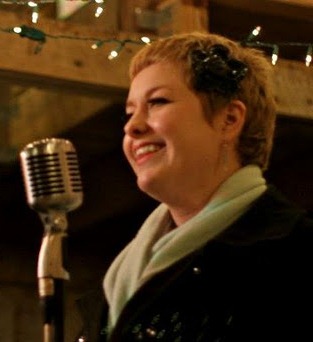
From the Guest Editor
by Sara WakefieldThe idea for a journal issue devoted to writing by Mennonite college students grew out of Ann Hostetler’s Mennonite Literature class at Goshen College in the spring of 2011. During the course Ann challenged her students to gather a selection of writing in multiple genres from students studying at Mennonite colleges or otherwise associated with the Mennonite Church. Among a variety of submissions, the present group of vivid comic essays stood out to the student editors as a group. At the end of the semester we chose to feature this quartet of essays on Mennonite childhood along with Vienna Wagner’s …
-
4
read more

Even Gandhi Threw Rocks
by Phil Weaver-StoeszWhen you’re growing up, the thing about water guns is that everyone has one. Then there’s that one kid who has way too many water guns, and all the latest models – your parents get nervous when he comes over. And there’s the kid whose parents wouldn’t let him have water guns. That was me. I was raised in a pacifist, Mennonite home. I had to borrow from the kid who had too many, which often meant I ended up with the broken little pistol that wouldn’t fire anyway. Needless to say, I got martyred a lot those days.
The …
-
0
read more

The Bunny Murder
by Kate StoltzfusI can clearly remember the moment I turned into a murderer.
I was eleven years old and the bunny was named Mouse, after her size. She was no more than a week old when we found her, with eyes yet to see the world. She fit in the palm of my hand.
We had the family dog, Taffy, to thank for our woodland pet. She would've eaten Mouse had we not intervened. I'd been walking Taffy in our backyard on a spring day too cold for the ten-plus minutes it took her to pee. Our backyard was a full apple …
-
1
read more

Junk Food Conversion
by Sarah RichI grew up in one of those college-professor neighborhoods where all of the professors' kids run around half-clothed, pretending to be the Boxcar children, while their parents get together to grill bratwursts and talk about quantum mechanics. My friend Emma, whose dad taught philosophy, lived across the Manchester college soccer field from me. My dad taught math. In the summer, my brother Joey and I would run across the field barefoot to play with Emma almost every day.
When I was eight or nine, Emma's dad built a clubhouse inside the hydrangea bush at the edge of her lawn. It …
-
1
read more

Sixteen Pacifist Goblins
by Annie Martens“Eliiijah,” I whined, “Can I play?”
“You don’t know how to play.”
“Yes I do!” I exclaimed, then qualified, “Well, I can learn, at least.”
“Fiiiine," he sighed, making it obvious that I was disturbing his idyllic solo game.
He opened the battered grey box, and began explaining the pieces, “Okay, Dungeons and Dragons is a roleplaying game, so the first thing you have to do is make your character. Roll this die for your ability scores.”
I started rolling on the baby-pink tile of our living room floor while my brother added up the rolls for me—apparently he thought …
-
1
read more

Two Poems
by Vienna WagnerThe poem, "Esther," published here, won a special merit award in The Kenyon Review's Patricia Grodd poetry contest.
-
2
read more

Review of The Lamentable Tragedie of Scott Walker by Doug Reed
by James C. JuhnkeBased on attendance at the drama September 2 and an interview with the playwright September 4, 2011.
-
1
read more

The Poetry of Peace
by Jeff GundyEvery Mennonite poet I know is an ardent peacemaker—and so are most of the other poets I know. Yet the wars go on—and, some have argued, poets (Mennonite and otherwise) ought to be doing more to protest and resist, to mobilize others for change. This small gathering of peace poems and reflections, most but not all by Mennonites, offers one glimpse of what poets are doing.
In an essay forthcoming in Mennonite Quarterly Review, I take some issue with recent claims by John Fisher and others that Mennonite poets do not write enough “peace poetry,” partly by uncovering poems …
-
1
read more

Some Notes on Poetry after 9/11
by Ann HostetlerOn September 11, 2001, I was co-teaching a Humanities Lab in mask making at Goshen College in Indiana when the towers fell in New York. In pairs students took turns smearing their faces with vaseline or laying moist plaster of paris strips on the prepared face of a partner. As the plaster masks were finished and began to dry, co-teacher John Blosser and I suggested the students use their masks to create a response to the day. Ten years later it seems appropriate to pause and reflect on the masks we have made as a culture in response to this …
-
0
read more
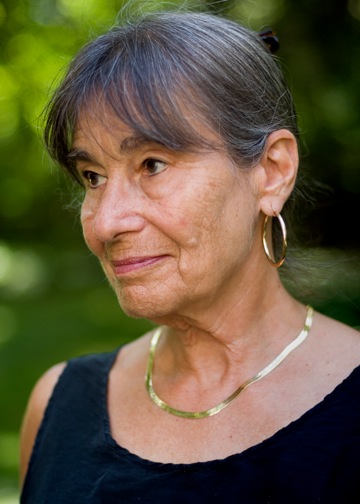
Ghazal: America
by Alicia OstrikerThe prophet Isaiah tells us that some day people "will beat their swords into ploughshares and their spears into pruning hooks; nation shall not lift up sword against nation, neither shall they learn war any more." That was about twenty-five hundred years ago, and I'm still waiting. But the truth is, through most of history, poets and writers have celebrated the idea of the warrior. Celebrated war. Glorified war. Only since the World War I and a few poets like Wilfred Owen has it become possible for masses of people--including poets--to see war as ugly and stupid. So we are really just beginning, just taking the first step on the path to peace.
-
0
read more

Two Poems
by Julia Spicher Kasdorf"We are against war and the sources of war. We are for poetry and the sources of poetry," says poet and activist Muriel Rukeyser (1913-1980) in The Life of Poetry, a strange book of poetics published in 1949 that I return to again and again. Her big idea—that poetry is an active force as potent as the weaknesses that can lead to war—I continue to ponder. Americans fear poetry because they fear feeling. The work of poetry is the task of discovering and sharing how we feel and how we remember. As a practice of emotional literacy, poetry has the potential to overcome the failures of imagination and vision that afflict human relations. When I was in graduate school, mid-1980s, all of Rukeyser’s work was out of print, so we staged public readings of her poems and prose. My teacher and final project advisor, Sharon Olds, had come to poetry in mid-life, as a student in Rukeyser’s workshops. No doubt Rukeyser’s ideas informed her pedagogical practice and work and come to us as influence. One of my classmates, Jan Freeman, founded Paris Press to reprint The Life of Poetry. And the longer I write, the more I find myself working in the public and personal and blatant ways that Rukeyser worked herself, especially in her later years.
-
0
read more

Heat
by Jean JanzenIn a poetry workshop years ago I was taught to test a poem with three questions: Is it true? Is it beautiful? Does it lead the reader to her own experience? I suggest that these same questions lie within the question: Is this a poem that promotes peace? When a poem reaches into the complexity and wonder of human existence, we are invited to move beyond prejudice and opinion, and sense our commonality. When the poem finds shape and music, we enter a beauty which draws us toward harmony in ourselves and with others. Because the mystery of the Transcendent is a truth we carry in our bodies, we seek language for holiness and grace which offers peace with the other and the Other.
-
0
read more
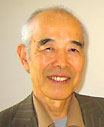
Two Poems
by Yorifumi YaguchiDuring the Second World War, I as a child experienced the air raid by the US airplanes. Since then, I have been huanted by the theme of war and peace. Jesus' "Blessed are the peacemakers" changed ;my life and I have been trying to write from this standpoint.
-
0
read more
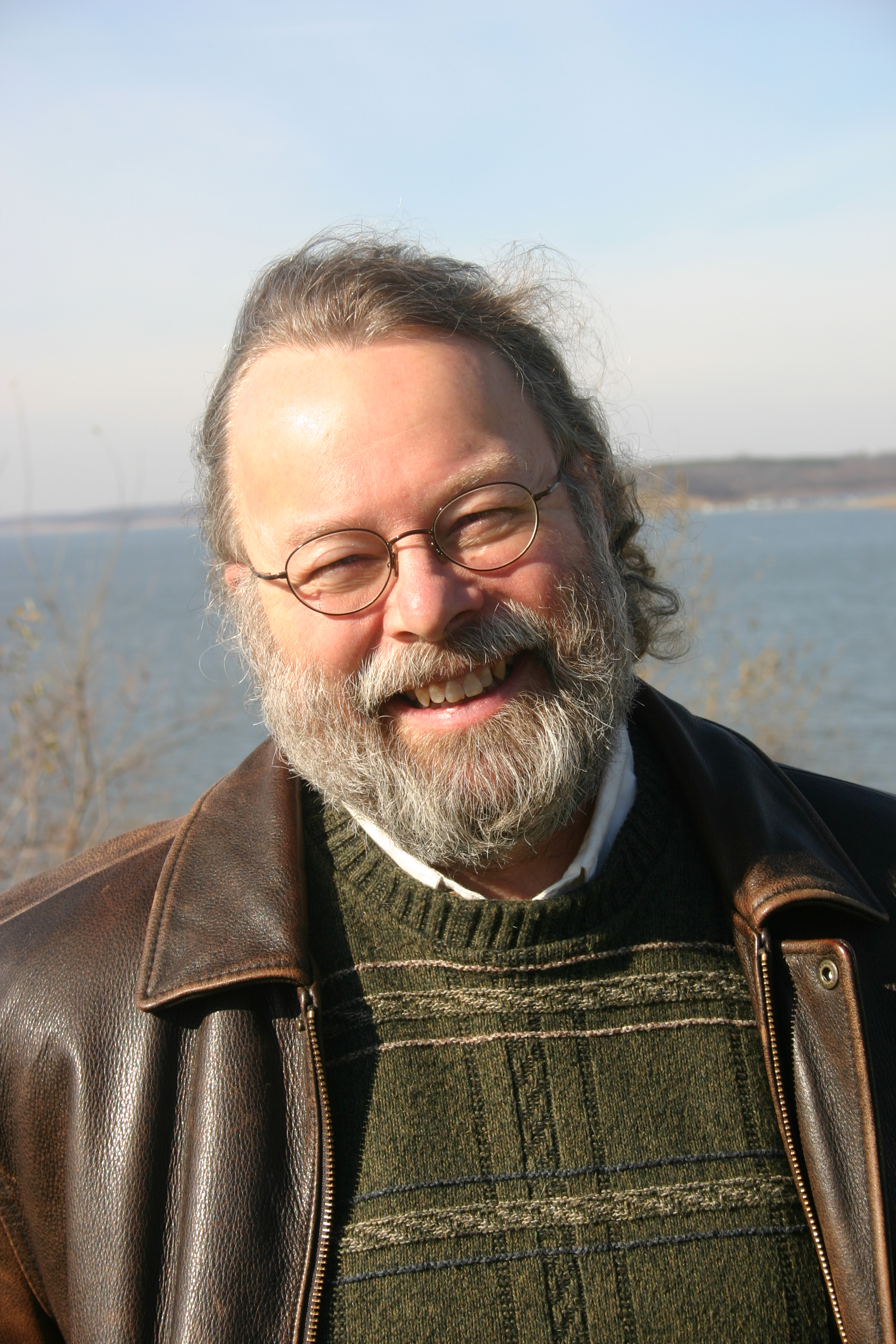
Three Poems
by Keith RatzlaffLike many of my generation of Mennonites, my introduction to “peace poetry” was Peter Ediger’s 1971 The Prophet’s Report on Religion in North America. Ediger’s flat, faux-Whitman lines and Blakean rhetorical stance defined for us what poetry should do. Once in a while I’ve wished my poems could reach Ediger’s level of outrage or political truth-telling. But I’ve also wondered if that idea of a poem “doing” something might not be a trap.
Public poets, as Richard Hugo calls poets like Auden (and by my extension, Ediger), “must always be more intelligent than the reader, nimble, skillful enough to stay ahead, to be entertaining so his didacticism doesn’t set up resistances.” That’s not to say there aren’t great, profound public poems—I’m thinking of the poems in Robert Bly’s The Teeth Mother Naked at Last, or Galway Kinnell’s The Book of Nightmares, both written during and against the Viet Nam war and at roughly the same time Ediger was raising his own voice. But that public voice, as Hugo points out, is hard to sustain. Even Bly writes that “by the end of the war, I felt some affinity gone in me, and I wanted to return to privacy rather than to go on judging, useful as judgment is.”
Which is to say, at least for me, that a poetry of peace or protest in the long run might not be declarative, but meditative; that poetry comes not from the relationship between writer and reader, but between writer and language. William Stafford said once that “every poem I have ever written is a quiet protest poem.” However much I might wish my work louder, more direct, more prophetic, more overt in the cause of peace, it’s Stafford’s attitude I’ve ended up sharing.
-
0
read more

Nickel Mines
by Barbara NickelPeace is shattered. Years later, a small poem comes unbidden, its music unearthing the unseen, twisting time and space and perspective into an oh of grief, a catalyst for peace--
-
0
read more
Three Poems
by John Paul LederachA brilliant artist once said blessed are the peacemakers. In Spanish the phrase translates literally as on a good adventure are those who work for peace. In both English and Spanish the words work and make emerge from the Greek poíésis and an etymology that brings us the modern word poetry and which originally conveyed the idea of crafting something of high quality and beauty. Perhaps a combined translation would catch the spirit: “On a blessed odyssey are those who poetically craft peace.”
My formal education and professional training in peacebuilding prepared me to analytically understand and technically respond to human conflict. Precious little of that investment provided a foundation to poetically craft peace, or what we could call the heartflow that takes notice of the unspeakable, attends to the invisible, faces and names the ugliness of suffering while seeking to transform it toward the beauty of compassionate justice. In the hardened lands of violent conflict pax-poíésis gathers like dirt in sidewalk cracks, creating liminal seedbeds that birth the unexpected.
For many years as a peace professional I stopped writing poetry. Then poems crept in on the margins of “formal” work until they found a home at the center of how I envision the craft of moving between enmities. I watch for them now -- in conversations, in my musings and mutterings, in the lived experience, these seedlings of life that defy the barrenness of violence. I have included here several poems that I wrote in the months following 9/11. Three moments. Three countries. Three conversations.
-
1
read more

Flowers for Osama
by Michelle Webster-HeinShortly after September 11th, 2001, when I was a 21-year-old waiting tables in Jackson, Michigan, a single, dark complected man with a loose-fitting suit coat ambled into my section one evening and sat down. His clear diction was tinged with a Middle Eastern accent, and his manner was unusually gracious and respectful, so much so that, as a waitress, I immediately questioned his intentions. Was he working himself up to ask for my phone number? Was he planning to walk on his bill? He began with a large bowl of soup and a plate of biscuits and corn muffins. The …
-
0
read more

Touching a New Kingdom
by Jeff GundySermon given at First Mennonite Church, Bluffton, Ohio, 9/11/2011
-
0
read more

In this issue
by Ervin BeckThe early suspicion of drama, theater and film by Mennonites is succinctly discussed by Harold S. Bender in his article on “Dramatic Arts” in The Mennonite Encyclopedia (1959). The more recent burgeoning interest by Mennonites in drama and theater is discussed in the 1989 supplement to the same encyclopedia article (1989) by Lauren Friesen, a contributor to this issue.
Ironically, two of Europe’s classic dramatists began their lives as Mennonites. The more important one is Joost van den Vondel (1587-1679), sometimes referred to as the Shakespeare of Dutch literature for his poems and verse dramas. Vondel and his wife Maeyken …
-
0
read more

Bungalow
by Vern ThiessenCopyright © 2011 Vern Thiessen
ACKNOWLEDGEMENTS
A ten-minute version of this play was commissioned and first produced by the InspiraTO Festival, Dominik Loncar, Artistic Director. It was developed in association with Pat The Dog Playwright Centre, Lisa O’Connell, Artistic Director. Other versions of this piece were developed with funding from the Alberta Foundation for the Arts. Many thanks to Susie Moloney, Patrick Lane, Rory Runnels, Hamilton Clancy, and of course, my understanding family.
PRODUCTION CREDITS
Bungalow was first presented at the Rory Runnels Studio, Winnipeg, Manitoba, July 2010. It was produced by Death and Taxes Theatre in association with The …
-
0
read more

Waiting on the Outside
by Don YostCopyright (c) 1982 Donald C. Yost
Based on interviews by Kathy Royer and Howard Zehr of 32 women whose partners served time in prison. For the contexts of the creation, performance and effects of this drama, see the author’s essay following the script.
Characters
Sophie Williams....................... late 20s
Richard Williams .................... Sophie’s husband, early 30s
Liz Butler.............................. Sophie's friend, real estate agent, early 30s
Time -- 1980
Place -- a suburban house near Indianapolis, Indiana
Synopsis
Scene 1.............................. a summer Saturday
Scene 2.............................. a late October evening and various moments in the weeks that follow
Scene 3...............................late at night in …
-
0
read more

Theatre Review: The Moonlight Sonata of Beethoven Blatz by Armin Wiebe
by Talia PuraThe Moonlight Sonata of Beethoven Blatz had its world premiere with Theatre Projects Manitoba on April 17,2011, at the Rachel Browne Theatre in Winnipeg.
Whatever images float through your mind when you listen to Beethoven’s “Moonlight Sonata” will forever be transposed, like mine, to include a prairie pioneer’s cabin interior. That is, if you attended a recent performance of Armin Wiebe’s first play, Th e Moonlight Sonata of Beethoven Blatz.
The play opens with our early pioneer, an earnest yo ung Mennonite husband named Obrum, pushing an old, beat-up piano into his humble abode. We learn that he has acquired …
-
0
read more

Hermann Sudermann, Mennonite Playwright and Novelist from the Boundary
by Lauren FriesenThe playwright, poet and novelist Hermann Sudermann was also known as the “Balzac from the East” by compatriots, and this essay seeks to establish the extent of his popularity in his time, as well as examine his Mennonite connections and the themes in many of his works.
Sudermann was born in East Prussia, near today’s Silute, Lithuania, on September 30, 1857, and died in Berlin on November 21, 1928. The facts of his life are fairly well established: Mennonite father, Lutheran mother, dropout from Humboldt University in Berlin, editor of a widely read radical newspaper Deutsches Reichsblatt (1881-89) …
-
0
read more

Hermann Sudermann: A Bibliography
by Lauren FriesenJuly 2011
I. PLAYS
A. Collected plays:
Hermann Sudermann. Dramatische Werke. 6 bd. Stuttgart: Cotta, 1923. (Cotta is J.G. Cotta'sche Buchhandlung Nachfolger, GmbH.)
B. Individual Works. Chronological sequence (publication, production and, when applicable, film dates.) When no translator is identified, the English title is my translation of the German title.
1889 - Die Ehre. Berlin: Cotta, 1892, 156pp. Production in Berlin, Lessing Theatre, November 27, 1889. Honor. Trans. by Hilmar R. Baukhage. New York: Samuel French, Inc., 1915.
1890 - Sodoms Ende: Drama in fünf Akten. Berlin: Cotta, 1891, 152pp. Berlin, Lessing Theatre, November 5, 1890 …
-
1
read more

The Merry Pranks of Friedrich Wilhelm Voigt, Mennonite Trickster and Dramatic Hero
by Ervin BeckAbout 15 kilometers south of the birthplace of Hermann Sudermann, across the Nemunas River in Lithuanian East Prussia, lies the city of Tilsit (now Sovetsk, Kaliningrad), where Dutch-origin Mennonites lived and maintained a meetinghouse west of Tilsit at Alt Pokraken.
To a Mennonite family in Tilsit was born Friedrich Wilhelm Voigt on February 13, 1849, destined to become a legendary figure in popular German lore and literature, including many films and dramas, especially the tragicomedy Der Hauptmann von Kopenick (1931), in English The Captain from Kopenick.
From the time he was 14 years old in 1864 until …
-
2
read more
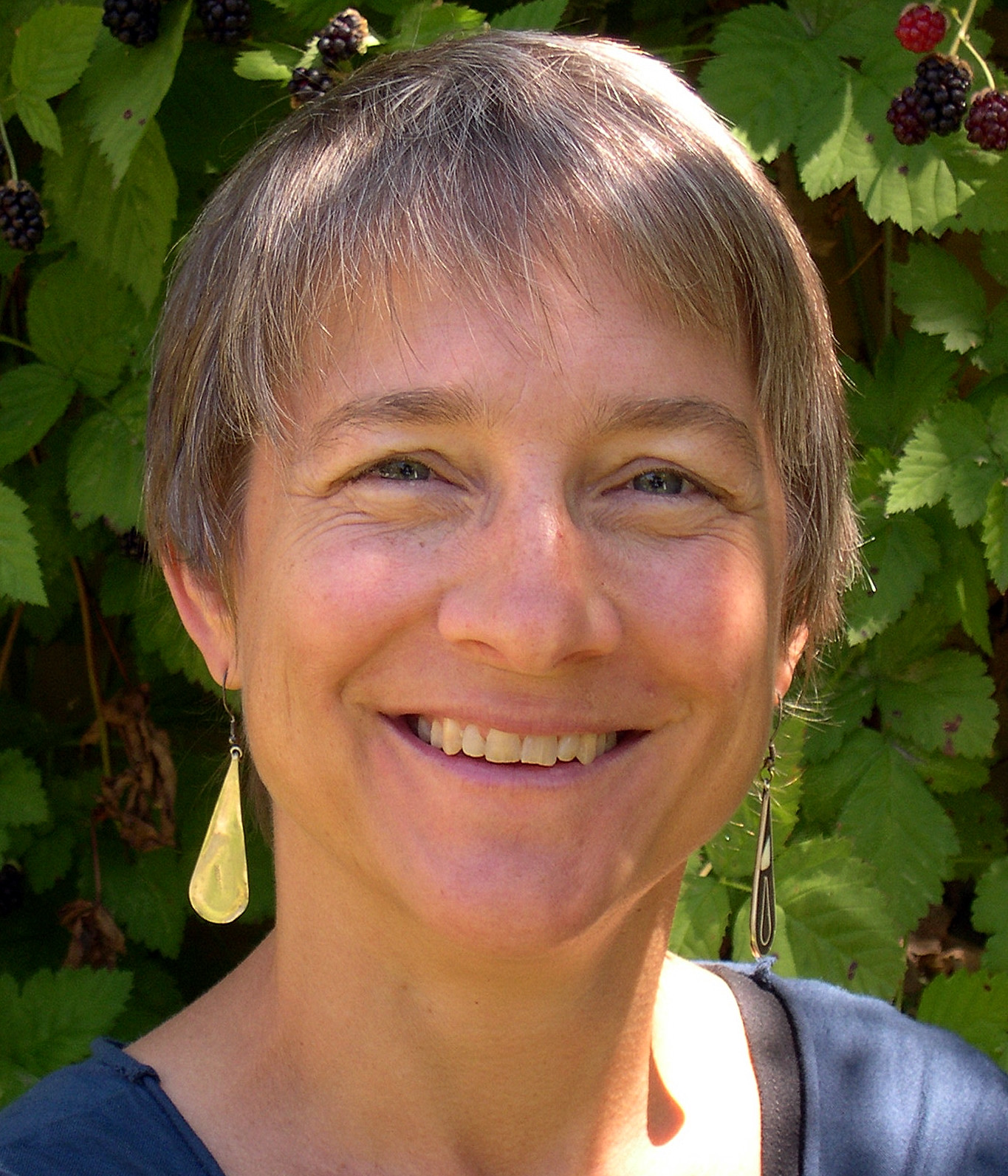
Poetry as Contemplation
by Sheri HostetlerMy journey as a poet began the day I discovered the Elysian Fields of Berlin, Ohio. I was probably 11 or 12 -- old enough, at least, to know something of Greek mythology. It was summer, and I was out by myself, walking in the dark woods on the edge of town. At one point during my walk, I looked up and saw a clearing of trees and a field of ripe, golden wheat kissed by the full light of the late afternoon sun. I looked at the field for a while and walked home.
Nothing dramatic happened when I …
-
0
read more

Writing Poetry for Worship
by Sheri HostetlerAn Advent worship leader at First Mennonite Church of San Francisco asked me if I would consider writing a series of poems to be used for each of the four Sundays of Advent. He wanted to focus the series on Mary’s Magnificat found in Luke 1, and he suggested that I use that text as inspiration. It provided a surfeit of inspiration, as it turned out. I could have written a poem or two on every one of its 10 verses. My memory is that we read the Magnificat each Sunday of Advent that year, followed by my “poetic response” …
-
0
read more

The Case of Dallas Wiebe: Literary Art in Worship
by Hildi Froese TiessenI was born to be a shepherd. I was trained to be a shepherd and I still want to be what I was destined to be. I want to sit on the ground, watch my flocks by night and wait for the glory of the Lord to come upon me. . . . Now there ain’t no pastures. And because there ain’t no pastures there ain’t no sheep. And because there ain’t no sheep there ain’t no shepherds. And because there ain’t no shepherds there’s no one out there waiting for the Messiah to come. And because no one’s waiting, He won’t come. Someone has to sit and wait. No one’s waiting and we’re all lost. – Dallas Wiebe
-
0
read more

Three Poems for Worship
by Dallas WiebeFrom Monument: Poems on Aging and Dying
Reprinted with permission from Sand Hills Press.
-
0
read more

Poised to Embrace: The Literary Arts and Anabaptism
by Malinda Elizabeth BerryI have been living, studying, and working in a seminary setting for about thirteen years. My studies have taken me to two very different seminaries as a student and I am now employed at a third, also very different, seminary. Being part of communities that talk about “formation” almost non-stop, I have relished the opportunity to consider the ways that I have been shaped intellectually and spiritually by the literary arts.
When I began my undergraduate degree, I chose to major in history, in part, because it was my sense that we Mennonites reflect theologically through historical study, and I …
-
0
read more

What Language Shall I Borrow?
by Rebecca SloughWorship is a public event in which a group of people share an experience of language and contemplation rooted in the Biblical text. Other literary forms—hymns, litanies, responsive readings, dramas, stories and poems—can play a role to enhance our experience of the Word. However, it is easier for most worshipers in a public setting to find resonance between scripture and familiar narratives than between scripture and much contemporary poetry. How often we hear a text matters in our capacities to appropriate it.
Many more strategies are needed for congregations to use poetry, in particular, in the context of worship in …
-
0
read more

A Complicated Kindness—The Contribution of Mennonite Authors to Canadian Literature
by Martin KuesterIntroductory presentations on the topic of Canada, Canadian studies and Canadian literature traditionally pose the question: “What is Canada? How do you define this country?” Canadians have often asked this notoriously famous question of themselves. Ever since the so-called “renaissance”—both a literary and a national renaissance—following in the wake of the 1967 centennial nationhood celebration, the Canadian identity question has been answered a hundred times and, thus, has almost become a cliché.
In this essay I want to talk about a group of Canadians who do not quite correspond to the stereotypical image we have of Canadians, nor to the …
-
1
read more
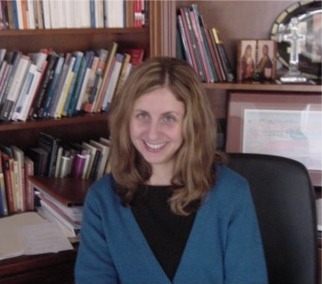
Featured Poet: Katie Lehman Pierce
by Katie Lehman PierceGarden Talk
In western Connemara, County Galway, Ireland, a Victorian walled garden stands on the grounds of Kylemore Abbey. The abbey, formerly known as Kylemore Castle, and its elaborate estate was built by a wealthy doctor in the 1860s. Since the 1920s, however, Kylemore has belonged to a community of Benedictine nuns. One particular nun and I worked within the mostly unkempt and hidden six-acre garden, tending to a small apple orchard and vegetable beds. The mystique of the garden and its history, including the Victorian women and gentlemen who had once traversed there, was riddled in the lavish undergrowth. …
-
0
read more

Rudy Wiebe’s Reconstruction(s) of the Indian Voice
by Wolfgang HochbruckThis essay originally appeared in RANAM: Recherches Anglaises et Nord-Américaines 22 (1989), 135-142, published by the University of Strasbourg
-
0
read more

“The tail end of a five-hundred-year experiment that has failed”:
by Christoph WiebeTranslated from the German by Gerhard Reimer
-
5
read more

My Mennonite Identity
by J. Daniel HessMy Mennonite identity is like a thread made of strong stuff, although at places the thread has grown thin, but then it has thickened again. This thread isn’t stretched out in a straight horizontal like the 40th parallel. Rather, like a pilgrim’s path, the line meanders and dips and rises and crosses over itself and sometimes gets lost in thickets and even intersects occasionally with modern highways. Such a zig-zag route has resulted in a fabric somewhat like a shawl thrown lightly over my perceived self.
If you want to follow this thread, you begin in a simple post-Depression Mennonite …
-
0
read more

Three Garden Poems
by J. Daniel HessRobins
Since you can’t
wait any longer
I went to Ace Hardware
paid $42.50 for an orchard net
got out two step ladders
set the big one on the west side
the little one on the east
of the serviceberry
then climbing the big ladder
higher than I like
I pulled the net up and over
using clothespins to close gaps.
That’s why some of you crashed
before you reached dessert.
I mean no nastiness,
just a bit of sharing.
On Monday I’ll pick
two pails, enough for cereal
and two jars of jam. Then
I’ll call Teddy and Eileen … -
0
read more
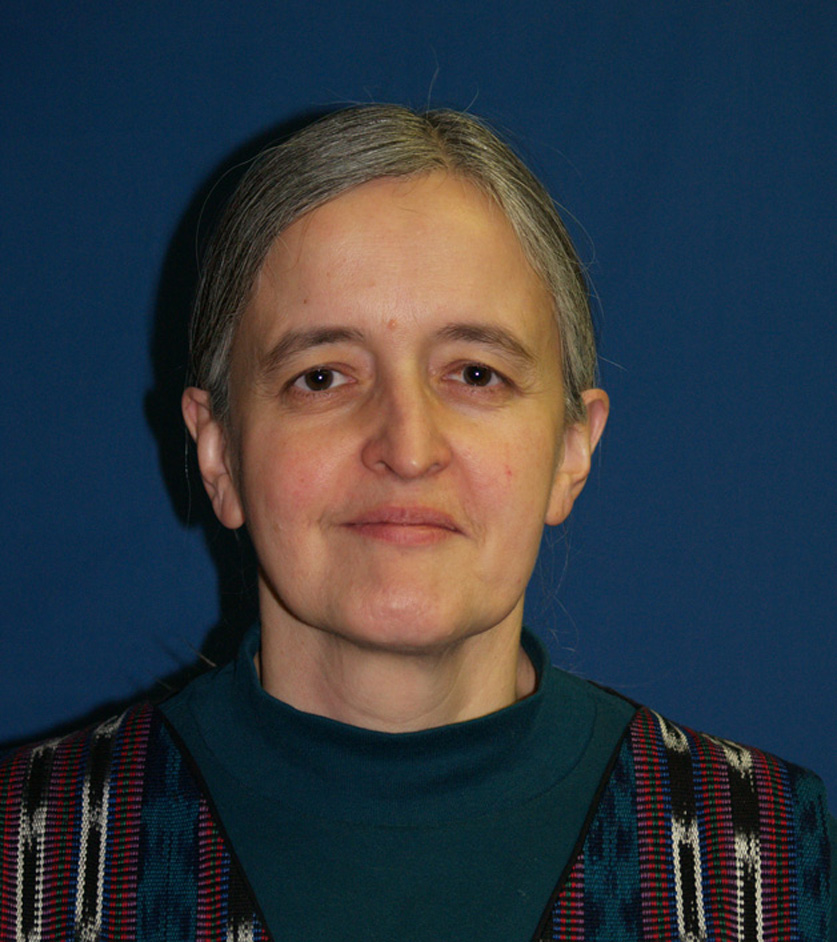
Branching Out from One Foundation
by Martha Yoder MaustThey say that Menno Simons’ favorite Bible verse was 1 Corinthians 3:11: “For no one can lay any foundation other than the one already laid, which is Jesus Christ” (NIV). Menno might be dismayed to find a church calling itself Mennonite. He might have been happier with the Meserete Kristos Church in Ethiopia, which set aside the name of Menno for a name that means “Christ Is the Foundation.”
Menno might also be surprised to see that the Mennonite Church, after times of persecution and withdrawal, came to be identified with certain ethnic groups. My own ancestors were Mennonite for …
-
0
read more

Gleaners
by Martha Yoder MaustThe mural on the west wall of the old Gleaners Food Bank building depicts men and women bending over in a posture of perpetual backache, strong hands picking up grains under a hot sun. Inside the building, more privileged hands put in their service hours lifting and sorting the donations from churches and postal customers, to be distributed to food pantries all over town.
I walk along the Monon Trail beside the mural, picking up aluminum cans to recycle. The shirt I’m wearing is one I found on the sidewalk along 25th St., and last month I found a …
-
0
read more

Bogart and Being Mennonite
by Ryan AhlgrimAt the end of 1961, when I was four years old, my family moved from one suburb of Chicago to another, and my mother sought a new church for our family to attend. She and my father had been raised Lutheran, and I had been baptized as an infant in the United Church of Christ, but denominational labels didn’t really matter to them. My mother simply wanted to find a congregation that was friendly, genuine and did not teach that her stillborn baby was in hell because he hadn’t been baptized (as a previous pastor had informed her).
One Sunday …
-
0
read more

Mom’s Rock ‘n’ Roll Party
by Ryan Ahlgrim“I’m dying,” said Mom matter-of-factly, sitting on the couch in my family room with my wife and children gathered around her.
I was not surprised. She had suffered a heart attack six months earlier, and I had heard a rumor that an x-ray revealed a tumor in one of her lungs. Considering that she had been living in a nicotine fog for all of her seventy-seven years, dying from a cigarette addiction had always been a strong possibility. Even as a little boy, I remember her going to the bathroom periodically to hack her guts out. But what had made …
-
0
read more

An Aggressive Mennonite
by Rodney DeatonI am an aggressive man. And I am a Mennonite.
Live with it.
A bizarre way to begin an essay on Mennonite identity, I agree. Please feel free to substitute a cognate of your choosing should the word aggressive be too, well, aggressive for your taste. “Assertive” has always been au courant in empathic circles. “Zealous” might work for the ethically minded. Admittedly I have always had a soft spot for “brassy.” Yet pardon me if I stick with my original. After all, it seems counterproductive to check self-determination against the sensitivities of others.
But, then, maybe that’s the Mennonite …
-
0
read more

The Farm Wife
by Shari Miller WagnerThe Farm Wife Sings
to the Snake in Her Garden“Bringing in the Sheaves”
is so you know I am coming
to pluck green beans in the darkwhere you dangle. O garter snake
you are the refrain that returns
with every verse I sing. I spy youin the watermelon’s ropey
vine or the smooth handle of a hoe
half-hidden in marigolds.“Be Thou My Vision,” I hum,
cutting a cabbage head
and you jolt like an arrowfrom the crooked shadow
of my arm. Against the picket fence,
your discarded skin hangsthin as silver tissue once …
-
0
read more

Don’t Do It! Advice on How to Sort of Make It in Hollywood
by Collin FriesenIt’s overcast today, which is the closest thing to “weather” we’re going to see for a few months. I’m sitting in my soon-to-be repossessed living room, looking up rumspringa on the internet, prepping for an interview I’m doing next week with Spike TV for a show called “1001 Ways to Die.” The show recently posted a message on Craigslist looking for a “Mennonite,” assuming, quite rightly, that a posting looking for “Amish” would be self-defeating. As a former reporter, I know it’s lazy to assume the two groups are interchangeable, but they’re paying, so who am I to argue?
The …
-
0
read more

"Every play should pose a good question": An Interview with Vern Thiessen
by Hildi Froese Tiessen Vern Thiessen in 2003 won the Governor General’s Award for Drama for his play Einstein’s Gift. The author of more than 25 plays, he is one of the most widely produced playwrights in Canada. In 2010 his play Lenin’s Embalmers was well received in New York City when it was produced by the Ensemble Studio Theater. Its first Canadian production opened October 29 in Toronto. It will be translated and produced in Warsaw and Tel Aviv. The script will be published in 2011 by Playwrights Canada Press, which has also published Thiessen’s Blowfish (1998), Apple (2002), Einstein’s Gift (2003), and …
Vern Thiessen in 2003 won the Governor General’s Award for Drama for his play Einstein’s Gift. The author of more than 25 plays, he is one of the most widely produced playwrights in Canada. In 2010 his play Lenin’s Embalmers was well received in New York City when it was produced by the Ensemble Studio Theater. Its first Canadian production opened October 29 in Toronto. It will be translated and produced in Warsaw and Tel Aviv. The script will be published in 2011 by Playwrights Canada Press, which has also published Thiessen’s Blowfish (1998), Apple (2002), Einstein’s Gift (2003), and … -
1
read more

Five Poems
by Charity Gingerich“Currently life is rich and terrifying, and I am finding that writing poetry is a most useful expression of my faith, which right now includes exercising my doubts. Doubt, after all, is a necessary component of faith. How else do we become sure of truth?” – Charity Gingerich
Charity Gingerich’s poems exploded upon us like a mature shrub of lilacs in full flower. The Journal of the Center for Mennonite Writing is pleased to present a selection of these poems for the first time in this issue. Of the first three poems included here, Gingerich writes: “ ‘Some Days Walking Alone,’ ‘Deserving’ and ‘To Sugar Grove Road’ came at the end of an intense, almost visceral cycle of Lenten prayer poems I wrote this spring. I had not realized until now how ‘useful’ writing poetry could be beyond merely intellectual and artistic stimulation. It became an act of the body that nourished the spirit.”
With their long, lush lines, Gingerich’s poems reveal a passion for language and life that is distinctive and compelling, and a sensibility that is steeped in the Mennonite tradition of service to others and a reverence for the natural world.
Austin Hummel, editor of Passages North, has said of Gingerich’s poems, “[they are] ambitious, backward-glancing poems. They speak with an exile’s voice, though with a heart trained not on the self, but on others.” Humble but eager to share her poetic discoveries, Gingerich said of Hummel’s response to her work: “At first I felt strangely ‘exposed,’ as if someone—and a stranger no less—had uncovered a secret of mine. But my consternation mellowed when I realized that this really is a confirmation of what I hope to do/be as a poet, as a person. I want my work to transcend, not just in that otherworldliness that is poetry (sometimes), but I want to transcend the “I-myself,” the “I-as-narcissist.” I want my poetry to be more than just about me.”
We concur that these fine poems offer many rewards to readers. We hope you will enjoy this gift of poetry: lilacs in November. -- AH
-
0
read more
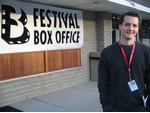
The Mennonite Screenwriter
by Sidney KingScreenwriters tend to spend a lot of time thinking about titles.
In the image-conscious and attention span-challenged world of popular movie-making, a script’s title is the shorthand the reader or producer uses to infer all sorts of things about a script without having to turn a single page: genre, commercial viability, stakes, story hook, character.
A good movie title will tell you exactly what the movie is, and will do so with very few words.
Jaws...good. Ghostbusters...good. Titanic...good.
Potential ticket-buyers don’t even have to look at the poster or watch the trailer to know that they’re probably …
-
0
read more

Misery & Miracles: Our Brief Hollywood Career
by Don Yost and Joel KauffmannPart 1 – From How It All Started to the Peaks and Valleys
Joel:
I got into writing screenplays long before I knew it – or knew that writing screenplays was a craft or career. From the time I snuck into my first movie as a teen (from the corrupting influence of non-Mennonite friends), I was hooked. Movies seemed everything that the rural Mennonite world of the early ‘60s was not: loud, brash, colorful, dramatic and emotive. At first, movies also seemed to lack seriousness. Then, just before I left for college, The Graduate hit the silver screen, proving that …
-
0
read more
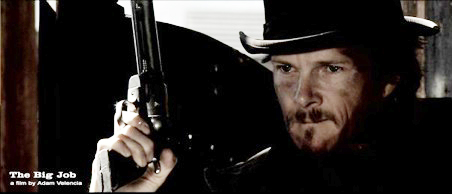
White Nights, Black Mondays
by Jeremy FreyAudition: You get what you risk.
One of many cattle calls in the late ‘90s found me landing an extra role in response to the local Casting Director’s hotline: “We’re looking for ‘real people,’” code for non-actors. After years on stage, as an upstart film actor, I was on my way to some of the most rewarding, exciting work possible. Harpo Productions to co-produce with Disney Films. Oprah Winfrey to star alongside Danny Glover, under the direction of Jonathan Demme. And all this in Philadelphia, home of only a few non-independent films each year.
Working on film sets quickly overshadowed …
-
1
read more
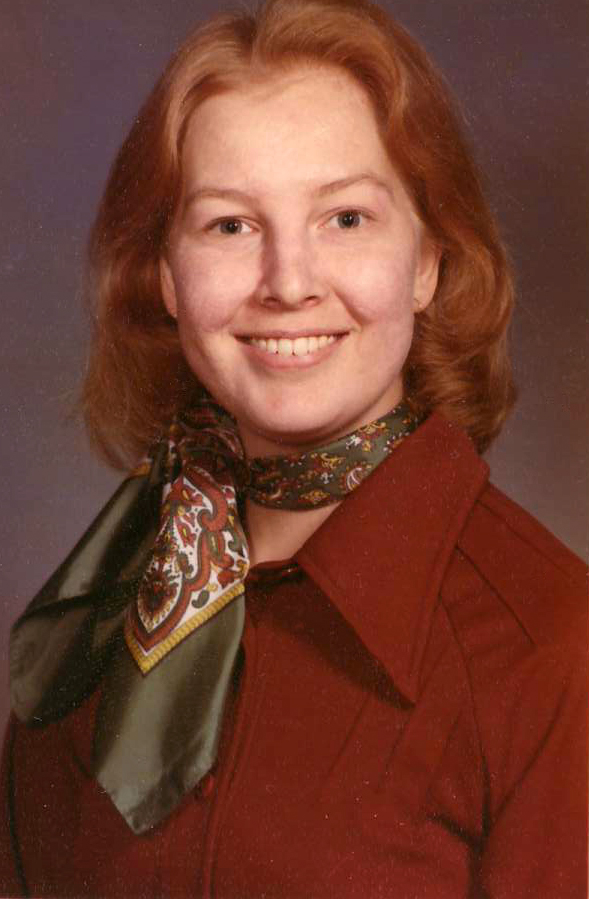
SELECTED POEMS
by Christine Ruth WiebeThese poems were selected from a manuscript of over 100 poems culled by Katie Funk Wiebe and Joanna Wiebe from Christine Wiebe’s papers. This thematic selection of poems suggests the range of Christine’s interests and the depth to which she probed them. Her poems are deeply sensitive to language as a tool of creation, disturbance, and integration. The section titles—Words, Father Loss, The Body, Nature’s Order, Exploration, Oblate, Dreams—have been created by the editor.--AH
-
0
read more

How to Stay Alive
by Christine Ruth WiebeChristine Wiebe wrote this book with the hope that her personal responses to her illness would help those in similar circumstances, or those close to people living with chronic illness. A limited edition was produced for her family and friends. We are please to publish excerpts from it with the permission of Katie Funk Wiebe. All of the illustrations are also by Christine Wiebe--AH
-
0
read more

A Few Words for Christine Wiebe
by Jeff GundyWe arrived at Hesston College in fall 1980, almost exactly thirty years ago. The job had come up unexpectedly—I had planned to stay in grad school and finish my dissertation—but then, as now, times were tough in academia, and who could pass up actual, full-time employment? My lofty ABD status got me a corner office in the library, with not one but two narrow windows. My wife Marlyce had been hired to type letters and answer the phone for the religion department. We felt like we were finally joining the grown-up world.
In the office next to mine, I soon …
-
0
read more

Her Spirit, a Small Bird with Color
by Ellen KroekerShe turns fiercely to her right,
Curling to the lost comfort of sleep or rest. She searches
For the childhood position,
Its sweet familiarity, even
As her breath becomes ragged.
Demerol dims the pain yet she moans.
Here lies my friend after a life
Of doctors and medicines
And dismal diagnoses. Here sister
Leans over her, stroking her hair,
Kissing her cheek. For her sister,
She rests, her breath smooth to a matched
Rhythm. The room becomes spacious.
She opens her eyes and smiles
Such a radiance, much like
The flash of a scarlet tanager
Or a goldfinch in a darkening
Woods. She knows this is
Happening. She curls herself
Into our hearts' nests and then,
Like a bird off a branch,
She springs forth.
-
0
read more

Writing, Interrupted
by Ellen KroekerThe poetry of Christine Wiebe is in piles on the table. There are multiple, undated versions, organized in various ways. It is as if she has stepped away from her work, intending to come back with an organizational strategy. But of course she is now ten years gone from this earth and she is not coming back to organize them, to decipher the meanings or the preferred versions. Her life had many major interruptions, interruptions by serious illness and several near death encounters.
So the reviewer is denied the authorial intent or even a chronology that allows pontifications about the …
-
0
read more
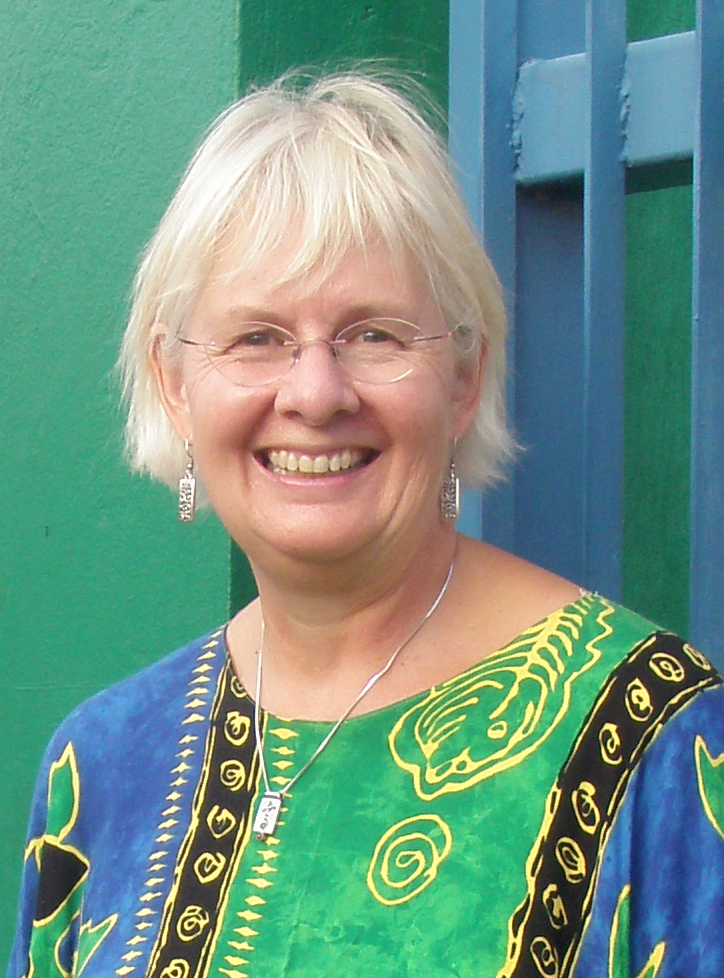
Christine the Storyteller
by Joanna Wiebe“As a young child,” Christine wrote about herself, “I was so quiet and reticent that my maternal grandmother thought there was something wrong with me. I suppose I lagged on those charts that they now use to track baby’s progress, at least in terms of speech. But thrown in the Wiebe household, always thick with books and conversation, I eventually learned to talk and read children’s books.” She adored Blueberries for Sal, and Blue Willow, and many more.
The trauma of losing her father when she was six years old reinforced Christine’s tendency to turn inward. Although she …
-
1
read more
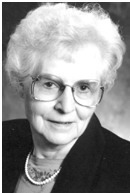
“Bread and Roses, Bread and Roses”
by Katie Funk WiebeHearts starve as well as bodies;
Bread and roses! Bread and roses!
Give us bread, but give us roses.
Christine Ruth Wiebe’s life was exemplified by this 1912 fragment of a protest song found in her files on a scrap of paper. Through the decades many individuals and groups picked up the refrain. She knew her body needed bread to survive, but also that her spirit withered without the beauty of friends, words and spiritual nurture. She wanted both bread and roses.
Childhood and early education
She was born into a Mennonite Brethren family on Nov. 19, 1954, while we …
-
2
read more

Bibliography of Christine R. Wiebe’s Writing
by Katie Funk WiebeESSAYS:
“Pacifist aim is peace,” Tabor College View. 12 March 12 1976.
“The Year Daddy Died” in Alone: A Widow’s Search for Joy by Katie Funk Wiebe. Tyndale House Publishers, 1976. (Also in British, South African, German and Finnish editions)
“How did I get into this? Or, why I joined MCC. ” The Christian Leader, 31 July 1979, 5-6.
“The Year Daddy Died. With Magazine, January 1978.
“‘The Caging of Chris” in Good Times with Old Times: How to Write Your Memoirs by Katie Funk Wiebe, Herald Press, 1979.
“Irene L. Bishop,” “Cornelius Wall,” in Something Meaningful …
-
0
read more

Artist’s Statement
by Sylvia BubaloMay 11, 1973
-
0
read more

A Conversation with Sylvia Bubalo
by John BlosserOctober 29, 1992
-
0
read more

Point of Entry
by Sylvia BubaloSeptember 2010
-
0
read more
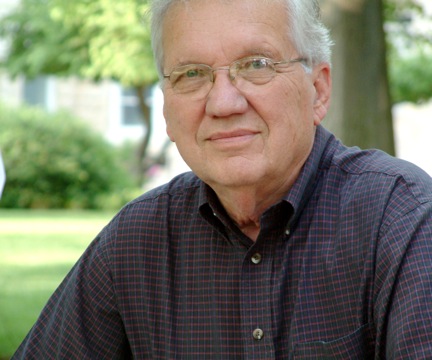
Remembering Sylvia
by Bob RegierJuly 2010
-
0
read more

A Response to the Art of Sylvia Gross Bubalo
by Dawn Ruth NelsonAugust 2010
-
0
read more

Selected Poems
by Sylvia BubaloThe major long poem, “From the Turquoise Sky 21st Century You,” opens the selection. It is followed by a selection of shorter work, chosen from a manuscript of over 500 pages by Miriam Kirchner Gross. The contemporary epic, “A History of St. Charlie’s Chicago,” concludes this selection.—AH
-
1
read more

Sylvia Gross Bubalo, Artist and Poet, Born into a Mennonite Tradition
by Leonard GrossSeptember, 2010
-
3
read more

Chasing the Bonnet
by Beth GraybillA few years ago, when conducting dissertation research on Amish women in business, I visited a gift shop and noticed a rack of romance novels with pictures of Amish women on the cover. I asked the Amish business owner, “Do you sell a lot of these?”
“Yes,” she said, “the tourists like them.”
“Do Amish buy them?”
“Well,” she said, “a lot of people read them.” Later, when I was giving an earlier version of this essay at a public conference at Elizabethtown, an Amish grandfather told me, “We would have some of these books in our homes.”
The genre …
-
0
read more

Chapter 1
by Judy Clemens“This here’s my daughter Katie. She’s thirteen, and lives for marching band. Plays the flute. You wouldn’t believe the way they work them kids. She’s in better shape than I ever been.” Evan the trucker laughed and patted his sizable gut, which almost touched the steering wheel of the semi.
Death gave out a snort, chin to chest, mouth open. The trucker’s conversation obviously wasn’t interesting enough to keep the Grim Reaper awake, and the lack of traffic on the sleepy highway gave no relief from the steady clicking of the tires on the pavement, or the view of flat …
-
0
read more

Making Ghosts
by Karl SchroederWhat stands out in memory is that first picture of Maier's idea. I am standing at her right shoulder, and she leans forward over the RISC station and taps the mouse a couple of times. The nineteen inch monitor lights up with a three-dimensional image like a mist of caged light.
"See there," says Maier. "That's a thought."
"It's pretty," I say, quite uncomprehending. "This is 24-bit colour, right?"
"Forget the screen, Graham. Look at what's in it." And she tells me what I'm seeing: a picture of her brain's synaptic activity, taken while she thought about her husband.
"We …
-
0
read more

Mennonite and Amish Serial Fiction: An Informal Bibliography
by Ervin BeckJoe Springer, curator of the Mennonite Historical Library at Goshen College, wants the library to contain all books ever published by and about Mennonites, Amish and Hutterites. He not only knows the MHL catalog, but he combs both rare book and new book catalogs and seems to remember whatever he has seen.
So when I was writing “In This Issue” as an introduction to serial fiction by and about Mennonites and Amish, I wanted to include a paragraph listing of all such authors’ names. I knew of eleven. I sent the list to him, asking him to add any others …
-
2
read more

Poetry Feature: Six Poems
by Jeff GundyWe are pleased to publish for the first time a selection of six poems by Jeff Gundy, author of the award-winning Spoken Among the Trees (University of Akron Press 2007) and four other poetry collections. In these poems the worlds of popular culture—suggested by references to Ronald Reagan, Jerry Garcia, Bob Dylan—intersect with poetic forms inspired by Rainer Maria Rilke and Georg Trakl to create a meditative collage. The homage to these Austrian poets is perhaps a nod to the fruits of Gundy’s Fulbright Lectureship at the University of Salzburg in 2008. In the final poem, "Biblipgraphical Lament," Gundy plays with the ways in which Stanley Hauerwas's glosses on John Howard Yoder inspire his own meditations.
Of these poems Gundy says: “I find myself trying to be mindful of so many things at once: the need to reckon somehow the almost unspeakable intersections, griefs and privileges of ordinary American life, to pay attention and homage to the ten thousand things of this world, to honor and to resist. At the same time, the language makes its own demands. As it is read and said, the poem should somehow give pleasure in its sounds, its shapes, its images, even as perhaps it troubles. And all this happens, of course, in the stew-pot of my particular set of history, traditions, commitments and obsessions.”
The poems are both playful and edgy—not entirely at ease in the world. Gundy nudges his readers to attend to the contradictory images they daily imbibe as members of a media culture. In this way his poems are deeply Anabaptist, searching for wholeness—although preferring honesty to false piety—in the midst of a life permeated with the profane.
-- A. H.
-
0
read more

Review Essay: P. L. Gaus’s Ohio Amish Mystery Series
by Kyle SchlabachBlood of the Prodigal (1999), Broken English (2000), Clouds Without Rain (2001), Cast a Blue Shadow (2003), A Prayer for the Night (2006), Separate from the World (2008).
-- Athens, OH: Ohio University Press.
-
0
read more
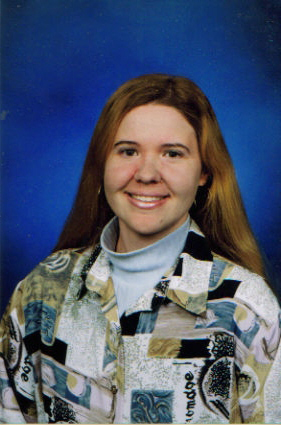
“A Whisper of Satin”: The Infant Dress Leitmotif
by Michelle ThurlowAlthough best-selling inspirational novelist Beverly Lewis is understandably credited with "g[iving] birth to" the lucrative Amish fiction genre in 1997 with the release of her inaugural adult novel The Shunning (Gorski, par. 9), Lewis was not the first author to write about horse-and-buggy Plain folk, nor was she the first to pen romance novels about them.
As Steven Nolt points out, "The dawning of the twentieth century brought the prospect of new relationships between modernity and a people [the Amish] who stood apart from its promises and goals" (257), as illustrated by the publication of a book called …
-
10
read more
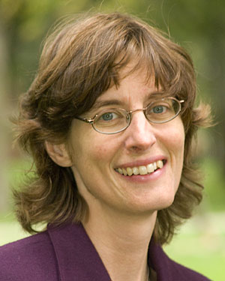
Passing on the Faith: Mennonite Writing for Children
by Kathy Meyer ReimerMennonites claim a strong heritage of women writers--in children’s and adolescent literature. In examining the trends of publishing at Herald Press, the book division of the Mennonite Publishing House at Scottdale, Pennsylvania, a number of distinct waves of literature become clear. I will examine the trends from Herald Press, not because it is the definitive press for Mennonite authors or illustrators, but because it has consistently published literature for children over the past 60 years. In each era of publishing, I will suggest some examples. They are not comprehensive, but representative of a specific genre, emphasis or style of writing …
-
0
read more

Some Things I Think About While Illustrating
by Ingrid HessTo see Ingrid Hess's colorfully illustrated article about her work, click on the title above.
-
0
read more

On Frosting and Broccoli
by Ingrid HessAs presented to a meeting of Jesuits at “Search for Meaning,” the 2010 Pacific Northwest Spirituality Book Festival, Feb. 13, 2010. Also at College Community Mennonite Brethren Church, Fresno, April 4.
-
0
read more

Schnee, 1939
by Barbara NickelThe sky makes him stumble out of the barn. That excuse would make Papa snort. He’d say, “If not the sky something else -- a bucket, a clod of frozen horse manure -- my son would stumble over a fly in his path.” But just out the barn door, Art’s on his knees and can’t take his eyes off the sky, huge and strange with something about to happen. There’s a heap of dark clouds, like waves tossing a battleship that’s shelling enemy ships trying to hide in enemy clouds.
Shelling the enemy. He should try to erase that …
-
1
read more

Poetry Feature: Six Poems
by Sarah KlassenCMW is pleased to introduce readers to a group of new poems by award-winning Canadian poet Sarah Klassen, the “featured poet” of this issue. In these six poems Sarah explores the mystical possibilities indwelling in the moments of a life lived with full presence. Natural imagery evokes the prairie landscape of Winnipeg and its surroundings. In “Prairieology” the landscape becomes suffused with spiritual significance—offering, in the spirit of Emily Dickinson, a natural language for the divine that both grounds and replies to theology. “Rising” and “Deep Bay Reflection” suggest the poet’s awareness of the interconnection between all created things, evoking the tension between what we can and cannot see, as well as what we refuse to see. In “After the Fall” the poet is forced to remember her bodily limits as she skis after an accident—aware of the brain’s mad flights of fancy as well as its keen powers of observation. “Bird” invites the reader to meditate on the ways in which we invest birdsong with human longing. “On Poverty” challenges viewers to investigate their attitudes towards human nature. –A.H.
-
0
read more

Five Sarabandes
by David WrightPoems by David Wright
-
0
read more

My Small Books of Bach
by David Wright"A real diehard, indestructible, irresolvable obsession in a poet is nothing less than a blessing," writes Tony Hoagland. "The poet with an obsession never has to search for subject matter. It is always right there, welling up like an Artesian spring on a piece of property with bad drainage.
- Tony Hoagland, Real Sofistikashun
As I type this, music pours through my headphones, a Bach suite for unaccompanied cello, recorded by the great Pablo Casals in the middle of the last century. Hearing Casals play on my iPod, I can’t help but think of the time I heard this same …
-
0
read more
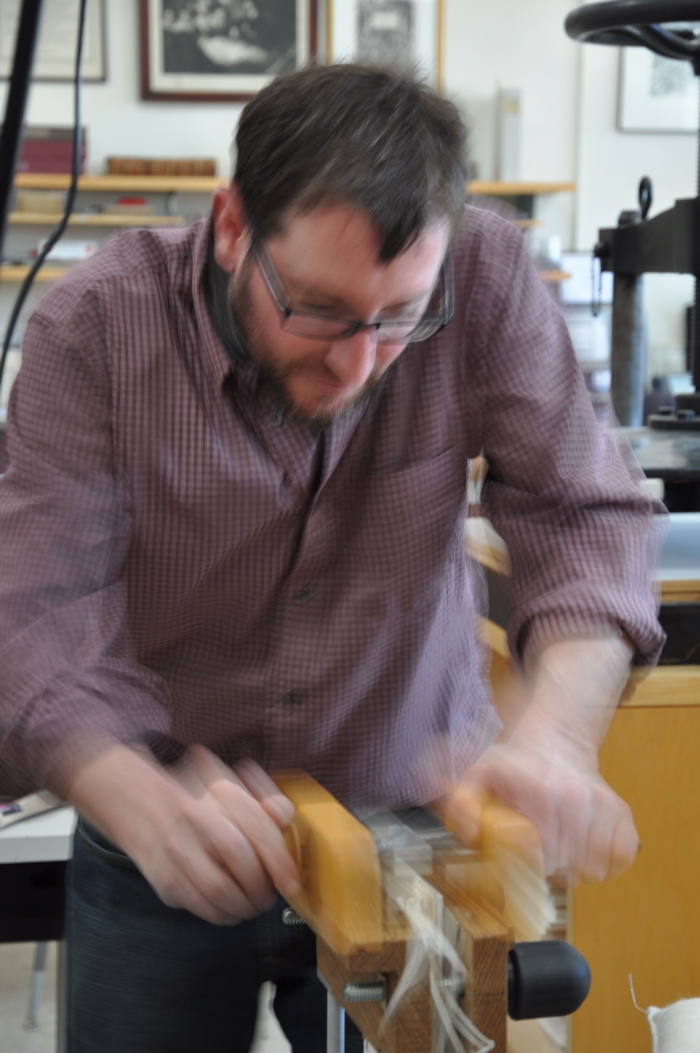
Outside of the Text
by Jeffrey S. PeacheyA book conservator often enters into public perception heavily colored by, and often confused with, romantic notions of a “Master Craftsman,” “Master Bookbinder” or “Master Restorer.” In a world where many use their hands only to tap at a keyboard or lift a cup of coffee, the idea of a craftsman seems refreshingly simple, a bit anachronistic, very poetic and entirely appealing. Fortunately (or perhaps unfortunately!) these romantic ideas of a bookbinder bear little resemblance to what I do.
Although the terminology is somewhat debatable, in North America a bookbinder is usually someone who makes new fine bindings, or binds …
-
0
read more

Publishing: The Seeds of New Growth
by Jane Hiebert-WhiteSometimes change creeps up on you, slowly, without clear signposts marking the shift from point A to point B. Other times, change detonates – blasting a hole in what was and clearing the way for the new.
From my vantage point as a publisher at a scholarly journal in 2010, the bomb of disruptive innovation has gone off. The casualty list in the world of publishing is staggering: newspapers, newsweeklies, journals, consumer magazines.
“Not Gourmet,” I moan! I have box upon box of back issues. Okay, they’re up in the attic. At my parents’ house. I can always go …
-
0
read more

A Series of Fortunate Events: Becoming an Academic Librarian
by Marta BrunnerI didn't set out to be an academic librarian. In fact, one might say that the option was often literally staring me in the face, but it never occurred to me to consider librarianship as a career. Only through a series of fortunate events did I end up in what I think is my perfect job.
Why do I like academic librarianship so much? I get to teach, I get to do research, I get to write, I get to buy books and scholarly resources. I get to bring order to apparent chaos. I get to work with people in …
-
1
read more

Chopsticks
by Dora DueckThe year I was eleven and Danny was ten, our parents enrolled us in piano lessons with a woman named Mrs. Jackson, who lived in the next town over. She was a plump, careless woman and was, perhaps, the only person in the area available for instruction of this kind. Even as a child, new to the instrument, I realized the limitations of her musical gifts. She laughed a great deal and seemed to clamor over the keys.
After Mrs. Jackson had exhausted our lessons before their allotted time, she showed off on the piano while we watched “I Love …
-
0
read more

The Day I Saw Bigfoot at the Zoo
by Ryan Ahlgrim
The special invitation came in the mail. Inside an oversized envelope, on a cream-colored heavy stock card, embossed lettering announced:
The Indianapolis Zoo is proud to present
BIGFOOT!
Be among the first in the world
to see this legendary creature
on display in a beautifully prepared exhibit.
The date and time of the grand opening followed—along with the jacked-up price. Without hesitation I marked my calendar and sent in my online reservation.
Bigfoot had been captured by two amateur hunters the previous summer deep in the Oregon woods. Gordon Buller and Timothy Krennick became overnight celebrities as they retold the …
-
0
read more

His Baby Bird of the Day
by Linda Wendling…if your killer is the nicest person you know, it is time to move away…
On my very last day--this day Turner Hadden is coming to kill me (but he doesn't know it yet)--I can’t concentrate on yeah-I’m-about-to-die because I am (weirdly) remembering the day Jesus appeared at my window and pressed my purple feet into his armpit. But of course nobody but me believes in this. But I know what I saw. I. DID. NOT. MAKE. HIM. UP.
Anyway, this day I am supposed to be out on the street, working, but Cheyenne’s “Frontier Days” are over, summer is …
-
2
read more

From "The Book on Fire"
by Keith MillerExcerpt: The Library of Alexandria
In tremendous caverns, bookshelves lifted tier upon tier into the gloom. Long ladders were affixed to the shelves, which I climbed, up to the ceiling. I perched there at the edge of a cliff of books, and looked across the canyon. It was as if a river, in carving its valley, had exposed strata of titles. Other rooms were mere nooks, no bigger than a cupboard, with space enough for a single bookcase.
I read impossibly gorgeous scripts. Scripts in which each hieroglyph filled a page and took a day to write, but could express …
-
0
read more

From "The Man in the Green Plaid Sport Coat"
by Tim StairChapter 1
Be careful at family reunions. I wouldn’t have gotten stuck in a basement in South Bronx with a gun in my hand if it hadn’t been for a conversation at my family reunion. So, in one sense, this story is my Uncle Pastor Lester’s fault.
I’d gone to the reunion to try to reconnect with family, and see if I could dig up a little work. Work had been slow. I own a business: Finders-Keepers. I find things for people. Seriously. Want to find that rare 1800’s armoire to finish off your penthouse bedroom? Or want to reconnect …
-
0
read more

From "The Other Side of the River"
by Janice L. DickChapter 1
Alexandrovka, Slavgorod Colony, Western Siberia — 1926
The schoolhouse door burst open, ushering in a cold March wind and two Soviet officials, their guns directed at the group of young adults gathered for a Sunday afternoon songfest.
Luise Letkemann’s fingers froze on the strings of her mother’s violin, and her bow skittered off the strings as she whirled to face them. From the corner of her eye she saw Daniel move across the room to her side. A frown had replaced the look of love that had lit his eyes a moment ago.
Luise slipped the violin beneath …
-
1
read more

From "Foot of Pride"
by John LiechtyChapter 7: In This World
Fretz – “Mister John” to his students -- holding a degree in literature from Wolverine State University, with a certificate on the side to teach English as a foreign language, hunches in an effluvium of garlic over a banked console of switches and lights – a modest sample of the sort of classroom gadgetry deemed essential at King Khalifa Higher College of Petrochemicals and Modern Technology, Ras al Hamara. The students are grinding out paragraphs. They have four pictures to prod them through their process descriptions on How Electricity is Made.
Picture One: Man …
-
0
read more

Five Poems
by Becca J.R. Lachman -
1
read more

Three Poems
by Carla Funk -
0
read more

Three Poems
by Cheryl Denise -
0
read more

Three Poems
by Elise Hofer Derstine -
1
read more

Five Poems
by Elsie K. Neufeld -
0
read more

Three Poems
by Jesse NathanThese poems are from a collection in progress, “Fugue,” which explores the story and the state of mind of a man named William whose mother was a German Mennonite and whose father was a Polish Jew. William's parents encountered one another in Germany during World War II. Despite everything, they fell in love and had a child. Now, years after the unlikely intertwining of their lives, their son is still trying to sort out his relationship to his hybrid heritage. These poems are a window into the depth and joy and turmoil of his confusion.
-
2
read more
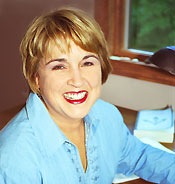
Five Poems
by Joanne Lehman -
0
read more
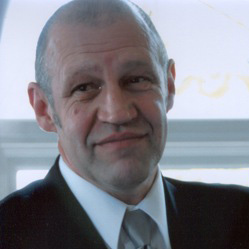
Five Poems
by John Weier -
0
read more

Four Poems
by Larry Nightingale -
1
read more

Letters Home: An Informal Report on “Mennonite/s Writing: Manitoba and Beyond”
by Ann HostetlerThe fifth Mennonite/s Writing conference took place from October 1-4, 2009 at the University of Winnipeg. It was co-chaired by historian Royden Loewen, Chair of Mennonite Studies at the University of Winnipeg, and literary scholar Hildi Froese Tiessen, Professor of English and Peace Studies at the University of Waterloo. The focus of the conference was Canadian writers from Manitoba, including those who had helped to create or participated in the literary community in Winnipeg during the 1970s and 1980s, nurtured by such writers and teachers as Robert Kroetsch and Dorothy Livesay, and the publishers of Turnstone Press. While the vast majority of the participants were Canadian—coming from Ontario and British Columbia as well as the Prairie Provinces of Alberta, Saskatchewan, and Manitoba—the conference also attracted international scholars Martin Kuester from Germany, James Urry from New Zealand and Ann Hostetler from the United States. The conference was designed as a series of plenary sessions and readings, so that it was possible for participants with stamina and time to hear every paper and listen to every literary reading. (See “Links to Events” on our home page for a link to the conference website.)
On Sunday after formal papers were concluded, participants were invited to participate in a day-long literary bus tour of the Eastern and Western Reserves, Mennonite settlements in Southern Manitoba, including the city of Steinbach and an abundant traditional Mennonite lunch at the Mennonite Heritage Village, made famous by Miriam Toews’s A Complicated Kindness. Writers who gave readings in the landscapes that inspired their works included David Bergen, Di Brandt, David Elias, Patrick Friesen, Sarah Klassen, Al Reimer, David Waltner-Toews and Rudy Wiebe.
Patrick Friesen wrote of the experience, “I had never actually gone to the junction of the Red and Rat Rivers where my own great-grandmother landed (near Niverville). I mean I knew of the place, had certainly been near it often, but had never previously bothered to go there. I was moved to stand where my four-year-old great grandmother Anna had once been. She was a powerful influence on me…died when I was ten, but I remember her well, can almost smell her sometimes…” In addition, Friesen commented, “the town of Niverville, and environs, came alive with David Bergen’s reading, and with his comments on the town. I’d been in the town numerous times but hadn’t seen it very clearly; it didn’t have any vibrations, as we used to say in the 60s, but it does now.” Although Friesen knows Manitoba well, he had never been to the border that David Elias wrote about in Sunday Afternoon. “Really interesting to think of his imagination developing there,” he said.
Armin Wiebe was unable to attend the conference, but a memorable passage from The Salvation of Yasch Siemens concerning a perilous pilgrimage up the Altona TV tower ladder for love was read aloud in Altona while we all gazed at the tower from the bus—a rare moment in which literature and life overlapped. Another memorable moment was the generous faspa put on by the family and friends of Di Brandt in the Reinland Community Center, where Di read a poem from questions i asked my mother. In response to my invitation to share her impressions of the conference, participant Natasha Wiebe wrote the following letter highlighting two memorable moments—both of them involving chocolate!
-
0
read more

Three Poems from The Illuminations
by Keith MillerTranslator’s Note:
At the time I first read The Illuminations, I was making ink drawings of Cairo. I’d lay down water and drop ink into it, letting the colors swim into each other, then go back in with a fine nib and clarify shapes. The Illuminations seemed to possess a similar texture: a marriage of a child’s dream imagery with more careful craft. They were written at the end of Rimbuad’s poetic career, when he was 19, after his sojourn in England, after he’d been shot by his lover Verlaine, and just prior to setting out on travels that would take him to Java, Cyprus, Egypt, Yemen, and Abyssinia. They distill and incorporate the new cities and languages and literatures he was encountering, and contain a strangeness and energy I have not found in any other work. They retain their freshness today: it is extraordinary to think that while Rimbaud was writing these - the world’s first prose poems and free verse - Tennyson and Swinburne were at the peak of their careers in England. They may perhaps be best compared to the work of the early Impressionist painters, and in particular Monet. I wanted to translate them to understand them more fully, and to make them my own. In translating them, I have kept in mind W. S. Merwin’s advice, which he received from Ezra Pound, to keep “the greatest possible fidelity to the original, including its sounds.”
-
23
read more

Book Review: Mennonite in a Little Black Dress
by Jessica BaldanziJessica Baldanzi reviews Janzen’s forthcoming memoir, which depicts with “wit and spirit” Janzen’s recovery from a traumatic divorce and her adult return, for an extended visit, to the close-knit, conformist Mennonite home and community in which she grew up.
-
1
read more

Four Poems
by Rhoda JanzenRhoda Janzen honors her own reading in Martyrs Mirror by transforming its plain style and narrative into a complex poetic art, linking early Anabaptist suffering with wide-ranging literary and historical allusions--like the martyr in “Last Words,” who “instead of plain words . . . speaks in bright jewels, rubies and emeralds and aquamarines.”
-
2
read more

An Insider’s Pearl Diver
by Julia Spicher KasdorfWhile Janzen offers us an ars moriendi, Julia Spicher Kasdorf finds an ars poetica for Mennonite writers in her analysis of Sidney King’s prize-winning film, The Pearl Diver. She finds that the film raises the question of the relationship between suffering and the artist-writer’s responsibility to individuals and the community in representing suffering for a public audience. It uses the Dirk Willems story from Martyrs Mirror to explore the central ambiguity of “whether sacrifice and separation can ultimately undo the Christian imperative to love and choose life.”
-
2
read more

Me and the Martyrs
by Kirsten BeachyKirsten Beachy is one Mennonite of a younger generation who has read Martyrs Mirror. She has not only read it but integrated its images, stories and lessons into her and her husband’s genealogies and her liberal arts education. She reflects the ambiguities and ironies that many Mennonites find in thinking about the book, and writes movingly and thoughtfully about its lasting impact on her.
-
3
read more

Amish Joking
by Ervin BeckThe Amish jokes presented here by Ervin Beck represent folklore that has been passed on by oral tradition, that is, from person to person in informal settings, usually in small groups, by word of mouth. Most of these jokes had not been written down until they were transcribed from tape recordings for this essay. Some of the jokes can be documented as having been in circulation for hundreds of years. Before they were applied to Amish people, some of the items have circulated in other groups (who tell them about non-Amish ethnic groups) or as general moron jokes . The meanings of the jokes can be best understood in the context of their actual oral telling in intimate groups; but here they are analyzed in terms of the larger Mennonite culture that tends to perpetuate—and enjoy—such stereotyping of a rival cultural group. The jokes illustrate folklorists’ claims that the predominant folk narrative forms circulating in contemporary American culture are short joking stories and legends, i.e., stories believed to be true.
-
2
read more

“Hurry Back!”
by Vi DutcherLetter-writing, and specifically the circle letter, as presented in the essay by Vi Dutcher, qualifies as folk expression, even though it is not an oral genre. But it is customary in that it is a written genre and custom that has been passed on over many years, and it is learned informally from the example of other members of the community—not from formal instruction in a classroom or office, as is the case with most formal composition today. Circle letters are practiced in North America mainly by women, of various social levels and ethnicities, but Vi analyzes the circle letter's culturally specific practice and meaning in an Old Order Amish community.
-
0
read more

Three Poems
by Shari Miller WagnerShari Miller Wagner’s poems illustrate how the sphere of folk culture interacts with academic culture, where poetry-writing, with its origins in academic classrooms, is highly valued. Shari’s forms are sophisticated, from an academic point of view, but her subject is Mennonite and Amish folk culture. Four-part unaccompanied hymn-singing, home cooking, family legends and recreation, rural chores: all are re-created--and perhaps preserved--by being given artistic shape for a new, more cosmopolitan audience. The folk poets among us—such as cowboy poets and street rappers—do the opposite when they include academic and popular/mass culture subject matter in their folk poetry forms. Shari’s many other poems on interesting places in Indiana and on quirky Hoosiers illustrate her longstanding personal interest in folk culture wherever it is found.
-
0
read more

Daddy’s Girl
by Shirley H. ShowalterShowalter's narrative of her early teenage encounter with her father amid tobacco culture among Lancaster County Mennonites is densely personal, cultural and literary.
-
4
read more

Grist for the Mill
by Ann HostetlerAnn Hostetler reviews a recently published book of poems by Helen Alderfer. We tend to assume that lyric poems reflect something of the author's life and feelings, but in this book the poems even become a kind of lifetime memoir in verse, scanning the author's life from childhood to advanced age.
-
0
read more

Menno Pause Revisited
by J. Daniel HessIn this memoir, derived from personal experience,Hess gives a personal—yet restrained and reportorial—account of a crisis at Goshen College that has become legendary among students.
-
1
read more

Silence, Memory and Imagination as Story
by Connie T. BraunIn her essay, "Silence, Memory and Imagination as Story: Canadian Mennonite Life Writing," Connie T. Braun articulates Paul Ricoeur's theory regarding memory and narrative and applies it to the historical Mennonite experience found in two masterworks of recent Mennonite fiction, Rudy Wiebe's Sweeter Than All the World and Sandra Birdsell's Russlaender (published in the U.S. as Katya).
-
1
read more
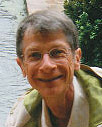
Three Poems
by Robert MartensRobert Martens transforms into lyric poetry his childhood experience of growing up in the Mennonite community in British Columbia's Fraser Valley. The three poems appearing here move through depictions of his childhood village, Sunday School pranks, and adult experience in the city.
-
1
read more

Five Poems
by Yorifumi YaguchiYaguchi has also contributed five of his peace-oriented poems for this issue. Published earlier in Japan, they appear here with permission of the author.
-
0
read more

The Movement for Non-Defended Localities in Sapporo, Japan
by Yorifumi YaguchiIn his essay, "The Movement for Non-Defended Localities," Yaguchi favors us with an account of the way he used two of his poems in a public, official meeting to try to persuade local authorities in his home district to make Sapporo a "non-defended" location. The incident is a fascinating illustration of how poetry can be used in the praxis of peace-seeking.
-
1
read more

Poems for Peace in China
by Wilbur BirkyIn May 2008 Birky was invited to visit China with Yaguchi on behalf of Mennonite Partners in China. Yaguchi was to read his poems and Birky was to comment on them, as well as make presentations on American literature and the English language. It was hoped that Yaguchi's presence and poems would be a gesture toward peace-making between China and Japan, in light of the hostile feelings that still exist in China toward Japan because of atrocities during World War II. Although their planned itinerary was much curtailed because of the earthquake in Sichuan province, some successful meetings were held, and Birky describes a number of encounters in his journal narrative, "Poems for Peace in China."
-
1
read more

Staring Down the Muzzle from Yamoto to Baghdad
by Wilbur BirkyBirky's essay, "Staring Down the Muzzle," relates Yaguchi's life and experience, during World War II and since, to his poems and his activism for peace in Japan. The original version of Birky's essay was presented at the "Mennonite/s Writing: Beyond Borders" conference on Mennonite literature at Bluffton University in 2006. That conference paper, in turn, was a follow up to Birky's earlier paper on Yaguchi at the "Mennonite/s Writing: An International Conference" at Goshen College in 2002, when the question of Mennonite poets writing on peace was first raised.
-
1
read more
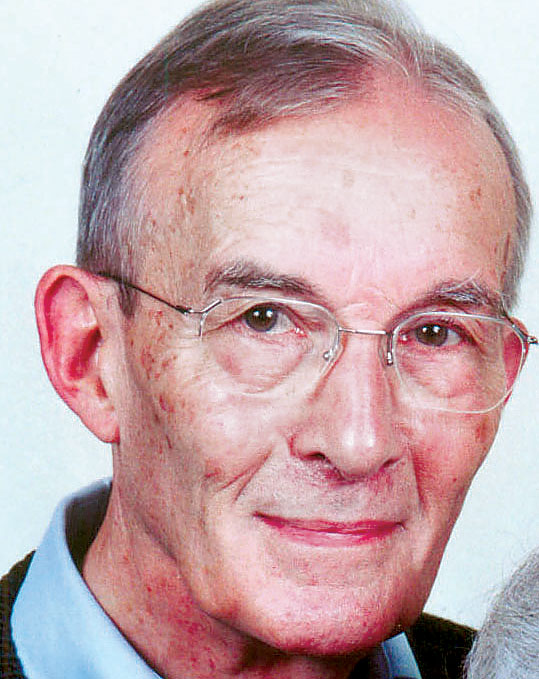
Wing-Beaten Air
by John J. FisherYaguchi's new memoir, The Wing-Beaten Air, is reviewed by John Fisher.
-
1
read more

The Mother Tongue in Cyberspace
by Magdalene RedekopIn her essay, "The Mother Tongue in Cyberspace," Magdalene Redekop presents a wide-ranging discussion of orality, mother tongue and ethnicity, especially in relation to literary writings by Mennonites. Her mother tongue, of course, is one variant of the Plautdietsch dialect spoken by-or at least familiar to—many descendants of Russian Mennonite immigrants to Canada and the United States. Although some entire literary texts have been written in that dialect, notably the Koop enn Bua stories of Arnold Dyck, Plautdietsch more often appears as words, phrases or sayings in writings in English. The effect is almost always humorous. To her essay she adds a special treat: her own reading of a selection from the Koop enn Bua stories.
-
0
read more

Four Radio Poems
by Carl HaarerCarl Haarer, using the professional name of Carl Stevens, may be the best known poet in New England. As a reporter for radio station WBZ Boston, which has the widest range in the New England states, Carl from time to time reads on the air his poems based on current news. The selection below includes poems about the Obama inauguration; the disgraced governor of New York, Eliot Spitzer; the too-long primary election campaign of Hillary Clinton; and the baseball rivalry of the Boston Red Sox and the New York Yankees—all published in 2008 and 2009. Although Haarer's poems may be less "literary" than those read daily on the radio by Garrison Keillor, they are perfectly composed for his mass, news-informed audience. The poems may remind us of other currently popular poetic genres, such as rap and cowboy poetry.
-
5
read more
The East Window
by Bob JohnsonThe short story, "The East Window," by Bob Johnson depicts a dysfunctional Mennonite-Amish family and raises some intriguing theological possibilities. Is the story more "about" Rodney's experience in the barn? Or about his uncle who observes the disaster? Some of the cultural context is implied by the spellings of rural northern Indiana dialect speech, as recalled from his childhood. Does the use of dialect in otherwise mainstream literature imply condescension—either humor or class bias—by the narrator or author?